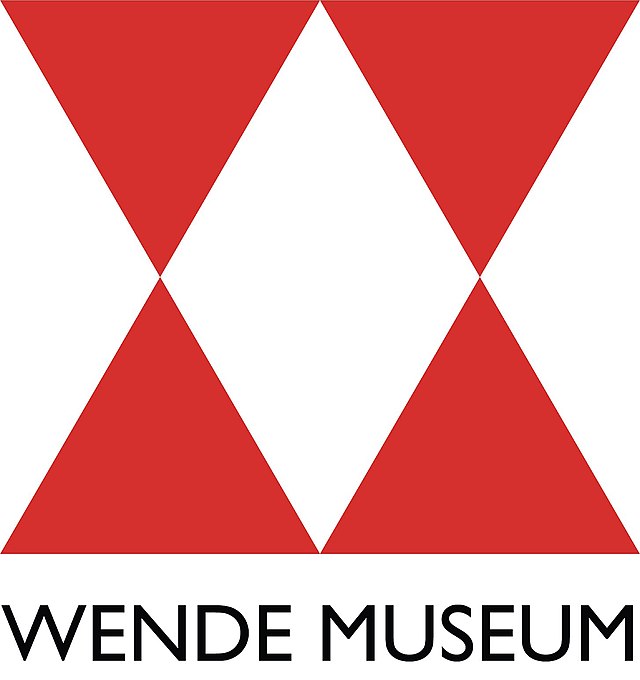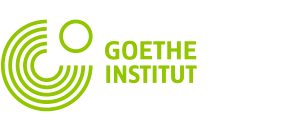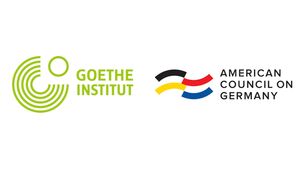Veranstaltungsarchiv Thomas Mann House
2024
Oper und Demokratie: Konzert & Podiumsdiskussion mit Daniela Smolov Levy, Kira Thurman, Alex Ross, Jan Vogler & Kai Hinrich Müller
Los Angeles
Das Thomas Mann House und Musikwissenschaftler Kai Hinrich Müller (2023 Fellow) laden zu einer transatlantischen Gesprächs- und Konzertreihe ein, die sich jener Kunstform widmet, die auch für Thomas Mann eine große Leidenschaft war: die Oper. Im Zentrum steht ihr demokratisches Potenzial, das in verschiedenen Veranstaltungen in den USA und Deutschland erkundet wird. Wie kann Oper zu einer vielfältigen und inklusiven demokratischen Gemeinschaft beitragen? Diese Veranstaltung im Thomas Mann House ist der erste Event der Reihe Oper und Demokratie. In Kollaboration mit dem Kaleidoscope Chamber Orchestra, Jan Vogler & friends.
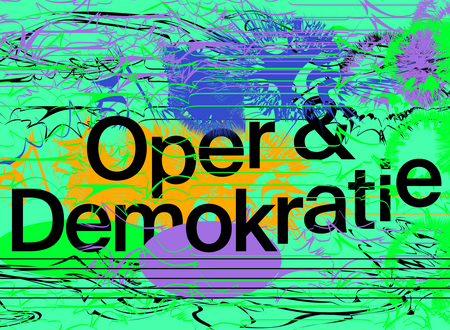
Ausgangspunkt der Veranstaltungsreihe ist die Erinnerung an die Wiedereröffnung der legendären Berliner Krolloper nach dem Ersten Weltkrieg im Jahr 1924, die eines der führenden Opernhäuser der Zwischenkriegszeit war und heute ein Symbol für die Erneuerung der Oper im 20. Jahrhundert sowie für den Kampf um demokratische Werte in Zeiten der Krise ist. Podiumsdiskussionen mit internationalen Wissenschaftler:innen und Künstler:innen widmen sich der Geschichte dieser prestigeträchtigen Institution und fragen nach den mannigfaltigen Beziehungen von Oper und Demokratie in der heutigen Zeit. Im Zentrum stehen das demokratische Potenzial der Oper und ihre möglichen Beiträge zu einem vielfältigen und inklusiven Miteinander. Diskutiert werden u. a. Aspekte der Demokratisierung von Oper, Fragen von Macht und Repräsentation, neue Formate, Besetzungs- und Programmpolitik, Erwartungen des Publikums sowie wissenschaftliche Herausforderungen und die Möglichkeiten der Institution, gerade auch verfolgten und unterrepräsentierten Künstler:innen eine Stimme zu geben. Begleitende Konzerte stellen Auszüge aus selten aufgeführten Bühnenwerken vor, teils von verfolgten Künstler:innen, teils aus Archiven als Weltpremieren.
Am 20. Januar 2024 wird die Reihe mit einer Veranstaltung im Thomas Mann House eröffnet: Zwei Konzerte, eine Keynote-Lecture und eine Podiumsdiskussion werden sich mit dem demokratischen Potenzial der Oper befassen. Werke von Kurt Weill, Lily Reiff, Richard Wagner und Edmond Dédé werden vom Kaleidoscope Chamber Orchestra und dem renommierten Cellisten Jan Vogler aufgeführt. An der Podiumsdiskussion nehmen mit Alex Ross, Kira Thurman und Daniela Solomon Levy drei renommierte Intellektuelle des internationalen Operndiskurses teil. Abgerundet wird das Programm durch eine Rede über eine Operngeschichte der Vielfalt von Michael Steinberg, einem Experten für US-amerikanische Musikwissenschaft.
Programm
Part I
Begrüßungsansprache & Einleitung
Einleitung von Joy H. Calico
Der Jasager, Klavier Oper bei Kurt Weill vorgetragen von Kaleidoscope Chamber Orchestra
Kurt Weills Schuloper Der Jasager wurde 1930 an der Krolloper in Berlin uraufgeführt: Der Komponist Kurt Weill und der Dichter Bertolt Brecht setzten sich mit dem Verhältnis zwischen Individuum und Gesellschaft (und umgekehrt) und der Idee einer „Übereinkunft“ auseinander, die sie in den Mittelpunkt der Handlung stellen. Am Ende beschließt der Protagonist, ein Junge, „ja“ zu sagen und sich für die Gemeinschaft zu opfern. Die Musik wird in einem Konzert mit dem Kaleidoscope Chamber Orchestra präsentiert.
Part II
Ja sagen? Oper und Demokratie im 21. Jahrhundert, Podiumsdiskussion mit Alex Ross, Kira Thurman, Daniela Smolov Levy, moderiert von Kai Hinrich Müller
In Anlehnung an Kurt Weills Der Jasager wird die Podiumsdiskussion die politischen Stimmen von Opernmachern im öffentlichen Diskurs sowie das „ja“ zur Institution Oper selbst untersuchen. Kai Hinrich Müller, Alex Ross, Kira Thurman und Daniela Smolov Levy diskutieren über die Demokratisierung des Musiktheaters, Zugänglichkeit, Vielfalt und gesellschaftliches Engagement sowie die Verantwortung der Oper im Sinne eines politischen Auftrags der Künste. Wie können Opernhäuser und Künstler:innen zur Stärkung demokratischer Werte beitragen, und wie kann die Institution Oper selbst in ihren Programmen, Erzählungen, Strukturen und Entscheidungsprozessen demokratischer werden?
Part III
Die Operngeschichte der Vielfalt, Keynote von Michael Steinberg
Salonkonzert mit Werken von Richard Wagner, Lily Reiff, Edmond Dédé gespielt von Jan Vogler & Freunden
Michael Steinberg leitet das Salonkonzert mit einer Auseinandersetzung mit einem der wichtigsten Aspekte der Beziehung zwischen Oper und Demokratie ein: der Vielfalt, die sich auch in der Institution Oper auf verschiedenen Ebenen widerspiegeln muss. Das Konzert mit Jan Vogler, einem der weltweit führenden Cellisten und Intendanten der Dresdner Musikfestspiele, präsentiert Musik von Richard Wagner, Lily Reiff und Edmond Dédé. Während ersterer der wohl bekannteste Komponist politischer Opern ist, sind die beiden anderen heute weitgehend vergessen. Lilly Reiff führte in Zürich einen bedeutenden Salon - Thomas Mann war einer ihrer Gäste und widmete ihr einen Abschnitt in seinem Doktor Faustus -, komponierte aber auch. Auszüge aus ihrer Oper Puck's Love Song werden zum ersten Mal in den Vereinigten Staaten aufgeführt. Auch der afroamerikanische Komponist Edmond Dédé hat trotz schwerer Rassendiskriminierung eine beeindruckende, fast unmögliche musikalische Karriere gemacht. Er wurde 1823 in New Orleans geboren und zog nach Frankreich, wo er als Dirigent und Komponist große Erfolge feierte. Dieses Konzert bietet eine Auswahl seiner Werke.
Teilnehmer:innen:
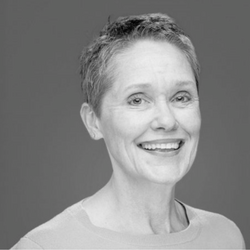
Joy H. Calico ist seit 2023 Professorin für Musikwissenschaft an der Herb Alpert School of Music und Lehrbeauftragte für Jüdische Studien an der UCLA. Sie hat Monographien über zwei Persönlichkeiten der deutsch-österreichischen Diaspora in Los Angeles veröffentlicht: Bertolt Brecht at the Opera (2008) und Arnold Schoenberg's A Survivor from Warsaw in Postwar Europe (2014), beide bei University of California Press. Ihre wissenschaftliche Arbeit wurde durch Stipendien und Zuschüsse der American Academy in Berlin, des DAAD, der ACLS und der NEH unterstützt, unter anderem. Sie ist Mitglied der internationalen Arbeitsgruppe des Black Opera Research Network (BORN).
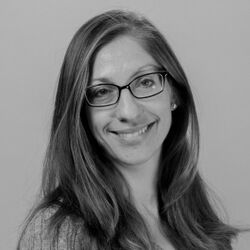
Daniela Smolov Levy untersucht die Demokratisierung der Oper in der amerikanischen Gesellschaft, einschließlich der Präsenz der Oper im jiddischen Theater des frühen zwanzigsten Jahrhunderts und der Beteiligung jiddischsprachiger Menschen an der breiteren amerikanischen Opernszene. Daniela hat einen Doktortitel in Musikwissenschaft von der Stanford University, einen Master-Abschluss in Klavierspiel von der New York University und einen Bachelor-Abschluss in vergleichender Literatur und Musik von der Princeton University. Sie hat ihre Arbeit sowohl auf nationalen als auch auf lokalen Tagungen der American Musicological Society vorgestellt und hat auf Einladung Vorträge in Los Angeles (UCLA und California Institute for Yiddish Culture and Language) und New York (Jewish Music Forum) gehalten. Ihr Artikel "Parsifal auf Jiddisch? Why Not?" wurde 2014 in der Zeitschrift Musical Quarterly veröffentlicht. Sie hat am Pomona College und an der University of Southern California unterrichtet.
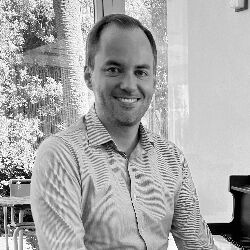
Thomas Mann Fellow Kai Hinrich Müller studierte an der Rheinischen Friedrich-Wilhelms-Universität Bonn Musikwissenschaft, BWL und Rechtswissenschaft und wurde 2013 mit einer Arbeit zur Geschichte der Alte-Musik-Bewegung promoviert. 2022 folgte seine Habilitation. Er beschäftigt sich in seiner Forschung mit Richard Wagner und seiner Rezeption im Bayreuther Kreis sowie der völkischen Bewegung, mit Formen von Antisemitismus in der Musikgeschichte, dem Musikleben der Zwischenkriegs- und insbesondere NS-Zeit sowie der transatlantischen Operngeschichte mit besonderem Blick auf das amerikanische Exil. Er lehrt an der Hochschule für Musik und Tanz Köln, leitet Projekte im In- und Ausland und ist wissenschaftlich-künstlerischer Leiter der Terezín Music Academy im ehemaligen Ghetto Theresienstadt und des Bauhaus Music Weekend.
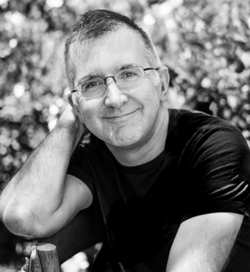
Alex Ross ist seit 1996 Musikkritiker bei The New Yorker. Sein erstes Buch, The Rest Is Noise: Listening to the Twentieth Century, wurde mit dem National Book Critics Circle Award ausgezeichnet und war Finalist für den Pulitzer-Preis. Sein zweites Buch, Listen to This, ist eine Sammlung von Essays. Sein neuestes Buch ist Wagnerism: Art and Politics in the Shadow of Music, eine Abhandlung über Wagners enormen kulturellen Einfluss. Für The New Yorker hat er häufig über Thomas Mann und die Emigrantengemeinde in L.A. geschrieben.
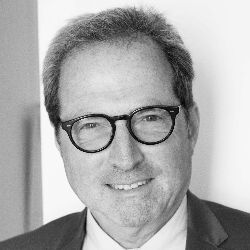
Michael P. Steinberg ist Barnaby Conrad und Mary Critchfield Keeney Professor für Geschichte sowie Professor für Musik und Germanistik an der Brown University in Providence, Rhode Island, USA. Von 2016 bis 2018 war er Präsident der American Academy in Berlin. An der Brown University war er Gründungsdirektor des Cogut Center for the Humanities (2005-2015), Vice Provost for the Arts (2015-16) und Mitglied des Academic Priorities Committee (2019-20). Er ist Empfänger von Stipendien der John Simon Guggenheim Foundation, des American Council of Learned Societies und des National Endowment for the Humanities. Zu Steinbergs Büchern gehören The Afterlife of Moses: Exile, Democracy, Renewal (Stanford, 2022), The Trouble with Wagner (Chicago, 2018) sowie der Sammelband Makers of Jewish Modernity (Princeton, 2016; Gewinner des National Jewish Book Award für Sachliteratur).
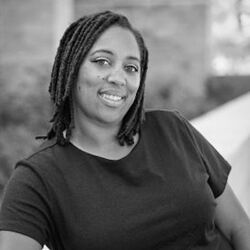
Kira Thurman ist eine preisgekrönte Historikerin und Musikwissenschaftlerin. Die klassisch ausgebildete Pianistin, die in Wien aufgewachsen ist, promovierte an der University of Rochester in Geschichte mit einem Nebenfach Musikwissenschaft an der Eastman School of Music. Ihr Buch, Singing Like Germans: Black Musicians in the Land of Bach, Beethoven and Brahms (Cornell University Press, 2021), zeichnet die Geschichte schwarzer klassischer Musiker im deutschsprachigen Raum während des 19. und 20. Thurman hat für Magazine wie die New York Times, The New Yorker und Frieze Magazine geschrieben und ist in Dokumentarfilmen und öffentlichen Radioprogrammen von PBS in Deutschland und den Vereinigten Staaten aufgetreten.
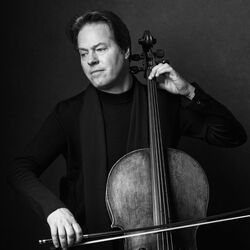
Jan Vogler is a renowned German-born classical cellist. Vogler’s distinguished career has brought him together with renowned conductors and internationally acclaimed orchestras around the world, such as New York Philharmonic, Leipzig Gewandhaus Orchestra, Deutsches Symphonie-Orchester Berlin and London Philharmonic Orchestra. His great ability allowed him to explore the sound boundaries of the cello and to establish an intensive dialogue with contemporary composers and artists. This includes regular world premieres, including works by Tigran Mansurian (with WDR Symphony Orchestra conducted by Semyon Bychkov), John Harbison (with Mira Wang and the Boston Symphony Orchestra), and many more.
Informationen zum Event:
Nur auf Einladung
Ort:
Thomas Mann House
Student Council zu "Democracy and Vulunerability" – mit Sophie-Charlotte Opitz
Online
Online Interview | 16:00 Uhr (PT)
Das Wende Museum, dublab radio, und das Thomas Mann House laden sie ein zur ersten Folge unserer monatlichen Interviewreihe zum Thema "Democracy & Vulnerability!" Wie sollte eine Demokratie mit ihren eigenen Schwachstellen umgehen? Wie müssen sich Demokratien entwickeln, um erfolgreich mit den weltweit zunehmenden ökologischen Krisen, geopolitischen Spannungen, wirtschaftlichen Ungleichheiten und Kulturkriegen umzugehen? Wie viel Verwundbarkeit kann eine Demokratie ertragen?

*Diese Veranstaltung findet in englischer Sprache statt*
The Student Council consists of a team of highly engaged, talented, and diverse high school, undergraduate, and graduate students who invite prominent guest speakers to discuss topics relating to art, culture, politics, and society. In conversation with academics, journalists, politicians, and artists, the students will explore the various threats to democratic institutions and principles worldwide, as well as strategies to potentially overcome these threats. The series focuses on the new annual topic of the Thomas Mann House, “Democracy & Vulnerability:" Democratic processes are dynamic, inclusive, and human-centered but at times also messy, arbitrary, and even contrary to democracy itself. How should a democracy deal with its own vulnerabilities? What are the responsibilities of a democracy toward the most vulnerable in its populace? How do democracies need to evolve to deal successfully with increasing global levels of ecological, geo-political, and economic precarity? How much vulnerability can a democracy endure?
The first guest for the 2024 council will be Thomas Mann Fellow, Media Studies Scholar & Curator Sophie-Charlotte Opitz, whose work focuses on the relationship of protest movements, image strategies and artificial intelligence.
January Speaker
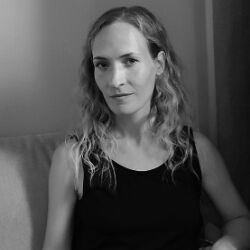
Sophie-Charlotte Opitz is a media and memory studies scholar and curator. She studied philosophy and art education at Goethe University Frankfurt and subsequently completed her doctorate. In 2019 she began her curatorial practice as a fellow at the Akademie Schloss Solitude in Stuttgart and afterwards worked internationally as a curator and director in museums in Germany, Switzerland, and England. In addition to her monograph „Bilderregungen. Die Produktionsmechanismen zeitgenössischer Kriegsfotografie“, she regularly publishes in academic journals, exhibition catalogues, and photography books, especially on aspects of collective memory cultures and global image politics. She is a 2023 Thomas Mann Fellow. In her project, she is researching new forms of protest which strengthen political visibility during critical times.
Meet the 2024 Student Council
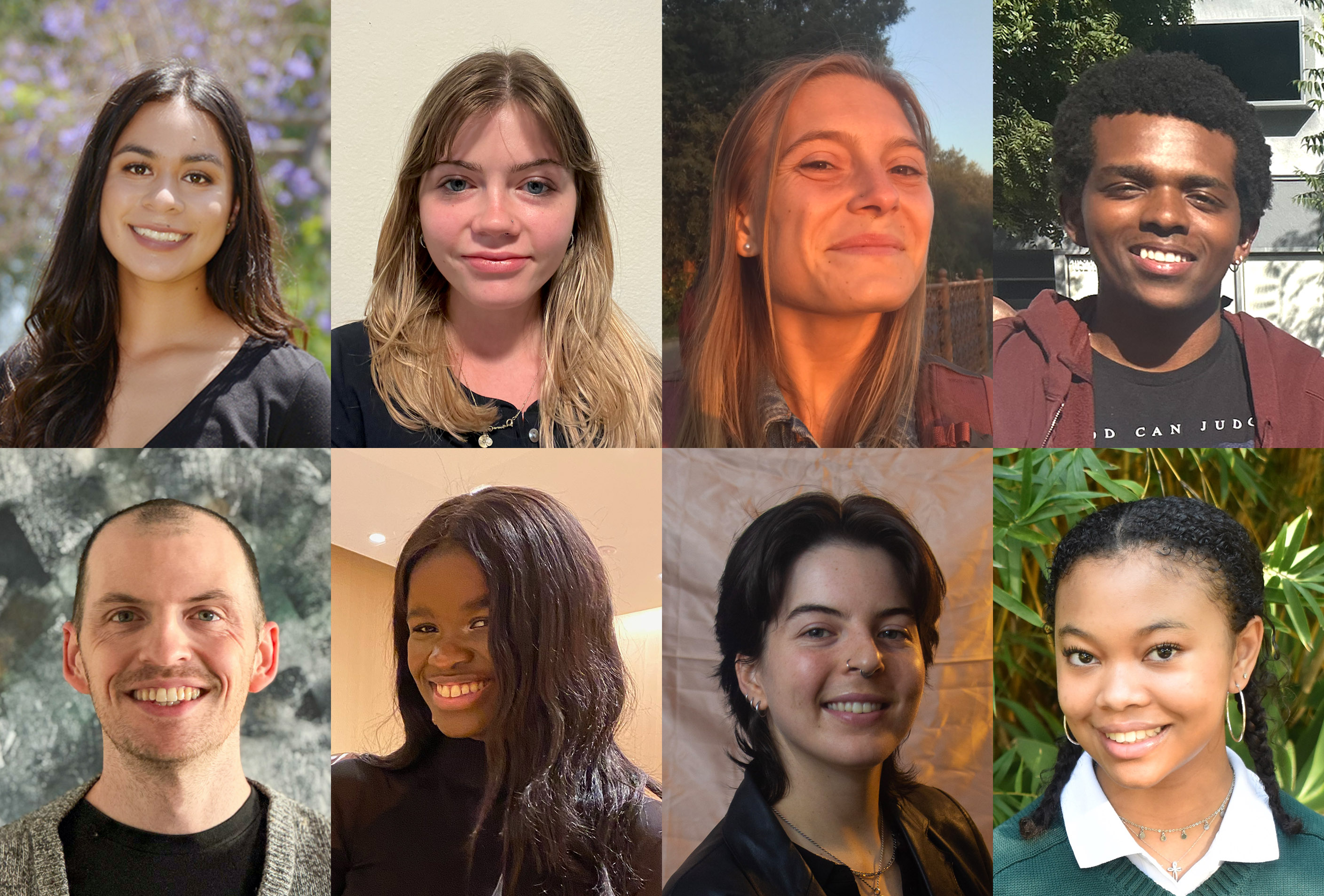
Sara Abrahamsson is a fourth-year student at UCLA studying Art History and French. As a culmination of her artistic and academic interest in political graphics, Sara is currently writing her senior thesis paper on the internationalist poster art of post-revolutionary Cuba. Upon graduating, she plans to continue working in museums before pursuing graduate studies in Art History or Art Conservation.
Amy Cabrales is a First-Generation fourth-year undergraduate student at UCLA, studying Sociology and the Russian Language. She is a Mexican-American, Los Angeles native born in Lynwood, California. Her career interests include cross-cultural education via museum work or language instruction and immigrant resettlement, while her academic interests include immigrant integration and self-identity across immigrant generations. She is anticipating returning to Almaty, Kazakhstan for the 2024-25 academic year to inform these interests and advance her Russian proficiency.
Elsa Coony is a fourth-year student at the University of California, Los Angeles double majoring in Global Studies and German. She has previously worked at the United States Holocaust Memorial Museum as both a docent and translator and is excited to join this year's council. In the future, she hopes to pursue a career in international development.
Biruke Dix is currently a 2nd year student at UCLA studying Applied Mathematics. He joined the Wende Student Council in 2024 and is deeply invested in the ever-changing properties of art as well as social habits. He hopes that he can create language and conversation that promotes the spread of cultural shifts and social justice.
Matthew Jones is a third-year PhD student in Claremont Graduate University’s Cultural Studies and Museum Studies program. His research currently explores how sites connected to authoritarian regimes function as pilgrimage destinations and what strategies states and institutions employ to reduce extremist attachment at these sites. He is thrilled to continue his training with the Wende Museum through this collaboration with the Thomas Mann House.
Emma Larson is a master's student at Columbia University's Harriman Institute of Russian, Eurasian, and Eastern European Studies. There, she focuses on the gender, social, and political history of Central Asia. Before starting at Columbia, Emma taught English in Kazakhstan with the Fulbright Program. She graduated from Williams College with degrees in History and Russian in 2021.
Zora Nelson is a current undergraduate student at New York University, where she is studying Harp Performance and Media, Culture, and Communication. As an east coaster born and raised in Philadelphia, Pennsylvania, she discovered the Wende Museum in the summer of 2022 and is honored to be a part of the council. With a passion for writing, Zora sees a future in storytelling to promote social justice.
Lexi Tooley is a current sophomore at the University of Pennsylvania majoring in Political Science and Art History, minoring in Chinese Language and Culture. She is originally from Los Angeles, California, and attended the Archer School for Girls. Lexi has been working with the Wende Museum for the past 2 years. She looks forward to continuing the search for truth and examining the vulnerability of democracy through this program!
Coalition in Distress? The Rise of the Far Right in Germany and its Potential Consequences for the State Elections in 2024 – Vortrag & Gespräch mit Andrea Römmele & Bruce Bimber
Los Angeles
2024 Thomas Mann Fellow & Politikwissenschaftlerin Andrea Römmele & Professor für Politikwissenschaft Bruce Bimber (UC Santa Barbara) geben Einblicke in die bevorstehenden deutschen Landtagswahlen 2024 aus transatlantischer Perspektive.
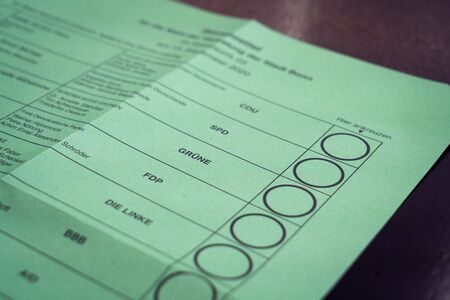
*Diese Veranstaltung findet auf englischer Sprache statt*
Fall 2023 marks the midterm of the German "traffic light“ coalition, named after the parties' traditional colors: the Social Democratic Party of Germany (SPD), the Free Democratic Party (FDP) and Alliance 90/The Greens. After presenting a progressive reform agenda in December of 2021, the Russian attack on the Ukraine has challenged the German government, among others, resulting in a so-called Zeitenwende, a historic turning point, that is supposed to unify the country. However, transformation is not progressing. Internal struggles characterize the administration of chancellor Olaf Scholz. The support of the far right-party (AfD) is rising to record highs. The state elections in the fall of 2024 in the federal states of the former East will serve as a critical bench mark for future developments in Germay’s political landscape.
In her presentation, Andrea Römmele will evaluate the government’s performance and discuss potential future scenarios for Germany and beyond. Afterwards, Andrea Römmele will engage in a conversation about the topic with Bruce Bimber, Distinguished Professor of Political Science at UC Santa Barbara, who will be comparing populist trends in campaigns in the U.S and Germany from a transatlantic perspective.
During her time at the Thomas Mann House, Andrea Römmele explores the impact that major societal megatrends – such as technology and AI, urbanization, demographic and social change, climate change and resource scarcity, or global growth markets – have on democracies. How do different systemic and societal structures in Germany and the U.S. affect these developments?
The event will take place at the Thomas Mann House (1550 N San Remo Drive, Pacific Palisades) on Thursday, January 25 at 7 pm.
Attendance information
Attendance to this event is by invitation only.
Teilnhemerin

Andrea Römmele is Professor of Political Communication and Dean and Vice President at the Hertie School in Berlin. She holds a master’s degree from San Francisco State University, a doctorate from the University of Heidelberg, and a habilitation from Freie Universität Berlin. Römmele’s research interests include digital democracy, elections, and electoral campaigns and parties. For Römmele, a central issue is mediating between science and practice. One of her current projects is the “Democracy Report,” developed jointly with ARD, which she moderates herself.

Bruce Bimber is Professor of Political Science. He works closely with the Center for Information Technology and Society, which he founded in 1999. He is also affiliated with the Department of Communication. He studies political communication, with a focus on the relationship between digital media and patterns in human behavior, especially in the domains of political organization and collective action. Professor Bimber s a Fellow of the American Association for the Advancement of Science, a Fellow of the International Communication Association, and a past Fellow of the Center for Advanced Study in the Behavioral Sciences.
"Trust in Museums" – Präsentation & Workshop mit Sunhild Kleingärtner & Gästen
Los Angeles
In 2022 lud das Thomas Mann House Fellows aus verschiedenen Disziplinen ein, darüber zu diskutieren, wie öffentliches Vertrauen wiederhergestellt werden kann. Das Projekt Trust in Museums der Historikerin, Archäologin und 2022 Thomas Mann Fellow Sunhild Kleingärtner beschäftigte sich mit der Rolle des öffentlichen Vertrauens in Museen: Wie kann Vertrauen in Museen aufgebaut werden und wie geht es verloren? Was macht Museen in Zeiten polarisierter Gesellschaften in westlichen Demokratien glaubwürdig? Wer hat Vertrauen in Museen und mit welchen Erwartungen? Gemeinsam mit Expert:innen und Studierenden aus den USA wird Kleingärtner die Ergebnisse ihrer transatlantischen Studie diskutieren.
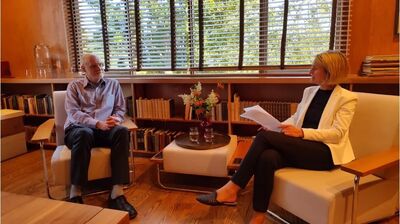
*Diese Veranstaltung findet auf englischer Sprache statt*
Museums as public institutions play an important role in the presenting, conserving, and shaping of cultural narratives. In today’s politically charged times, it is not easy for museums to navigate the political discourses that are quickly and constantly changing. At the same time, due to a focus on transparent provenance, research and educational programs, museums still enjoy a great deal of public trust today according to a recent study by the American Alliance of Museums. During her Fellowship, Sunhild Kleingärtner, an archaeologist with museum-based expertise, conducted interviews with experts in the USA and Germany, exploring political issues pertinent to the question of museums as trusted institutions. Is it even possible to think of museums as inherently nonpolitical? What are key factors that foster trust in museums?
On February 1, Kleingärtner will visit Los Angeles again to present and discuss the results of her project, followed by a conversation with colleagues and students at the Thomas Mann House.
By Invitation Only.
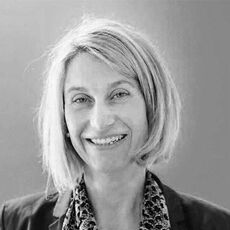
Sunhild Kleingärtner is a German historian and archaeologist. From 2013 to 2021 she was Director of the German Maritime Museum Bremerhaven and Professor of Maritime History and Maritime Archaeology at the University of Bremen. In 2022, she was a Fellow at the Thomas Mann House in Los Angeles, working on trust in museums and how museums can actively contribute to a resilient society. Since 2022 she is the Director of the Deutsches Bergbau-Museum Bochum and holds a professorship in archaeology with a focus on museum-related transfer.
Eine Veranstaltung des Thomas Mann House, Los Angeles.

The Power of Protest: Nalleli Cobo & Friedemann Karig im Gespräch
Los Angeles
Start: 19 Uhr (PT) | Teilnahme nur auf Einladung
Zwei Vorträge und ein Gespräch mit dem Thomas Fellow & Autor Friedemann Karig und der populären Umweltaktivistin Nalleli Cobo: Während seines Fellowships im Thomas Mann House untersucht der Journalist, Autor und Moderator Friedemann Karig unterschiedliche Protestkulturen in den USA und Deutschland: Machen sie die Demokratien von heute angreifbar - oder widerstandsfähiger?
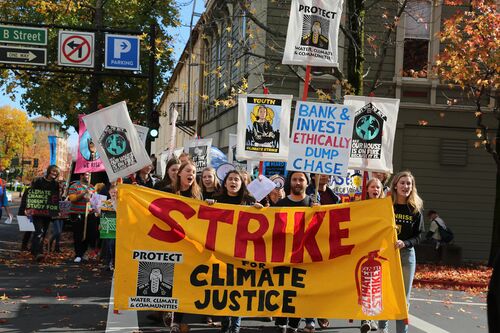
*Diese Veranstaltung findet in englischer Sprache statt*
With the rise of rightwing populism in Western democracies, the question of efficient and sustainable forms of protest is more relevant than ever. What kind of instruments, methods and structures are useful for which specific struggle? In an attempt to bring protest theory and practice in conversation and to bring about to new ideas and synergies, our fellow Friedemann Karig and environmental activist Nalleli Cobo will talk about protest cultures not as a sudden emotional outburst, but as a cool-headed political strategy. What are differences between the U.S. and Germany when it comes to protest movements and how they influence political discourse via civil disobedience? What are the important protest groups in the years to come? What can we learn from successful protests in Germany and the U.S. over the past years and what makes a protest actually successful?
After two short presentations from a German and an U.S. perspective, Friedemann will engage in a conversation with Nalleli Cobo, followed by a Q&A with the audience.
During his fellowship, Friedemann Karig will examine protest cultures in the United States. Through the lens of Henry David Thoreau’s term “civil disobedience,” he will explore movements such as the Civil Rights Movement, Black Lives Matter, and others.
The event will take place at the Thomas Mann House on February 15.
Attendance information
By invitation only.
Participants
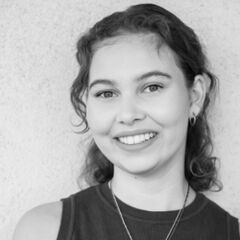
Nalleli Cobo led a grassroots campaign to permanently shut down a toxic oil well in her community. Cobo, 22, grew up in South Los Angeles and started engaging in activism at age 9. Over the years, she endured headaches, nosebleeds and heart palpitations caused by pollution from the well in her community. She gave her first public speech at age 10. Even as a child, her skills as an orator caught others’ attention and paved the way for her to eventually become the leading spokesperson for banning oil extraction in Los Angeles. She co-founded People Not Pozos, an organization that aims to secure a safe and healthy neighborhood, and the South Central Youth Leadership Coalition, which focuses on ending environmental racism in Los Angeles. In March 2020, her organizing culminated in the definitive closure of the AllenCo drilling site across the street from her childhood home. She was diagnosed with cancer at the age of 19. After three surgeries and medical treatment, she was declared cancer-free. Her story and leadership also inspired the enactment of SB 1137, which bans all new oil wells within 3200 feet of communities in California. She won the 2022 Goldman Environmental Prize and was named on the 2022 Time 100 Next list.

Friedemann Karig is a journalist, author, and moderator from Berlin. He studied media science, politics, and economics and has written for Süddeutsche Zeitung, Die Zeit, Spiegel Online, and Deutschlandfunk, among others. His nonfiction book Wie wir lieben (How We Love) was published by Blumenbar in 2017, followed by his debut novel Dschungel (Ullstein, 2019) and the nonfiction bestseller Erzählende Affen: Mythen, Lügen, Utopien – Wie Geschichten unser Leben bestimmen (Narrating Apes: Myths Lies and Utopias - How Stories Determine Our Lifes) (Ullstein, 2021). His novel Die Lügnerin (The Lyer) was be published in September 2023 by Ullstein. During his fellowship, Friedemann Karig will examine protest cultures in the United States. Taking as his starting point Henry David Thoreau’s term "civil disobedience," he will look at the Civil Rights Movement and Black Lives Matter, among other movements.
Eine Veranstaltung des Thomas Mann House, Los Angeles.

East-German Artistic Networks of the 1980s: Vortrag & Gespräch mit Stephanie Barron, Constanze Fritzsch und Isotta Poggi
Thomas Mann House
Start: 19:00 Uhr (PT) | Teilnahme nur auf Einladung
Das Getty Research Institute (GRI) und die Villa Aurora & Thomas Mann House veranstalten gemeinsam einem Abend, der exklusive Einblicke in die umfangreiche Sammlung ostdeutscher Künstler:innenbücher aus den 1980er Jahren des Getty bietet. Nach einer Präsentation von Highlights aus der Sammlung werden die Kuratorinnen Stephanie Barron (LACMA) und Isotta Poggi (GRI) mit Kunsthistorikerin Constanze Fritzsch (Fulbright Fellow am GRI) ein Gespräch über die Sammlung und ihre Bedeutung für den zeitgenössischen transatlantischen Diskurs und die vergessene Geschichte Ostdeutschlands führen.

*Diese Veranstaltung findet in englischer Sprache statt*
In the last decade of the East German regime, artists wove dynamic networks to exchange art and ideas. They built alternative communication channels through artists’ books and magazines that together are a remarkable memory of the spirit of the time. Most of these publications (called samizdat for “self-published” in Russian) are collaborative projects of artists’ groups or collectives who produced small editions to circumvent censorship, while also to celebrate mutual friendship and solidarity in a playful atmosphere of experimentation.
On the fifth anniversary of Edition Augenweide, Jörg Kowalski wrote that it was not so much political ambitions that inspired the making of the first book, but rather the longing for that atmosphere of openness and trust that is necessary for art to flourish. This group’s aim was to draw on book art traditions of the twenties while finding an innovative synthesis between literary content and art design. These artistic and literary projects provided a forum outside of the official discourse of the GDR and developed a new literary and visual language that would defy artistic dogmas.
These rare editions, combining a variety of original graphic media on paper and vintage photographs with poetry and prose, offer an opportunity for interdisciplinary dialogue on a period of transformation and reform that ended with a peaceful revolution and the fall of the Berlin wall in November 1989.
As part of the Thomas Mann House annual topic "Democracy & Vulnerability," it is crucial to revisit and reconsider these artists. The independent artistic and cultural networks resonate with the debates of writers and artists in the Thomas Mann House who sought creative spaces while in exile and means of creating art outside of censorship. Los Angeles hosted the innovative exhibition “Art of Two Germanys ” organized by LACMA in 2009 and is home to the Wende Museum, which focuses on Cold War history. These resources provide an opportunity for dialogue on the past and the present about the artistic and existential debates that contributed to and shaped a period of historical reform and transformation. They can shed new light on East Germany’s forgotten (or ignored) history.
Join acclaimed curators and art historians Stephanie Barron, Constanze Fritzsch, and Isotta Poggi for a conversation on how these materials are vibrant witnesses of a generation who made art to find a voice.
Teilnahme
Teilnahme an dieser Veranstaltung ist nur auf Einladung möglich.
Teilnehmerinnen
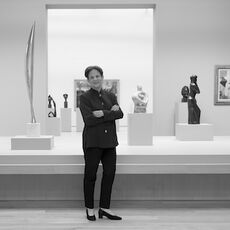
Stephanie Barron is Senior Curator and Modern Art Department Head at LACMA. Among her exhibitions and publications over the past 40 years are The Russian Avant- Garde: 1910-1930: New Perspectives; German Expressionist Sculpture; ’Degenerate Art’: The Fate of the Avant-Garde in Nazi Germany; Exiles + Émigrés- The Flight of European Artists from Hitler; Art of Two Germanys/Cold War Cultures, New Objectivity: Modern German Art in the Weimar Republic, 1919-1933, and exhibitions of Alexander Calder, Marc Chagall, Frank Gehry, David Hockney, Ed Kienholz, Sharon Lockhart, John McLaughlin, Rene Magritte, and Ken Price. She has received the Order of Merit, First Class and the Commander’s Cross from the German government in recognition of her work in the field of modern German art. Her exhibitions and publications have five times been voted the best in the United States by the International Art Critics Association, three times by the Art Museum Curators Association, and she has twice received the College Art Association’s Alfred H. Barr Jr. Award for best museum catalog. A long standing member of the Art Advisory Panel of the IRS, she is a fellow of the Academy of Arts and Sciences, and trustee of the John Baldessari Foundation, past chair of the Mike Kelley Foundation, and serves on the board of The Industry Los Angeles.
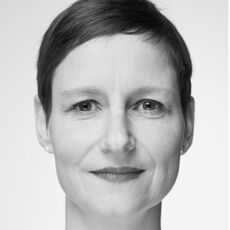
Constanze Fritzsch is a Fulbright Fellow at the GRI. She holds a doctorate from the Catholic University in Eichstätt-Ingolstadt after getting her MA in art history from the University Paris Nanterre and her BA in art history from University Paris 1 Panthéon-Sorbonne. She got a fellowship of the ENS de Paris as a foreign exchange student. She is a former member of the “Á chacun son reel” research project run by the German Forum for Art History in Paris and worked as an assistant curator at the Staatliche Kunstsammlungen Dresden. She has been on the academic staff at the Bauhaus University in Weimar, the Academy of Fine Arts in Dresden and the University of Leipzig and Dresden, and worked as a student assistant at the Institut National d’Histoire de l’Art in Paris.
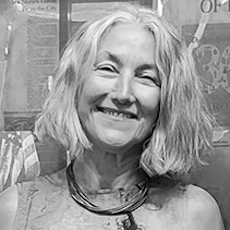
Isotta Poggi is associate curator of photographs at the Getty Research Institute in Los Angeles. Her collecting interests focus on the cultural history of photography from the nineteenth century through contemporary, as a medium for documentary and artistic practice, and as a narrative tool in albums, photobooks, and artists’ books. In 2018 she co-curated the exhibition Promote, Tolerate, Ban: Art and Culture in Cold War Hungary at the Wende Museum, and co-edited the accompanying volume. Drawing on the extensive archival holdings and special collections of the Getty Research Institute, she is currently directing the research project “On the Eve of Revolution: The East German Artist in the 1980s.”
Student Council zu "Democracy and Vulnerability" – mit Friedemann Karig
Online
Online Interview | 16:00 Uhr (PT)
Das Wende Museum, dublab radio, und das Thomas Mann House laden Sie ein zur zweiten Folge unserer monatlichen Interviewreihe zum Thema „Democracy & Vulnerability!“ Wie sollte eine Demokratie mit ihren eigenen Schwachstellen umgehen? Wie müssen sich Demokratien entwickeln, um erfolgreich mit den weltweit zunehmenden ökologischen Krisen, geopolitischen Spannungen, wirtschaftlichen Ungleichheiten und Kulturkriegen umzugehen? Wie viel Verwundbarkeit kann eine Demokratie ertragen? Der Gast für das Februar-Programm ist Journalist, Autor, Moderator und Thomas Mann Fellow Friedemann Karig!

*Diese Veranstaltung findet in englischer Sprache statt*
The Student Council consists of a team of highly engaged, talented, and diverse high school, undergraduate, and graduate students who invite prominent guest speakers to discuss topics relating to art, culture, politics, and society. In conversation with academics, journalists, politicians, and artists, the students will explore the various threats to democratic institutions and principles worldwide, as well as strategies to potentially overcome these threats. The series focuses on the new annual topic of the Thomas Mann House, “Democracy & Vulnerability:" Democratic processes are dynamic, inclusive, and human-centered but at times also messy, arbitrary, and even contrary to democracy itself. How should a democracy deal with its own vulnerabilities? What are the responsibilities of a democracy toward the most vulnerable in its populace? How do democracies need to evolve to deal successfully with increasing global levels of ecological, geo-political, and economic precarity? How much vulnerability can a democracy endure?
RSVP here
February Speaker
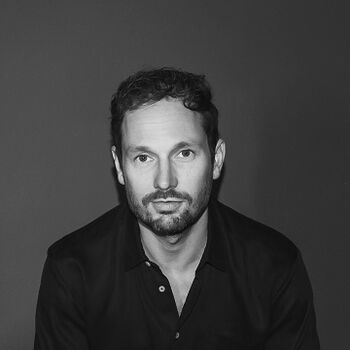
The guest speaker for our February program is Friedemann Karig, journalist, author, and moderator from Berlin. He has written for several leading German newspapers and magazines, including Süddeutsche Zeitung, Die Zeit, and Spiegel Online, among others. His nonfiction book Wie wir lieben (The Way We Love) was published in 2017, followed by his debut novel Dschungel (Jungle, 2019) and the nonfiction bestseller Erzählende Affen: Mythen, Lügen, Utopien – Wie Geschichten unser Leben bestimmen (Talking Monkeys: Myths, Lies, Utopias – How Stories Determine Our Lives, 2021). His most recent novel, Die Lügnerin (The (Female), Liar) was published in September 2023. Karig is a 2024 Thomas Mann House Fellow. During his fellowship in Los Angeles, he will examine protest cultures in the United States. Taking as his starting point Henry David Thoreau’s term “civil disobedience,” he will look at the civil rights movement and Black Lives Matter, among other protest movements.
Watch our January interview with Thomas Mann Fellow, curator, media studies scholar Sophie-Charlotte Opitz!
You can watch previous episodes on YouTube, listen to the recordings on dublab radio, or read our students' recap on the Thomas Mann House blog.
Meet the 2024 Student Council

Sara Abrahamsson is a fourth-year student at UCLA studying Art History and French. As a culmination of her artistic and academic interest in political graphics, Sara is currently writing her senior thesis paper on the internationalist poster art of post-revolutionary Cuba. Upon graduating, she plans to continue working in museums before pursuing graduate studies in Art History or Art Conservation.
Amy Cabrales is a First-Generation fourth-year undergraduate student at UCLA, studying Sociology and the Russian Language. She is a Mexican-American, Los Angeles native born in Lynwood, California. Her career interests include cross-cultural education via museum work or language instruction and immigrant resettlement, while her academic interests include immigrant integration and self-identity across immigrant generations. She is anticipating returning to Almaty, Kazakhstan for the 2024-25 academic year to inform these interests and advance her Russian proficiency.
Elsa Coony is a fourth-year student at the University of California, Los Angeles double majoring in Global Studies and German. She has previously worked at the United States Holocaust Memorial Museum as both a docent and translator and is excited to join this year's council. In the future, she hopes to pursue a career in international development.
Biruke Dix is currently a 2nd year student at UCLA studying Applied Mathematics. He joined the Wende Student Council in 2024 and is deeply invested in the ever-changing properties of art as well as social habits. He hopes that he can create language and conversation that promotes the spread of cultural shifts and social justice.
Matthew Jones is a third-year PhD student in Claremont Graduate University’s Cultural Studies and Museum Studies program. His research currently explores how sites connected to authoritarian regimes function as pilgrimage destinations and what strategies states and institutions employ to reduce extremist attachment at these sites. He is thrilled to continue his training with the Wende Museum through this collaboration with the Thomas Mann House.
Emma Larson is a master's student at Columbia University's Harriman Institute of Russian, Eurasian, and Eastern European Studies. There, she focuses on the gender, social, and political history of Central Asia. Before starting at Columbia, Emma taught English in Kazakhstan with the Fulbright Program. She graduated from Williams College with degrees in History and Russian in 2021.
Zora Nelson is a current undergraduate student at New York University, where she is studying Harp Performance and Media, Culture, and Communication. As an east coaster born and raised in Philadelphia, Pennsylvania, she discovered the Wende Museum in the summer of 2022 and is honored to be a part of the council. With a passion for writing, Zora sees a future in storytelling to promote social justice.
Lexi Tooley is a current sophomore at the University of Pennsylvania majoring in Political Science and Art History, minoring in Chinese Language and Culture. She is originally from Los Angeles, California, and attended the Archer School for Girls. Lexi has been working with the Wende Museum for the past 2 years. She looks forward to continuing the search for truth and examining the vulnerability of democracy through this program!
Czech Painters of California: Präsentation & Gespräch mit Konsul Jaroslav Olša, Jr.
Thomas Mann House
Start: 19:00 Uhr (PT) | Teilnahme nur auf Einladung
Das Thomas Mann House und das Generalkonsulat der Tschechischen Republik in Los Angeles veranstaltet eine exklusiven Veranstaltung im Thomas Mann House: Jaroslav Olša, Jr., Generalkonsul der Tschechischen Republik in Los Angeles, wird die neue Publikation und die Ausstellung Czech Painters of California vorstellen. Beide beschäftigen sich mit tschechischen Künstler:innen an der Westküste der Vereinigten Staaten, die vom Ende des 19. Jahrhunderts bis zur Samtenen Revolution 1989 hierher kamen.

*Diese Veranstaltung findet in englischer Sprache statt*
"Even more do I owe thanks to the Republic of Czechoslovakia, which most generously made a gift of its citizenship to me who was robbed of my German nationality. Especially at this moment, when the heavens of central Europe are darkening so threateningly, it is a heartfelt necessity to give expression to my faithful loyalty to this courageous and lovable democratic republic,“ wrote Thomas Mann in his lecture The Coming Victory of Democracy in 1938, publicly expressing his gratitude to Czechoslovakia. But also beyond Mann’s personal friendship with former Czechoslovakian President Edvard Beneš, many refugees from Czechoslovakia were an integral part of the émigré community of German-speaking exiles in 1930s and 1940s Los Angeles. Jaroslav Olša, Jr., Consul General of the Czech Republic in Los Angeles, will present on the recent publication and exhibition Czech Painters of California and excavate artworks and interwoven histories. After the presentation there will be time for a conversation and a light reception. With opening remarks by the Thomas Mann House.
Information zur Teilnahme
Teilnahme an dieser Veranstaltung ist nur auf Einladung möglich.
Sprecher
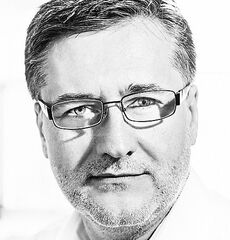
Jaroslav Olša Jr. is a Czech diplomat whose posts include those of Ambassador to Zimbabwe (2000–2006), South Korea (2008–2014) and the Philippines (2014–2018), and Consul General in Los Angeles (2020–current); author of books on history, art and literature of Asia and Africa. He is also science fiction editor, translator and bibliographer. He is also the author of books and articles on history, culture and literature of Asia and Africa and historical relations of the non-European countries with the Czech Lands. He has also widely published about science fiction and edited over a dozen anthologies of Czech and international science fiction. He has published in a wide-range of publications such as Czech edition of National Geographic, Nový Orient (New Orient), Světová literatura (World Literature), Mezinárodní politika (Foreign Policy), Mezinárodní vztahy (International Relations). Contributor to various Czech and foreign-language encyclopedias. He was also a curator of art exhibitions, member of the jury of 2011 Bucheon International Fantastic Film Festival, and initiated numerous cultural exchanges and activities.
Diese Veranstaltung ist eine Zusammenarbeit zwischen dem Generalkonsulat der Tschechischen Republik in Los Angeles & dem Thomas Mann House Los Angeles.


„Oper & Demokratie: Den gewaltsam Verstummten zuhören … “: Musik und Gespräch zu Komponistinnen und Komponisten, die in der NS-Zeit ermordet wurden
Bayerische Akademie der Schönen Künste, München
Türen öffnen: 16:00 Uhr. (MEZ) | Start: 17:00 Uhr. (MEZ) | Ende: 21:00 Uhr. (MEZ)
Am 3. März findet die zweite Veranstaltung unserer transatlantischen Konzert-und Gesprächsreihe Oper & Demokratie statt, die gleichzeitig auch die Auftaktveranstaltung für die Serie in Deutschland ist. Die Reihe widmet sich jener Kunstform, die auch für Thomas Mann eine große Leidenschaft war: die Oper. Im Zentrum steht ihr demokratisches Potenzial, das in verschiedenen Veranstaltungen in den USA und Deutschland erkundet wird.

Die Veranstaltung erinnert an drei Künstlerinnen und Künstler, die gewaltsam verstummt sind. Der Komponist, Korrepetitor und Dirigent Viktor Ullmann wurde 1942 in das Ghetto Theresienstadt deportiert und am 18. Oktober 1944 im Konzentrationslager Auschwitz-Birkenau ermordet. Auch Gideon Klein, Komponist und Pianist, wurde 1941 nach Theresienstadt gebracht; 1944 wurde er in Auschwitz-Birkenau ermordet. Beide Komponisten schufen in Theresienstadt eine Vielzahl an Musik, unter anderem eine Oper. Die tschechoslowakische deutschsprachige Schriftstellerin Ilse Weber wurde nach ihrer Internierung in Theresienstadt weiter nach Auschwitz gebracht. Vor Kriegsausbruch war sie eine erfolgreich arbeitende Künstlerin, wurde mehrfach veröffentlicht. Im Lager arbeitete Weber als Krankenschwester im Kinderkrankenhaus, las und sang für die Kleinen und versuchte, mit ihren Texten Hoffnung zu geben. Ihre Texte und Lieder waren im Lager vermutlich weit verbreitet, wurden aus dem Ghetto geschmuggelt und im Nachhinein von Überlebenden aus dem Gedächtnis notiert. Einige wurden wohl von Weber selbst auf der Gitarre begleitet. Ilse Weber wurde 1944 mit ihrem Sohn und weiteren Kindern, die sie pflegte, in der Gaskammer getötet.
In zwei Gesprächen werden ausgehend von den Klängen der Werke die Biografien und Umstände in Theresienstadt genauer beleuchtet. Diskutiert wird außerdem, was wir als Gesellschaft im 21. Jahrhundert dafür tun können, verstummte Stimmen hörbar zu machen, wo das demokratische Potenzial von Musik und der Oper zu verorten ist und welchen Beitrag sie zu einem vielfältigen und inklusiven Miteinander leisten können. Christopher Warmuth
Programm
Streichtrio
für Violine, Viola und Violoncello (1944)
Die Weise von Liebe und Tod des Cornets Christoph Rilke
12 Stücke aus der Dichtung Rainer Maria Rilkes für Sprecher und Klavier (1944)
Drei Lieder (Herbst / Lieder der Tröstung) für mittlere Singstimme und Streichtrio (1943)
I. Georg Trakl: „Herbst“
II. Albert Steffen: „Lieder der Tröstung“:
1. „Tote wollen nicht verweilen“
2. „Erwachen zu Weihnachten"
Besetzung
Moderation: Andrea Thilo
Gesprächspartner:innen: Lydia Grün, Vladimir Jurowski, Tomáš Kraus, Kai Hinrich Müller
Violine: Susanne Gargerle
Viola: Tilo Widenmeyer
Violincello: Allan Bergius
Alt: Noa Beinart
Rezitation: Robert Dölle
Klavier: Vladimir Jurowski
Eintritt:
Regulär: 20 €
Ermäßigt: 10 €
Ort:
Bayerische Akademie der Schönen Künste
Max-Joseph-Platz 3, 80539 München
Weitere Informationen:
Lesen Sie mehr zur Veranstaltung hier.
100 Jahre „Der Zauberberg”: Gespräch & Konzert mit Samantha Rose Hill, Paul Holdengräber & David Kaplan
Los Angeles
Zeit: 19:00 Uhr (PT) | Thomas Mann House Los Angeles | Teilnahme nur auf Einladung
Feiern Sie gemeinsam mit dem Japanese American Cultural and Community Center, dem Brooklyn Institute for Social Research, der UCLA Herb Alpert School of Music und dem Thomas Mann House Los Angeles den 100. Geburtstag von Thomas Manns Der Zauberberg!
Das Video dieser Veranstaltung finden Sie online.
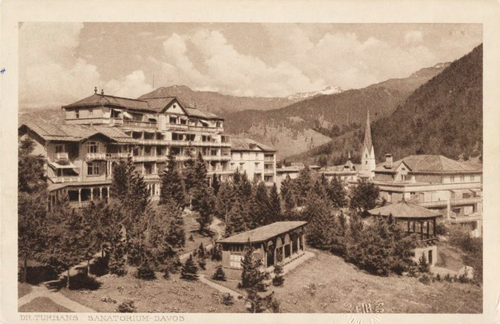
*Diese Veranstaltung findet in englischer Sprache statt*
Published in Germany in 1924, Thomas Mann’s The Magic Mountain tells the story of Hans Castorp, an ordinary young man who goes to visit his cousin Joachim in a Swiss tuberculosis sanatorium for three weeks and ends up staying for seven years. Set on the precipice of World War One, the novel captures the spirit of prewar Europe and the ailments of the modern world: isolation, mass epidemics, the plight of progress and industrial alienation. Mann’s ever-timely novel offers meditations on love, loss, time, what it means to become a person in the world, and what it means to face death.
To mark the 100th anniversary of Mann’s modernist masterpiece, we cordially invite you to the living room of the writer's home in exile for a conversation on pilgrimage between author and scholar Samantha Rose Hill and curator and interviewer Paul Holdengräber. What does it mean to leave the world of everyday life and undertake a journey? How does travel inform one’s perception of text, artwork, love, loss? In what ways does one’s experience of time change when one finds oneself perpetually caught in between the longing for home and flight of adventure? Can Mann’s work help us to think about our world today, a world defined by a sense of displacement, longing, loneliness, and war? Is it the x-ray we need to help us see more clearly right now?
Before and after the conversation, acclaimed pianist David Kaplan and students from the UCLA Herb Alpert School of Music will perform pieces by Claude Debussy and Franz Schubert on Thomas Mann’s historical piano: Singer Andres Delgado accompanies Kaplan in Die Post, Einsamkeit, and Der Lindenbaum from Schubert’s song cycle Winterreise; and pianists Alexandre Tchaykov and Biguo Xing will play Debussy’s Prélude à l'après-midi d’un faune, a favorite piece of music of Hans Castorp in the novel.
This event is part of a seminar on The Magic Mountain offered by the Brooklyn Institute for Social Research & the Japanese American Cultural & Community Center. Led by Samantha Rose Hill, this course reads the entirety of The Magic Mountain alongside short selections from medical journals, critical reviews, Mann’s correspondence, and lectures, while asking: What does it mean to be healthy? How does modernity change our conception of time? How might we think about enchantment in the modern world? Learn more here.
Teilnahme
Teilnahme an dieser Veranstaltung ist nur auf Einladung möglich.
Teilnehmer:innen

Samantha Rose Hill is the author of the critically acclaimed book Hannah Arendt (2021) and the editor and translator of What Remains: The Collected Poems of Hannah Arendt (2017). She is associate faculty at the Brooklyn Institute for Social Research in New York City. Her work has appeared in the Los Angeles Review of Books, LitHub, OpenDemocracy, and the journals Public Seminar, Contemporary Political Theory, and Theory & Event.
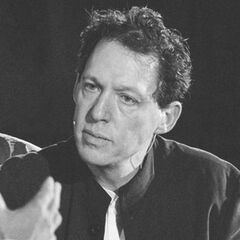
Paul Holdengräber is an interviewer, curator of public curiosity, and was the Founding Executive Director of Onassis Los Angeles (OLA). Prior he was Founder and Director of The New York Public Library’s LIVE from the NYPL cultural series where he interviewed and hosted over 600 events, including interviews with Patti Smith, Wes Anderson, Mike Tyson, Werner Herzog and many more. Before his tenure at the library, he was the Founder and Director of The Institute for Art & Cultures at the LACMA. He holds a Ph.D. in comparative literature from Princeton University. In 2003, the French Government named him Chevalier des Arts et des Lettres, and then promoted him in 2012 to the rank of Commandeur des Arts et des Lettres. In 2010, The President of Austria awarded him the Austrian Cross of Honor for Science and Art.

David Kaplan, pianist, has been called “excellent and adventurous” by The New York Times, and praised by the Boston Globe for “grace and fire” at the keyboard. He has appeared as soloist with numerous orchestras, including the Britten Sinfonia and Das Sinfonie Orchester Berlin. Known for diverse and creative recital programs, he has appeared at the Ravinia Festival, Washington’s National Gallery, Strathmore, and Bargemusic. Kaplan’s New Dances of the League of David, mixing Schumann with 16 new works, was cited in the “Best Classical Music of 2015” by The New York Times.
Rethinking Democracy – How Megatrends Shape Our Future: Ein Vortrag von Andrea Römmele
Online
12 – 13 Uhr (MST) | Online
Thomas Mann Fellow und Kommunikation-und Politikwissenschaftlerin Andrea Römmele besucht die University of New Mexico, wo sie einen Vortrag über „Rethinking Democracy – How Megatrends Shape our Future” halten wird. Die Veranstaltung findet in Kooperation mit dem dortigen Department of Political Science statt.

*Diese Veranstaltung findet in englischer Sprache statt*
Andrea Römmele, Professor of Political Communication, Dean and Vice President at the Hertie School in Berlin, researches the impact that major societal 'megatrends' –such as technology and AI, urbanization, demographic and social change, climate change and resource scarcity, or global growth markets – have on Western democracies.
How do different systemic and societal structures in Germany and the U.S. affect these developments? She is currently a Fellow at the Thomas Mann House in Los Angeles, a residency center and space for transatlantic debate in the former exile home of the German Nobel-laureate Thomas Mann. During her residency in Los Angeles, she explores the consequences of these megatrends for democracy from a transatlantic perspective: How can democratic systems shape these consequences? How can we overthink traditional political approaches and implement political systems that not only administer but lead the way into a visionary future?
Participant
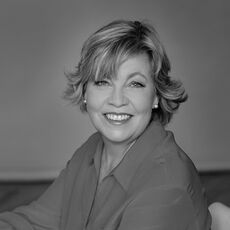
Andrea Römmele hat einen Master-Abschluss der San Francisco State University, wurde in Heidelberg promoviert und an der Freien Universität Berlin habilitiert. Ihre Forschungsinteressen liegen im Bereich der digitalen Demokratie, Wahlen sowie Wahlkämpfe und Parteien. Eines ihrer zentralen Anliegen ist die Vermittlung zwischen Wissenschaft und Praxis. Eines ihrer aktuellen Projekte hierzu ist die gemeinsam mit der ARD entwickelte „Demokratie-Reportage”, die sie selbst moderiert.
Student Council zu "Democracy and Vulnerability" – mit Triston Ezidore
Online
Online interview | 16:00 Uhr (PT)
Das Wende Museum, dublab radio, und das Thomas Mann House laden Sie ein zur März Folge unserer monatlichen Interviewreihe zum Thema „Democracy & Vulnerability!“ Wie sollte eine Demokratie mit ihren eigenen Schwachstellen umgehen? Wie müssen sich Demokratien entwickeln, um erfolgreich mit den weltweit zunehmenden ökologischen Krisen, geopolitischen Spannungen, wirtschaftlichen Ungleichheiten und Kulturkriegen umzugehen? Wie viel Verwundbarkeit kann eine Demokratie ertragen? Der Gast für das März-Programm ist der jüngste gewählte Beamter in der Geschichte des Los Angeles County, Mitglied des Schulausschusses von Culver City, Triston Ezidore.

*Diese Veranstaltung findet in englischer Sprache statt*
The Student Council consists of a team of highly engaged, talented, and diverse high school, undergraduate, and graduate students who invite prominent guest speakers to discuss topics relating to art, culture, politics, and society. In conversation with academics, journalists, politicians, and artists, the students will explore the various threats to democratic institutions and principles worldwide, as well as strategies to potentially overcome these threats. The series focuses on the new annual topic of the Thomas Mann House, “Democracy & Vulnerability:" Democratic processes are dynamic, inclusive, and human-centered but at times also messy, arbitrary, and even contrary to democracy itself. How should a democracy deal with its own vulnerabilities? What are the responsibilities of a democracy toward the most vulnerable in its populace? How do democracies need to evolve to deal successfully with increasing global levels of ecological, geo-political, and economic precarity? How much vulnerability can a democracy endure?
March Speaker
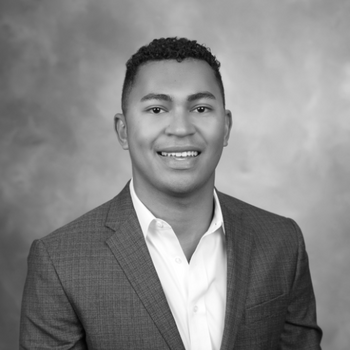
At 19 years old, Board Member Triston Ezidore made history as the youngest elected official in the history of Los Angeles County and the first black male to serve on Culver City Unified Board of Education. As a recent high school graduate, Board Member Ezidore is a staunch advocate in building a school district in which all students can thrive. He currently works as a Youth Employment Manager with the Housing Authority of the City of LA, and has served his community as an Equity Specialist, Legislative Organizer, and committee member on the District’s Equity Advisory Committee, Restorative Practice’s Committee, Positive Behavior and Intervention’s Support Committee, and the Sexual Assault and Misconduct Reform Committee.
Watch our February interview with Thomas Mann Fellow, author, and journalist Friedemann Karig!
You can watch previous episodes on YouTube, listen to the recordings on dublab radio, or read our students' recap on the Thomas Mann House blog.
Meet the 2024 Student Council

Sara Abrahamsson is a fourth-year student at UCLA studying Art History and French. As a culmination of her artistic and academic interest in political graphics, Sara is currently writing her senior thesis paper on the internationalist poster art of post-revolutionary Cuba. Upon graduating, she plans to continue working in museums before pursuing graduate studies in Art History or Art Conservation.
Amy Cabrales is a First-Generation fourth-year undergraduate student at UCLA, studying Sociology and the Russian Language. She is a Mexican-American, Los Angeles native born in Lynwood, California. Her career interests include cross-cultural education via museum work or language instruction and immigrant resettlement, while her academic interests include immigrant integration and self-identity across immigrant generations. She is anticipating returning to Almaty, Kazakhstan for the 2024-25 academic year to inform these interests and advance her Russian proficiency.
Elsa Coony is a fourth-year student at the University of California, Los Angeles double majoring in Global Studies and German. She has previously worked at the United States Holocaust Memorial Museum as both a docent and translator and is excited to join this year's council. In the future, she hopes to pursue a career in international development.
Biruke Dix is currently a 2nd year student at UCLA studying Applied Mathematics. He joined the Wende Student Council in 2024 and is deeply invested in the ever-changing properties of art as well as social habits. He hopes that he can create language and conversation that promotes the spread of cultural shifts and social justice.
Matthew Jones is a third-year PhD student in Claremont Graduate University’s Cultural Studies and Museum Studies program. His research currently explores how sites connected to authoritarian regimes function as pilgrimage destinations and what strategies states and institutions employ to reduce extremist attachment at these sites. He is thrilled to continue his training with the Wende Museum through this collaboration with the Thomas Mann House.
Emma Larson is a master's student at Columbia University's Harriman Institute of Russian, Eurasian, and Eastern European Studies. There, she focuses on the gender, social, and political history of Central Asia. Before starting at Columbia, Emma taught English in Kazakhstan with the Fulbright Program. She graduated from Williams College with degrees in History and Russian in 2021.
Zora Nelson is a current undergraduate student at New York University, where she is studying Harp Performance and Media, Culture, and Communication. As an east coaster born and raised in Philadelphia, Pennsylvania, she discovered the Wende Museum in the summer of 2022 and is honored to be a part of the council. With a passion for writing, Zora sees a future in storytelling to promote social justice.
Lexi Tooley is a current sophomore at the University of Pennsylvania majoring in Political Science and Art History, minoring in Chinese Language and Culture. She is originally from Los Angeles, California, and attended the Archer School for Girls. Lexi has been working with the Wende Museum for the past 2 years. She looks forward to continuing the search for truth and examining the vulnerability of democracy through this program!
The Art of Living Together – Democracy & Solidarity: Workshop von Susanne Baer, Sabine_ Hark & Rahel Jaeggi mit Karen Mack, David D. Kim, Jordan Wynne, und Stephen Gardbaum
Los Angeles
9. April 2024, 19 Uhr (PT) | Thomas Mann House Los Angeles | Nur auf Einladung
2024 Fellows Susanne Baer, Rechtswissenschaftlerin und ehemalige Bundesrichterin am Bundesverfassungsgericht, Soziologin Sabine_ Hark und Philosophin Rahel Jaeggi führen eine partizipativen Diskussion im Wohnzimmer des Thomas Mann House. Unter der Moderation von David Kim (UCLA) werden die drei über die Rolle von Solidarität in Demokratien diskutieren und mit Expert:innen aus den Bereichen Wissenschaft, Recht, Community Organizing, Non-Profit-Arbeit und Aktivismus ins Gespräch kommen.
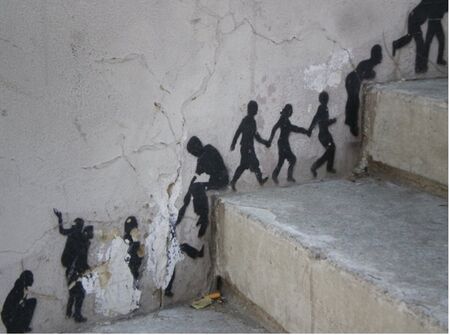
*Diese Veranstaltung findet in englischer Sprache statt*
What kind of solidarity does a functioning democracy need? Can practices of solidarity replace welfare state arrangements? What is the difference between solidarity and charity? And what is the role of institutions versus individual activists or non-profit organizations?
During their time in Los Angeles, Baer, Hark, and Jaeggi are exploring the principle of solidarity from different academic backgrounds. By bringing critical legal studies and comparative constitutionalism into conversation with social philosophy, critical theory, feminist theory, and queer theory, they aim to contribute to a practice of solidarity.
As part of the Thomas Mann House annual theme “Democracy & Vulnerability,” the three scholars argue that solidarity is essential for every democracy to thrive and democratic cooperation, under the rule of law, is crucial for strengthening democratic participation. To achieve this, they stress the importance of clear rules that promote both equality and solidarity in society. In today's Western democracies, we are confronted with various crises: climate change, wars, economic exploitation, pandemics, and violence against marginalized groups, among others. Unsurprisingly, some forces are exploiting these crises and using their democratic power to undermine liberal values, promoting discrimination and exclusion under the guise of democracy. In contrast, solidarity is seen as inclusive and fair. It involves people working together, supporting each other, and addressing common issues. It's not just a social concept; it's also influenced by laws and institutions. Solidarity reflects how we interact and guides us in creating a better society.
Join us at the Thomas Mann House to learn more about their project “The Art of Living Together – Democracy & Solidarity.” Together with L.A.-based experts from academia, law, community organizing, non-profit work, and activism, our three fellows will provide insights into their research and discuss potential ways of practicing solidarity across the Atlantic.
Attendance
Attendance by invitation only.
Participants
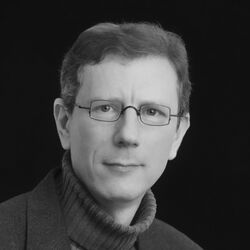
Stephen Gardbaum is the Stephen Yeazell Endowed Chair in Law at UCLA School of Law, and was a previous Faculty Director of the Promise Institute for Human Rights. His research focuses on comparative constitutional law and constitutional theory. Gardbaum's widely-reviewed book The New Commonwealth Model of Constitutionalism: Theory and Practice (Cambridge University Press, 2013) explores a novel form of human rights protection in Canada, New Zealand, and the United Kingdom. Gardbaum’s work has appeared, among other places, in the Harvard Law Review, Stanford Law Review, Michigan Law Review, and the University of Chicago Law Review.
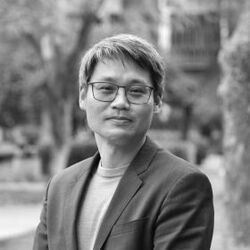
David D. Kim is a professor in the Department of European Languages and Transcultural Studies at UCLA as well as Associate Vice Provost at the International Institute at UCLA. Kim’s scholarly interests range from postcolonial, global, and migration studies and community engagement to human rights, cosmopolitanism, cultural and political theories, global literary histories, and digital humanities. His first monograph is Cosmopolitan Parables (Northwestern University Press, 2017) and his peer-reviewed articles have recently appeared in The German Quarterly, Monatshefte, Gegenwartsliteratur, and Journal of Translation Studies.

Karen Mack created the South LA-based nonprofit LA Commons based on a vision of communities where everyone has the access and freedom to express themselves culturally and to tap the power that creativity provides. Since that time, she and her team have worked in neighborhoods across the city, implementing artistic programs that foster interaction, dialogue and collaboration for a better Los Angeles. LA Commons plays a unique role as a facilitator of local engagement in arts and culture as well as in other important issues.

Jordan Wynne (they/them) is a housing justice and homelessness policy expert that has been working in the Greater Los Angeles area for over seven years. Their accomplishments include serving as the Co-Chair for the Long Beach Continuum of Care Board, Board member of the Long Beach Homeless Coalition; regional organizing director for Everyone In - Long Beach; Community Activation Special for United Way of Greater Los Angeles; and Grants Manager for Long Beach Residents Empowered, in which they secured $800,000 for the organization to pilot the city's first Community Land Trust.
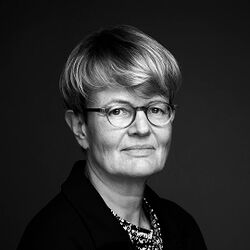
Susanne Baer is Professor of Public Law and Gender Studies at Humboldt-Universität zu Berlin, Lea Bates Global Law Professor at the University of Michigan Law School, and Centennial Professor at LSE London. From 2011 to 2023, she served as a federal judge on the German Constitutional Court. Her work focuses comparatively on constitutionalism, interdisciplinary legal research, and equality law. She is the author and co-author of many publications in German and English, including a textbook on Rechtssoziologie and the casebook Comparative Constitutionalism: Cases and Materials.

Sabine_ Hark has been Professor of Gender Studies and director of the Center for Interdisciplinary Gender Studies at the Technical University of Berlin since 2009. Hark has researched and taught at universities around the globe, including in Germany, Austria, Canada, Switzerland, and the USA. In addition to numerous positions as a board member and co-founder (of, for example, the organization WIR MACHEN DAS – wearedoingit e.V.), she is also co-editor of the journal Feministische Studien.
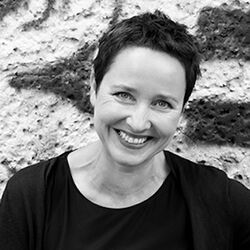
Rahel Jaeggi has been Professor of Philosophy with a focus on Political Philosophy at Humboldt-Universität zu Berlin since 2009 and director of the university’s Centre for Social Critique since 2018. Rahel Jaeggi has researched and taught as a visiting professor at Yale University, Fudan University, and as Theodor Heuss Professor at The New School for Social Research. Jaeggi was also a fellow at the Institute for Advanced Study in Princeton. She is a prominent representative of critical theory, has received numerous awards, and is the author and co-editor of numerous books, most recently Fortschritt und Regression ("Progress and Regression").
Opera & Democracy: Demokratieförderung an der HfMT – Musikwissenschaft und Musikpädagogik im Fokus
Köln
Start: 15:00 Uhr (MEZ) | Kammermusiksaal, Unter Krahnenbäumen 87, 50668 Köln | Eintritt: kostenfrei, mit Anmeldung
Thementag mit Diskussionen und Musik in Zusammenarbeit mit der Reihe Oper & Demokratie des Thomas Mann House, Los Angeles
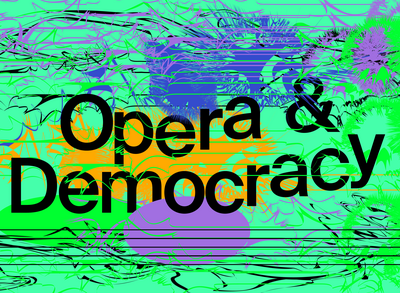
Wie können Musikhochschulen, besonders die Disziplinen Musikwissenschaft und Musikpädagogik, zu einem nachhaltigen, inklusiven und diversen demokratischen Miteinander beitragen? Dieser Frage widmet sich ein Thementag in der Hochschule für Musik und Tanz Köln. Zwei Podiumsdiskussionen, eingerahmt von Musik, loten die Rolle von Bildungseinrichtungen im demokratischen Diskurs aus. Expert*innen aus verschiedenen Bereichen des Musiklebens und aus Bildungsinstitutionen beziehen Stellung und laden das Publikum zum Austausch ein.
Teilnahme
Damit angesichts der beschränkten Anzahl von Plätzen jede:r Interessierte teilnehmen kann, ist für die Teilnahme eine vorherige Anmeldung nötig:
Programm
Beteiligte
Leitung: Kai Hinrich Müller, Musikwissenschaftler und Thomas Mann Fellow 2023/24 und Anne Niessen, Professorin für Musikpädagogik an der HfMT Köln
Moderation: Marco Lombardo, WDR Wuppertal
Musik: Jan-Hendrik Herrmann, Chorleiter
Zeitplan
Teilnehmer:innen
Jan-Hendrik Herrmann studierte Schulmusik und Latin Percussion an der HfMT Köln. Als Bariton und Beatboxer der a cappella-Band Soundescape und als Leiter des Jazzchors der Uni Bonn gewann er mit beiden Ensembles Preise auf nationalen und internationalen a cappella-Festivals und -Wettbewerben. Als Chorleiter, Stimmbildner und Vocalcoach ist er für Workshops, Coachings und Fortbildungen bundesweit unterwegs und arbeitete u.a. mit dem WDR Rundfunkchor, der Kölner a cappella-Gruppe basta und als musikalischer Berater bzw. Coach bei der WDR-Sendung Der beste Chor im Westen. Seine Chor-Arrangements sind im Schott-, Carus-, Bosse-, Helbling- und Ferrimontana-Verlag erschienen und werden von namhaften Chören gesungen. Seit 2021 unterrichtet er an der HfMT Köln Chorleitung Jazz/Pop, Vocal-Arrangement und Gruppenmusizieren sowie an der Hochschule für Musik und Darstellende Künste Frankfurt am Main Pop- und Jazzchorleitung als Gastdozent.
Nach seinem Lehramtsstudium promovierte Johann Honnens ab 2012 im Rahmen des Graduiertenkollegs Das Wissen der Künste an der Universität der Künste Berlin (UdK) mit einer inzwischen mehrfach ausgezeichneten Arbeit zur Rezeption von arabesk-Musik unter deutsch-türkischen Jugendlichen und musikbezogenen Anerkennungsprozessen. Zwischen 2021 und 2023 war er Professor für Musikpädagogik an der HfMT Köln und seit dem Wintersemester 2023/24 an der UdK. Seine Forschungsschwerpunkte liegen in soziologischen und diversitätskritischen Themenfeldern, in qualitativ-empirischer Sozialforschung und in grundlagentheoretische Fragestellungen u.a. zu Hermeneutik und Normativität in der Musikpädagogik.
Hannah Kopp wurde 2001 in Neuss geboren. Im Anschluss an das Abitur begann sie ein Studium für das gymnasiale Lehramt in den Fächern Musik und Mathematik an der HfMT Köln sowie an der Universität zu Köln, das sie Ende des Wintersemesters 2023/24 mit dem Bachelor abschließen wird. Seit 2023 studiert sie zusätzlich in den Studiengängen Elementare Musikpädagogik und Gesangspädagogik. Während des Studiums engagiert sich Hannah Kopp seit 2022 im AStA der HfMT Köln, bei dem sie die Aufgaben des Referats Finanzen II übernimmt. Neben dem Studium leitet sie Kurse in Musikalischer Früherziehung für Kinder im Alter von 4 bis 6 Jahren. Darüber hinaus war sie als Vertretungslehrkraft im Unterrichtsfach Musik für das Gutenberg-Gymnasium tätig.
Marco Lombardo ist Journalist und Moderator. Nach dem Volontariat bei HitRadio FFH in Hessen war er dort jahrelang als Redakteur, Reporter und Moderator tätig. Seit 2009 ist Marco Lombardo TV-Moderator beim WDR Fernsehen und in der ARD. Die Lokalzeit, daheim+unterwegs, diverse Sondersendungen und die ARD-Vormittags-Sendung Live nach neun gehören zu seinen Erfahrungen. In dieser Zeit hat Marco Lombardo viele Veranstaltungen moderiert – Podiumsdiskussionen, Thementage, Galas, Messen. Seit dem Wintersemester 23/24 ist Marco Lombardo Dozent an der HfMT Köln (Konzertmoderation und Musikvermittlung auf der Bühne).
Sabine Meine ist seit 2017 Professorin für Musikwissenschaft an der HfMT Köln. Sie betrachtet Musik in ihrem weiten Bedeutungsraum aus einer dezidiert kulturhistorischen Perspektive, mit Schwerpunkten auf der Musikkultur der Frühen Neuzeit und der Moderne in Italien und Frankreich. Meine hat Musikwissenschaft, Romanistik sowie Schulmusik studiert und zusätzlich zu Promotion und Habilitation das Zweite Staatsexamen für das höhere Lehramt absolviert. Sie war Professorin an der Universität Paderborn/Hochschule für Musik Detmold und acht Jahre beruflich in Italien: Wissenschaftliche Mitarbeiterin am Deutschen Historischen Institut in Rom und Direktorin des Deutschen Studienzentrum in Venedig. An der HfMT Köln leitet sie derzeit das Lehrprojekt Kölner Musikgeschichten. Postmigrantische Kulturen erforschen, vernetzen und verorten, das im April mit Fokus auf Istanbul in Köln startet.
Kai Hinrich Müllers Arbeiten bewegen sich an der Schnittstelle von Wissenschaft und Praxis und verbinden ihn mit renommierten Institutionen in Europa und den USA. Als 2023 Thomas Mann Fellow verantwortet er zurzeit die transatlantische Reihe Oper & Demokratie am Thomas Mann House in Los Angeles. Darüber hinaus ist er Leiter des bauhaus music weekend in Berlin, der Terezín Music Academy im ehemaligen Ghetto Theresienstadt sowie verschiedener Projekte zur kritischen Auseinandersetzung mit Wagners Der Ring des Nibelungen: Wagner-Lesarten von Kent Nagano, Concerto Köln und der Kunststiftung NRW sowie The Wagner Cycles von Jan Vogler, Kent Nagano und den Dresdner Musikfestspielen. Er studierte Musikwissenschaft, Jura und BWL an der Universität Bonn und der HfMT Köln (Promotion 2013; Habilitation 2022). Seine Forschungsschwerpunkte umfassen u.a. Wagner und den Bayreuther Kreis, das Musikleben der Zwischenkriegs- und NS-Zeit, Antisemitismus in der Musikgeschichte, Fragen von Demokratie, Migration und Exil sowie transatlantische Operntraditionen. Aktuelle Buchprojekte widmen sich u.a. den Zusammenhängen von Oper und Demokratie sowie der umfassenden Darstellung der deutsch-amerikanischen Operngeschichte.
Andreas Niessen wuchs im rheinischen Troisdorf auf und lernte in der Musikschule u.a. Cello und Klavier. Sein Studium absolvierte er an der HfMT Köln (Instrumentalpädagogik/Cello und Lehramt Sekundarstufe II) sowie an der Universität zu Köln (Geografie, Erziehungswissenschaften). Musikpädagogische Erfahrungen sammelte Andreas Niessen als Lehrkraft an der Musikschule Dormagen (Cello und Ensemble). Nach dem Referendariat an Realschule und Gymnasium arbeitete er als Lehrer für Musik und Erdkunde an verschiedenen Gymnasien. Von 2003 bis 2018 war er Schulleiter am Geschwister-Scholl-Gymnasium Pulheim, dann wechselte er als Gründungsschulleiter an die Heliosschule »Inklusive Universitätsschule Köln« – Gesamtschule. Als Schulleiter liegen ihm besonders die Themen Inklusion, Beziehungs- und Teamschule und die Förderung der Eigenverantwortung und der Partizipation von Schülerinnen und Schülern am Herzen. Andreas Niessen ist ehrenamtlich tätig u.a. im Sprecher*innen-Team des Schulverbunds Blick über den Zaun sowie bei der Schulleitervereinigung Gesamtschule NRW.
Anne Niessen unterrichtete im Anschluss an ein Lehramtsstudium mit den Fächern Musik und Deutsch an verschiedenen Gymnasien, promovierte im Fach Musikpädagogik zum Singen von Mädchen in der Zeit des Nationalsozialismus und arbeitete anschließend an der Universität Siegen und der Universität zu Köln. Nach ihrer Habilitation im Jahre 2005 zur Unterrichtsplanung von Musiklehrkräften ist sie seit 2013 Professorin für Musikpädagogik an der HfMT Köln, wo sie den Studiengang Master of Arts Musikpädagogik leitet. Ihr Forschungsschwerpunkt liegt in der musikpädagogischen Unterrichtsforschung mit qualitativen empirischen Verfahren; vor allem führt sie Interviewstudien mit Schüler:innen sowie Lehrenden durch. Ein wichtiges Anliegen ihrer wissenschaftlichen Arbeit besteht darin, die unterschiedlichen Perspektiven der verschiedenen Akteur:innen und hegemoniale Strukturen schulischer Musikpädagogik zu erschließen.
Nora Pempel hat Kultur- und Musikwissenschaft studiert. Seit 2021 arbeitet sie im Landesverband der Musikschulen in NRW als Leiterin des Projektes Heimat: Musik. Das Projekt fördert Angebote an öffentlichen Musikschulen in NRW für Geflüchtete und Menschen mit Migrationsgeschichte. In diesem Kontext arbeitet sie an der Diversitätsentwicklung der Musikschulen und des Verbandes. Im Jahr 2023 hat sie außerdem eine Weiterbildung als „Transformationsmanagerin Nachhaltige Kultur“ absolviert und bearbeitet als Nachhaltigkeitsmanagerin dieses Thema für den Verband und die Musikschulen.
Lukas Schumacher, geboren 1997, studiert im Master of Education für das Lehramt an Gymnasien und Gesamtschulen mit den Fächern Musik und Deutsch an der HfMT Köln sowie an der Universität zu Köln. Seine Masterarbeit widmete er dem Thema Demokratiebildung im Musikunterricht. Als ehemaliger AStA-Vorsitzender und durch weiteres Engagement als Studierendenvertreter sammelte er viel Erfahrung im hochschulpolitischen Bereich. Lukas Schumacher war jahrelang als Dirigent eines symphonischen Blasorchesters im Oberbergischen Kreis tätig und arbeitet derzeit als Musiklehrkraft am Kölner Friedrich-Wilhelm-Gymnasium. Zudem ist er Stipendiat der Friedrich-Ebert-Stiftung sowie der Robert-Schumann-Gesellschaft Düsseldorf. Sein Studium wird er im Sommer 2024 beenden.
Antje Valentin ist seit März 2024 Generalsekretärin des Deutschen Musikrates. Die studierte Musikerin und Kulturmanagerin war seit 2011 als Direktorin der Landesmusikakademie NRW tätig. Zuvor arbeitete sie langjährig als Pianistin und Instrumentalpädagogin, leitete die Musikschule Berlin-Friedrichshain und war stellvertretende Leiterin der Landesmusikakademie Berlin. Antje Valentin engagiert sich zudem ehrenamtlich in zahlreichen Gremien, u.a. als Vorsitzende des Übehaus Kray e.V. in Essen, als stellvertretende Vorsitzende des Beirats des Musikinformationszentrums des Deutschen Musikrates und als Vorstandsmitglied des Netzwerk Junge Ohren e.V.
Paradoxes of Solidarity: Vortrag von Rahel Jaeggi
University of California, Los Angeles
12:30 Uhr (PT) | UCLA, Bunche Hall 4357 | Teilnahme kostenfrei mit Anmeldung
Der Fachbereich für Politikwissenschaft an der UCLA, das Internationale Institut und das Thomas Mann House lädt Sie ein zu einem Vortrag von Rahel Jaeggi, Philosophin und 2024 Thomas Mann Fellow. Während ihres Aufenthalts in Los Angeles erforscht Jaeggi die Bedeutung von Solidarität für demokratische Gesellschaften.

*Diese Veranstaltung findet in englischer Sprache statt*
Solidarity, in a preliminary understanding, means “standing in for each other,” based on a symmetrical, reciprocal, and cooperative relation, mediated through a common cause. Yet, if we work with this definition, three paradoxes (or at least tensions) arise. (1) If we take solidarity to be symmetrical: How can we account for obvious asymmetries in situations where solidarity is needed? (2) Solidarity seems to be bound to a particular situation and group, but then how do we come to grips with its universalistic claims? (3) Solidarity seems to be “given” and “made” at the same time. Rahel Jaeggi’s lecture will address these paradoxes, arguing for an enlarged understanding of symmetry, a bottom-up conception of universality, and a concept of solidaristic practice that allows to understand how solidarities are based on shared experiences but realized through solidaristic action.
Sprecherin
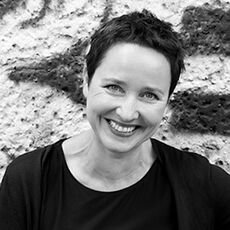
Rahel Jaeggi has been a Professor of Philosophy with a focus on Political Philosophy at Humboldt-Universität zu Berlin since 2009 and director of the university’s Centre for Social Critique since 2018. Rahel Jaeggi has researched and taught as a visiting professor at Yale University, Fudan University, and as Theodor Heuss Professor at The New School for Social Research. Jaeggi was also a fellow at the Institute for Advanced Study in Princeton. She is a prominent representative of critical theory, has received numerous awards, and is the author and co-editor of numerous books, most recently Fortschritt und Regression ("Progress and Regression“), the English translation is forthcoming in the fall of 2024. Rahel Jaeggi is a 2024 Thomas Mann House Fellow in Los Angeles.
Oper & Demokratie: Listening to Exile
New York
1014 - Space for Ideas, das Österreichische Kulturforum New York, das Goethe-Institut New York und das Leo Baeck Institute - New York | Berlin lädt gemeinsam mit dem Musikwissenschaftler und Thomas Mann Fellow 2023 Kai Hinrich Müller und das Thomas Mann Haus, Los Angeles zu vier spannenden Tagen mit Konzerten und Gesprächen im Rahmen der transatlantischen Reihe Oper & Demokratie ein. Die Freiheit der Künste ist essenziell für jede Demokratie, aber welche Rolle spielen die Künste, wenn Demokratien unter Druck geraten? Das Programm in New York widmet sich den Werken und Geschichten von Komponist:innen, die ins Exil gingen, stellt ihre Musik vor und fragt nach dem Verhältnis von Demokratien und Kunst in der heutigen Zeit.
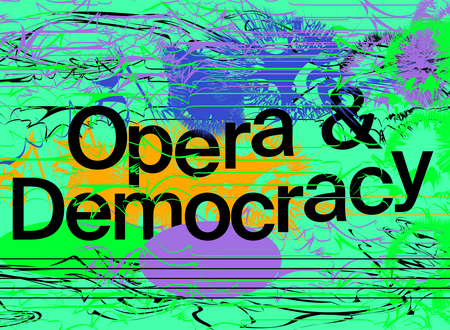
*Die Veranstaltungen finden in englischer Sprache statt*
This series commemorates the centenary of the reopening of Berlin's legendary Krolloper in 1924, one of the leading opera houses of the interwar period and today a symbol of both the renewal of opera in the 20th century and the struggle for democratic values in times of crisis. To honor this anniversary, panel discussions with international scholars and artists will explore the multifaceted history of this important institution and delve into the complex relationship between opera and democracy today. The focus will be on the democratic potential of opera and its possible contributions to a diverse and inclusive society. Topics range from aspects of the democratization of opera to questions of power and representation, new formats, casting and programming policies, audience expectations as well as to academic challenges, and opera's ability to amplify the voices of silenced or persecuted artists. Each conversation will be accompanied by concerts, sometimes world premieres, that present excerpts from rarely performed stage works, among them works by persecuted artists discovered in archives.
Click on the programs to read more about the events and please register for each event individually.
Begin: 6:30 p.m. (EST)
Location: Goethe-Institut New York, 30 Irving Place, New York, NY 10003
Welcome & Keynote: Opera and Democracy by Kai Hinrich Müller followed by a conversation about the past and present of being forced out of a country or a home and the struggles to continue artistic practices elsewhere.
Participants
Brigid Cohen, Associate Professor of Music at New York University. She has taught and published on the politics of 20th-century avant-gardes, archive studies, diaspora and cosmopolitanism theory, 20th-century German-Jewish thought, histories of genocide, and intersections of music, literature, and the visual arts. Her second monograph, Musical Migration and Imperial New York: Early Cold War Scenes, was published by University of Chicago Press in April 2022.
Gracie Golden is Artistic Freedom Initiative’s Senior Officer for Strategic Initiatives & Relocation, providing resettlement support across programs. She has dedicated her career to the intersection of art, cultural heritage, and human rights. Led by immigration and human rights attorneys, Artistic Freedom Initiative facilitates pro bono immigration representation and resettlement assistance for international artists at risk.
Michael P. Steinberg, Brown University, Barnaby Conrad and Mary Critchfield Keeney Professor of History and Music, Professor of German Studies, author of The Afterlife of Moses: Exile, Democracy, Renewal
Attendance
Begin: 7:30 p.m. (EST)
Location: Center for Jewish History, Leo Baeck Institute New York, 15 West 16th Street, New York, NY 10011
The concert introduces two German-Jewish composers in American exile: Paul Aron and Rosy Geiger-Kullmann. Aron, a protagonist of the German interwar avant-garde, founded an opera company in New York in the 1950s to popularize the works of émigrés such as Darius Milhaud, Kurt Weill, Tadeusz Kassern, and Ernst Toch through piano arrangements and English translations. One of these - his English version of Toch’s short opera Egon & Emilie - will be presented alongside exile songs by Aron. Geiger-Kullmann, a successful opera composer of the Weimar Republic, was born in Frankfurt and fled from the Nazis to New York and later to Monterey. Excerpts from her opera Columbus, written after her arrival in New York, and two stage works from her years in Germany have been reconstructed and will be performed in excerpts – a world premiere.
Program
Rosy Geiger-Kullmann: Excerpts from Ritter Lanzelot, Emanuela and Columbus (World Premiere)
Paul Aron: Zwei Lieder nach Gedichten von Christian Morgenstern, No 1. Es ist Nacht, January 26, 1950; In Memoriam … Three Songs (William Butler Yeats), No. 2. To Judd. Had I the Heaven’s, August 24, 1947; Vier Herbstlieder (Herman Hesse), No. 1. Der stille Hain, August 10, 1937, revised: July 29, 1947, No. 4. Ich habe nichts mehr zu sagen, August 7, 1947 (World Premiere)
Ernst Toch (arr. Paul Aron): Edgar & Emily
Moderation: Kai Hinrich Müller (Thomas Mann House, Los Angeles)
Musicians: Manhattan School of Music
Attendance
Begin: 6:30 p.m. (EST)
Location: Austrian Cultural Forum, 11 East 52nd Street, New York, NY 10022
Ruth Schonthal and Erich Zeisl will be presented in a concert at the Austrian Cultural Forum New York: Schonthal, who would have celebrated her 100th birthday in 2024, became an important figure in the New York music scene. She composed several operas, including Princess Maleen, which will be heard in part. Zeisl, on the other hand, lived mainly on the West Coast, where he worked for the film and various educational institutions. Excerpts from his opera fragment Hiob, based on the famous novel by Joseph Roth, will be performed next to Schonthal. Both works are largely unknown today, as are the biographies of their authors.
Program
Ruth Schonthal: Princess Maleen (Excerpts)
Erich Zeisl: Hiob (Excerpts)
Musicians: Manhattan School of Music
Introduction: Kai Hinrich Müller (Thomas Mann House, Los Angeles)
Attendance
Begin: 3:00 p.m. (EST) (doors open 2:30 p.m.)
Location: 1014 - space for ideas, 1014 Fifth Avenue, New York, NY 10028
This concert and dance performance by Miro Magloire’s New Chamber Ballet takes a leap from mid-century composers into the present. The performance starts with two dances set to music by Ursula Mamlok, who fled Germany for Ecuador in 1939 and then moved on to study in New York City in 1940. Once in the US, she became one of her generation's most renowned composers and wrote music in various genres and styles. After a conversation about the role and personal meaning of migration for their arts with German-born choreographer Miro Magloire and composer Alyssa Regent, who hails from Guadeloupe, the performance continues with music of one of Ursula Mamloks students: Pulitzer Prize winner Tania León who was born in Cuba and left in 1967 for New York. The afternoon concludes with a World Premiere ballet set to music by Alyssa Regent.
Program
Dance by New Chamber Ballet, Choreography by Miro Magloire, performed by Anabel Alpert, Megan Foley, Nicole McGinnis, Amber Neff, Rachele Perla, Kayla Schmitt.
Music composed by Ursula Mamlok, Tania León, and Alyssa Regent, performed by Weiyu Wang, soprano; Rea Abel, flute; Clara Cho, cello.
Conversation moderated by Carl Christian Bettendorf
Attendance
Participants
|
Ellie Pope, soprano |
|
Benjamin Warschawski, tenor |
|
Benjamin Sokol, baritone |
|
Weiyu Wang, soprano |
|
Elliot Roman, piano |
|
Rea Abel, flute |
|
Clara Cho, cello |
|
Anabel Alpert |
|
Megan Foley |
|
Nicole McGinnis |
|
Amber Neff |
|
Rachele Perla |
|
Kayla Schmitt |
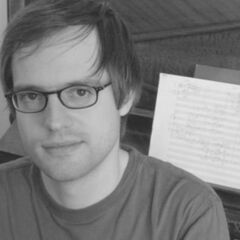
Carl Christian Bettendorf is a New York-based composer/conductor. Born in Germany, his teachers included Wolfgang Rihm and Tristan Murail, and he holds a doctorate from Columbia University. Currently, he serves on the composition faculty of Rowan University (NJ). He has received numerous awards, among them residencies in Paris, Bamberg (Germany), and at MacDowell as well as Fromm Foundation and Kaminsky Fund commissions. As a conductor, Mr. Bettendorf has worked with new-music ensembles in New York and abroad and was director of the Manhattanville and Bates College orchestras. His opera credits include Bard College and the Opéra National de Montpellier (France).
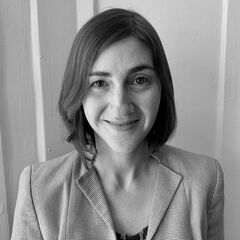
Brigid Cohen is a historical musicologist who specializes in the historiography of musics and musicians in migration. Her research and teaching examine the mass dislocation of peoples over the last two centuries, addressing conditions of empire, globalization, genocide, exile, and minoritized citizenship. This intellectual program stems from her conviction that music assumes special value under the pressure of conditions of uprooting. Music serves as a mode of self-fashioning, secures new (and old) community bonds, and brings individuals together in listening, speech, and action. It also interacts in variegated ways with the silences that emerge from troubled sites of memory.
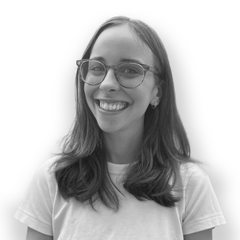
Gracie Golden serves as Artistic Freedom Initiative’s Senior Officer of Strategic Initiatives & Relocation, providing resettlement support across programs. She has dedicated her career to the intersection of art, cultural heritage, and human rights. Ms. Golden has six years’ experience coordinating initiatives for the University of Pennsylvania’s Penn Cultural Heritage Center, and has contributed to research and curatorial projects at the Smithsonian Cultural Rescue Initiative. Prior to joining AFI, Ms. Golden received an MA in anthropology from the University of Pennsylvania. She also holds a BA in anthropology and the history of art from Johns Hopkins University.
Tania León (b. Havana, Cuba) is highly regarded as a composer, conductor, educator, and advisor to arts organizations. Her orchestral work Stride, commissioned by the New York Philharmonic, was awarded the 2021 Pulitzer Prize in Music. In 2022, she was named a recipient of the 45th Annual Kennedy Center Honors for lifetime artistic achievements. In 2023, she was awarded the Michael Ludwig Nemmers Prize in Music Composition from Northwestern University. Most recently, León became the London Philharmonic Orchestra’s next Composer-in-Residence—a post she will hold for two seasons, beginning in September 2023. She will also hold Carnegie Hall’s Richard and Barbara Debs Composer’s Chair for its 2023-2024 season.
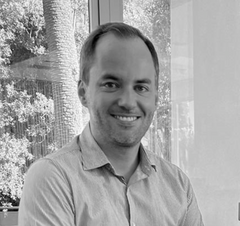
Kai Hinrich Müller is one of the emerging festival makers at the intersection of scholarship and practice. His work fosters cultural dialogues across continents and connects him with renowned institutions in Europe and the United States. He is the director of the bauhaus music festival in Berlin and the Terezín Music Academy in the former ghetto of Theresienstadt, an initiative of Musica Non Grata, for which he has curated numerous programs on artists persecuted by the Nazis. He has held several fellowships in Germany and the US, most recently at the Thomas Mann House in Los Angeles, where he initiated the transatlantic festival series Opera & Democracy. Kai studied musicology, law and business administration (PhD 2013; habilitation 2022) and teaches at the Cologne University of Music and Dance. His current research interests include Richard Wagner and the Bayreuth Circle, antisemitism in music history, musical life in the interwar and Nazi years, the ensuing period of exile in North America, as well as transatlantic opera traditions.
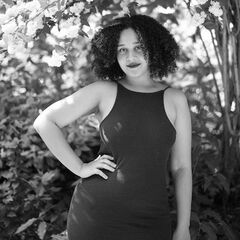
Alyssa Regent is a New York-based composer originally from the islands of Guadeloupe. She has participated in several music festivals and programs such as the 77th Composer’s Conference, String Quartet Evolution at the Banff Center (Canada), New Music on the Point and the Lucerne Music Festival (Switzerland). In 2023, she was awarded the Ascap Morton Gould Young Composer Award. She studied composition with Suzanne Farrin, David Fulmer, Marcos Balter and George Lewis and is currently pursuing a DMA at Columbia University. She is inspired by what she calls “the unseen”, seeking to evoke passions and sensations that are deeply rooted in introspection. She harvests from the ethereal, the enigmatic intersections between music and spirituality. She loves to think about music as an exploration of the spiritual and emotional dimensions of the human experience.
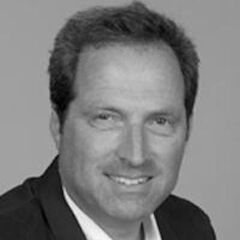
Michael P. Steinberg is the Barnaby Conrad and Mary Critchfield Keeney Professor of History, and Professor of Music and German Studies at Brown University. From 2016 to 2018 he served as president of the American Academy in Berlin. At Brown he served as the founding director of the Cogut Center for the Humanities (2005-2015) and as Vice Provost for the Arts (2015-16). His books include The Trouble with Wagner (Chicago, 2018) as well as the edited volume Makers of Jewish Modernity (Princeton, 2016; winner of the National Jewish Book Award for non-fiction); Listening to Reason: Culture, Music, and Subjectivity in 19th-Century Music (Princeton, 2004), and The Meaning of the Salzburg Festival (Cornell, 2000), of which the German edition (Ursprung und Ideologie der Salzburger Festspiele; Anton Pustet Verlag, 2000) won Austria's Victor Adler Staatspreis in 2001.
The series is initiated by the Thomas Mann House and curated by musicologist and 2023 Thomas Mann Fellow
Kai Hinrich Müller.

Student Council on "Democracy and Vulnerability" – mit Allison Lee
Online
Online Interview | 16 Uhr (PT)
Das Wende Museum, dublab radio, und das Thomas Mann House laden Sie ein zur April Folge unserer monatlichen Interviewreihe zum Thema „Democracy & Vulnerability.“ Wie sollte eine Demokratie mit ihren eigenen Schwachstellen umgehen? Wie müssen sich Demokratien entwickeln, um erfolgreich mit den weltweit zunehmenden ökologischen Krisen, geopolitischen Spannungen, wirtschaftlichen Ungleichheiten und Kulturkriegen umzugehen? Wie viel Verwundbarkeit kann eine Demokratie ertragen? Der Gast für das April-Programm ist Managing Director bei PEN America, Allison Lee.

*Diese Veranstaltung findet in englischer Sprache statt*
The Student Council consists of a team of highly engaged, talented, and diverse undergraduate and graduate students who invite prominent guest speakers to discuss topics relating to society, politics, culture, and art. In conversation with academics, journalists, politicians, and artists, the students will explore the various threats to democratic institutions and principles worldwide, as well as strategies to potentially overcome these threats.
April Speaker
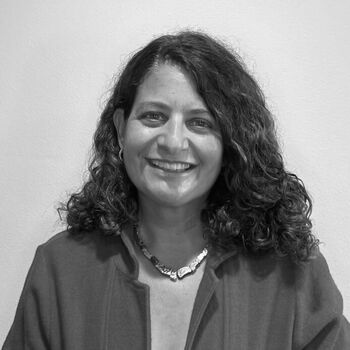
The guest speaker for our April program is Allison Lee, who serves as PEN America’s Los Angeles Director. She was the Chief Development Officer for TIME’S UP, a non-profit organization dedicated to promoting gender equity and ending sexual violence in the workplace. She has previously served as Vice President of External Affairs at Bet Tzedek Legal Services, where she worked, among other things, to launch their Rapid Response Family Immigration Project and Transgender Advocacy Program. Prior to that, Allison served for eight years as the founding Executive Director of American Jewish World Service – Southern California. Allison received her B.A. in Political Science and American Studies from Tufts University.
Watch our February interview with Triston Ezidore, member of the Culver City School Board.
You can watch previous episodes on YouTube, listen to the recordings on dublab radio, or read our students' recap on the Thomas Mann House blog.
Meet the 2024 Student Council

Sara Abrahamsson is a fourth-year student at UCLA studying Art History and French. As a culmination of her artistic and academic interest in political graphics, Sara is currently writing her senior thesis paper on the internationalist poster art of post-revolutionary Cuba. Upon graduating, she plans to continue working in museums before pursuing graduate studies in Art History or Art Conservation.
Amy Cabrales is a First-Generation fourth-year undergraduate student at UCLA, studying Sociology and the Russian Language. She is a Mexican-American, Los Angeles native born in Lynwood, California. Her career interests include cross-cultural education via museum work or language instruction and immigrant resettlement, while her academic interests include immigrant integration and self-identity across immigrant generations. She is anticipating returning to Almaty, Kazakhstan for the 2024-25 academic year to inform these interests and advance her Russian proficiency.
Elsa Coony is a fourth-year student at the University of California, Los Angeles double majoring in Global Studies and German. She has previously worked at the United States Holocaust Memorial Museum as both a docent and translator and is excited to join this year's council. In the future, she hopes to pursue a career in international development.
Biruke Dix is currently a 2nd year student at UCLA studying Applied Mathematics. He joined the Wende Student Council in 2024 and is deeply invested in the ever-changing properties of art as well as social habits. He hopes that he can create language and conversation that promotes the spread of cultural shifts and social justice.
Matthew Jones is a third-year PhD student in Claremont Graduate University’s Cultural Studies and Museum Studies program. His research currently explores how sites connected to authoritarian regimes function as pilgrimage destinations and what strategies states and institutions employ to reduce extremist attachment at these sites. He is thrilled to continue his training with the Wende Museum through this collaboration with the Thomas Mann House.
Emma Larson is a master's student at Columbia University's Harriman Institute of Russian, Eurasian, and Eastern European Studies. There, she focuses on the gender, social, and political history of Central Asia. Before starting at Columbia, Emma taught English in Kazakhstan with the Fulbright Program. She graduated from Williams College with degrees in History and Russian in 2021.
Zora Nelson is a current undergraduate student at New York University, where she is studying Harp Performance and Media, Culture, and Communication. As an east coaster born and raised in Philadelphia, Pennsylvania, she discovered the Wende Museum in the summer of 2022 and is honored to be a part of the council. With a passion for writing, Zora sees a future in storytelling to promote social justice.
Lexi Tooley is a current sophomore at the University of Pennsylvania majoring in Political Science and Art History, minoring in Chinese Language and Culture. She is originally from Los Angeles, California, and attended the Archer School for Girls. Lexi has been working with the Wende Museum for the past 2 years. She looks forward to continuing the search for truth and examining the vulnerability of democracy through this program!
Oper & Demokratie: Musica Non Grata – Silent Voices in a Noisy World
Dresden
Palais im Großen Garten | Start: 11 a.m. (MEZ)
Die transatlantische Konzert-und Gesprächsreihe Oper & Demokratie, geleitet von 2023 Thomas Mann Fellow Kai Hinrich Müller nimmt an dem Dresden Music Festival in Zusammenarbeit mit Musica non grata / Terezín Music Academy teil.

Auf den Spuren zweier weitgehend vergessener Komponistinnen, die zu Beginn des 20. Jahrhunderts im Bereich der Operette wirkten, wandelt das Matineekonzert im Palais im Großen Garten. Amélie Nikisch, die Ehefrau des berühmten Dirigenten Arthur Nikisch, war als Sängerin und Komponistin äußerst umtriebig und produktiv. Als eine der erfolgreichsten Schöpferinnen ihrer Zeit auf diesem Feld galt auch Rachel Danziger van Embden, eine Schülerin des Wagner-Biografen Jacques Hartog, deren Karriere infolge der Machtübernahme der Nationalsozialisten ein jähes Ende fand. Nikischs 1911 in Dresden uraufgeführte Operette Meine Tante, Deine Tante und Danzigers Die Dorfkomtesse von 1910, die beide sogar bis in die New York Times ein Echo fanden, erklingen erstmalig seit Jahrzehnten wieder. Moderationen erzählen die Hintergründe der Zeit und gehen mit Bezug auf die Schicksale der Familien der Komponistinnen auf die Verfolgung von Kunstschaffenden zwischen Ländern und Kontinenten sowie auf die Idee eines politischen Mandats der Künste ein: ein entdeckenswertes Programm nicht nur für Liebhaber:innen des Genres.
Teilnahme
Ort:
Palais im Großen Garten
Hauptallee 8, 01219 Dresden
Tickets:
€ 47 / 37 / 22
Weitere Informationen hier
Besetzung
Sopran: Nefeli Spyropouliu & Ekaterina Krovateva
Tenor: Bálint Németh
Bariton: Friedemann Gottschlich & Benjamin Hewat-Craw
Klavier: Alexander Breitenbach
Einstudierung: Volker Krafft
Moderation & Leitung: PD Dr. Kai Hinrich Müller
Programm
Amélie Nikisch Meine Tante, Deine Tante
Rachel Danziger van Embden Die Dorfkomtesse
(jeweils in einer gekürzten Fassung für Klavier von Kai Hinrich Müller)
Eine Veranstaltung in Kooperation mit den Dresdner Musikfestspielen, Musica non grata/Terezín Music Academy.
Student Council on "Democracy and Vulnerability" – mit Catherine Opie
Online
Online Interview | 16 Uhr (PT)
Das Wende Museum, dublab radio, und das Thomas Mann House laden Sie ein zur Mai Folge unserer monatlichen Interviewreihe zum Thema „Democracy & Vulnerability.“ Wie sollte eine Demokratie mit ihren eigenen Schwachstellen umgehen? Wie müssen sich Demokratien entwickeln, um erfolgreich mit den weltweit zunehmenden ökologischen Krisen, geopolitischen Spannungen, wirtschaftlichen Ungleichheiten und Kulturkriegen umzugehen? Wie viel Verwundbarkeit kann eine Demokratie ertragen? Der Gast für das Mai-Programm ist Künstlerin Catherine Opie.

*Diese Veranstaltung findet auf englischer Sprache statt*
The Student Council consists of a team of highly engaged, talented, and diverse undergraduate and graduate students who invite prominent guest speakers to discuss topics relating to society, politics, culture, and art. In conversation with academics, journalists, politicians, and artists, the students will explore the various threats to democratic institutions and principles worldwide, as well as strategies to potentially overcome these threats.
May Speaker
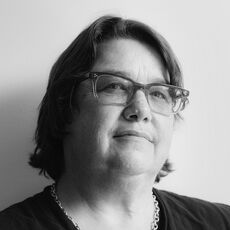
The guest speaker for our May program, Catherine Opie, is an American fine-art photographer and educator. Opie studies the connections between mainstream and marginalized society. Merging conceptual and documentary styles, she creates pieces relating to sexual identity; to the relationship between the individual and the space they inhabit; and to the tensions between the constructed American dream and the diverse realities of its citizens. Opie has had numerous solo shows, including at the Museum of Contemporary Art Los Angeles; Walker Art Center, Minneapolis; Museum of Contemporary Art, Chicago (2006); Solomon R. Guggenheim Museum, New York; Los Angeles County Museum of Art; Institute of Contemporary Art, Boston; and Hammer Museum, Los Angeles, CA. Her work has appeared in the Whitney Biennial, the Melbourne International Biennial, and SITE Santa Fe Biennial (2006).
Watch our April interview with Allison Lee, Managing Director at PEN America Los Angeles
You can watch previous episodes on YouTube, listen to the recordings on dublab radio, or read our students' recap on the Thomas Mann House blog.
Meet our 2024 Student Council
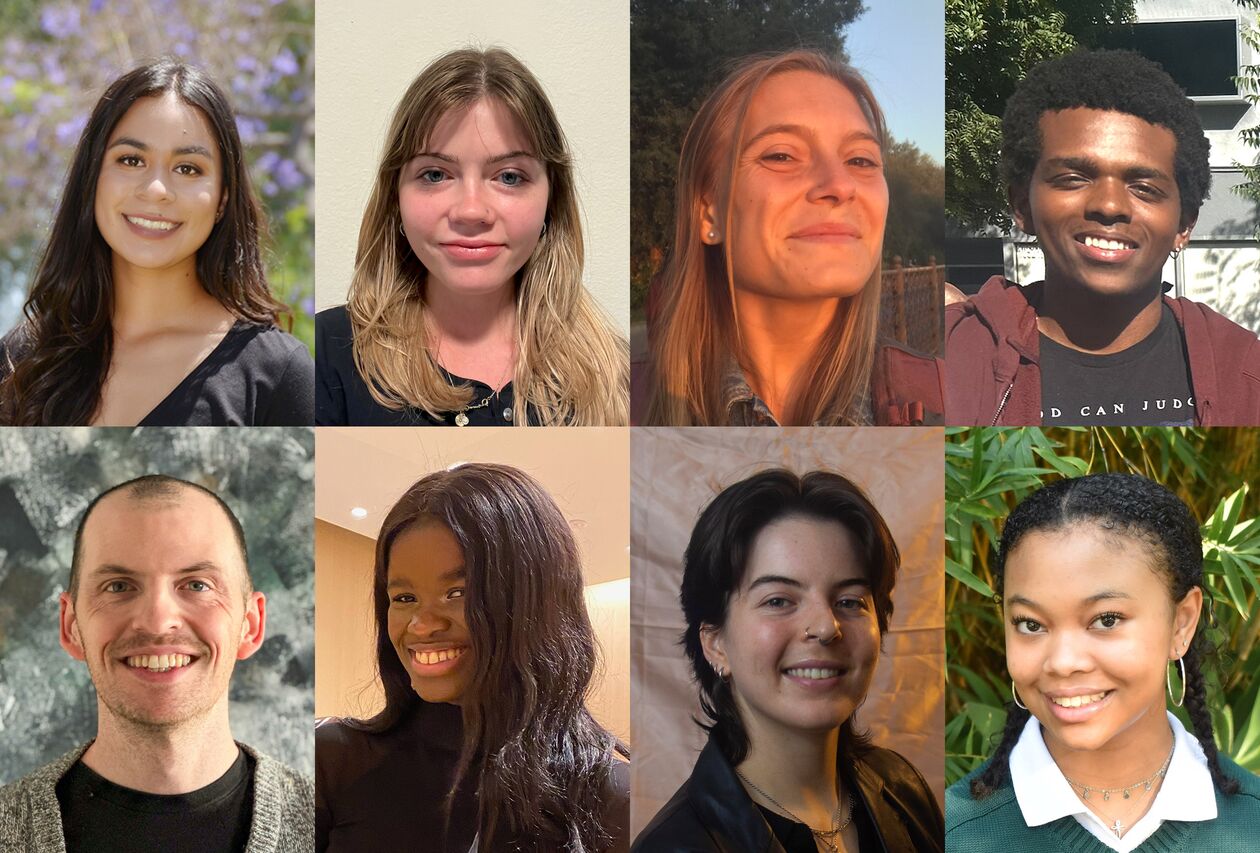
Sara Abrahamsson is a fourth-year student at UCLA studying Art History and French. As a culmination of her artistic and academic interest in political graphics, Sara is currently writing her senior thesis paper on the internationalist poster art of post-revolutionary Cuba. Upon graduating, she plans to continue working in museums before pursuing graduate studies in Art History or Art Conservation.
Amy Cabrales is a First-Generation fourth-year undergraduate student at UCLA, studying Sociology and the Russian Language. She is a Mexican-American, Los Angeles native born in Lynwood, California. Her career interests include cross-cultural education via museum work or language instruction and immigrant resettlement, while her academic interests include immigrant integration and self-identity across immigrant generations. She is anticipating returning to Almaty, Kazakhstan for the 2024-25 academic year to inform these interests and advance her Russian proficiency.
Elsa Coony is a fourth-year student at the University of California, Los Angeles double majoring in Global Studies and German. She has previously worked at the United States Holocaust Memorial Museum as both a docent and translator and is excited to join this year's council. In the future, she hopes to pursue a career in international development.
Biruke Dix is currently a 2nd year student at UCLA studying Applied Mathematics. He joined the Wende Student Council in 2024 and is deeply invested in the ever-changing properties of art as well as social habits. He hopes that he can create language and conversation that promotes the spread of cultural shifts and social justice.
Matthew Jones is a third-year PhD student in Claremont Graduate University’s Cultural Studies and Museum Studies program. His research currently explores how sites connected to authoritarian regimes function as pilgrimage destinations and what strategies states and institutions employ to reduce extremist attachment at these sites. He is thrilled to continue his training with the Wende Museum through this collaboration with the Thomas Mann House.
Emma Larson is a master's student at Columbia University's Harriman Institute of Russian, Eurasian, and Eastern European Studies. There, she focuses on the gender, social, and political history of Central Asia. Before starting at Columbia, Emma taught English in Kazakhstan with the Fulbright Program. She graduated from Williams College with degrees in History and Russian in 2021.
Zora Nelson is a current undergraduate student at New York University, where she is studying Harp Performance and Media, Culture, and Communication. As an east coaster born and raised in Philadelphia, Pennsylvania, she discovered the Wende Museum in the summer of 2022 and is honored to be a part of the council. With a passion for writing, Zora sees a future in storytelling to promote social justice.
Lexi Tooley is a current sophomore at the University of Pennsylvania majoring in Political Science and Art History, minoring in Chinese Language and Culture. She is originally from Los Angeles, California, and attended the Archer School for Girls. Lexi has been working with the Wende Museum for the past 2 years. She looks forward to continuing the search for truth and examining the vulnerability of democracy through this program!
Oper & Demokratie: Opera and the Intersections of Democracy
Zoom
11. Juni, 9 Uhr (EDT) | Online
Nehmen Sie teil an einer Diskussion zur Schnittstelle von Oper und Demokratie, veranstaltet vom Black Opera Research Network (BORN) in Zusammenarbeit mit dem Thomas Mann House im Rahmen unserer gleichnamigen transatlantischen Konzert- und Gesprächsreihe.

Diese Veranstaltung findet auf englischer Sprache statt. Weitere Informationen finden Sie hier.
Diese Veranstaltung wird vom Black Opera Research Network in Zusammenarbeit mit dem Thomas-Mann-Haus präsentiert.
"Slime Molds and Seasteads": A Conversation with Claire L. Evans and Theresia Enzensberger, moderated by Sherryl Vint
Goethe-Institut Los Angeles (1901 W 7th St Suite A/B, Los Angeles, CA 90057)
June 13, 2024, 7 p.m. (PT) | Goethe-Institut Los Angeles
Das Goethe-Institut LA und das Thomas Mann House Los Angeles laden zu einer Diskussion zwischen der Schriftstellerin und Musikerin Claire L. Evans, Herausgeberin von Terraform: Watch/Worlds/Burn, einer Anthologie mit technologischen Spekulationen aus der nahen Zukunft, und der Autorin und Thomas Mann Fellow 2024 Theresia Enzensberger. In einem moderierten Gespräch mit Sherryl Vint, Professorin und Direktorin von Speculative Fiction and Cultures of Science Programm an der University of California, Riverside werden die beiden über technologische Spekulationen, mögliche neue Zukünfte und die Politik der Innovation aus transatlantischer Perspektive diskutieren.
*Diese Veranstaltung findet in englischer Sprache statt*

In her 2022 novel Auf See (At Sea), nominated for the German Book Prize, author Theresia Enzensberger tells a story about utopian promises of new communities and happiness in the face of doom. The main character, Yada, grows up as a citizen of a floating city in the Baltic Sea. Her father, a libertarian tech entrepreneur, has designed the seaside town as a salvation from the chaos in which the rest of the world is sinking. Against the backdrop of current developments, such as “California Forever,” a plan for a future city for which a group of tech billionaires quietly purchased 60,000 rural acres of land in Solano County, utopian visions like in Enzensberger’s novel are not limited to SciFi literature anymore. Writer and artist Claire L. Evans recently published a volume titled Terraform: Watch/Worlds/Burn, an anthology of near future science fiction from VICE’s acclaimed, innovative digital speculative story destination. The book shows the predictive capacity of science fiction and seeks “new, vivid, and visceral ways to depict the future, translating the decay and anxiety that surround us into something else, something unexpected, something that burns like a beacon and upends the conventional ideas of where we’ll end up next.”
The conversation will be moderated by Sherryl Vint, Professor and Director of the Speculative Fiction and Cultures of Science program at the University of California, Riverside. Her research focuses on speculative fiction, especially relationships with science and technology. In her publications she explores how science fiction can give us tools for conceptualizing and perhaps shaping the ways that science and technology have an impact on daily life. Together they will talk about the benefits of technological speculations, potential new futures and the politics of innovation through a transatlantic literary lens.
Participants
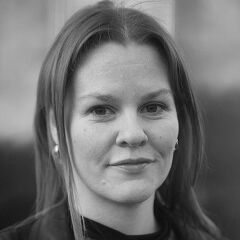
Theresia Enzensberger studied film at Bard College in New York and is a writer of prose, essays, reportage, and criticism. In 2014 she founded BLOCK Magazin which was named “best newcomer magazine” at the 2016 Lead Awards. In 2017, her first novel Blaupause (Blueprint)was published by Hanser Verlag. It was translated into several languages and awarded the Alfred Döblin Medal. Her recent novel Auf See (At Sea), published in 2022, was nominated for the German Book Prize. Enzensberger is a 2024 Thomas Mann Fellow.

Claire L. Evans is a writer and musician exploring ecology, technology, and culture. She is the singer of the Grammy-nominated pop group YACHT, co-founder of VICE’s imprint for speculative fiction, Terraform, and co-editor, with Brian Merchant, of the accompanying anthology Terraform: Watch Worlds Burn (MCD Books, 2022). Her writing has appeared in MIT Technology Review, VICE, Rhizome.org, The Verge, Pioneer Works’ Broadcast, The Guardian, the Los Angeles Review of Books, Document Journal, Eye on Design, and Aeon, among others. She is a 2024 MacDowell Fellow.

Sherryl Vint is Professor of Media and Cultural Studies and Chair of the Department of English at the University of California, Riverside, where she founded the Speculative Fictions and Cultures of Science program. She has published widely on science fiction, including, most recently, Biopolitical Futures in Twenty-First Century Speculative Fiction(2021), Science Fiction: The Essential Knowledge, and Programming the Future: Speculative Television and the End of Democracy (2022, co-authored with Jonathan Alexander). She was a founding editor of Science Fiction Film and Television and is an editor for the journal Science Fiction Studies and the book series Science in Popular Culture.
Music of Exile: Memory and transformation in the work of German and Iranian composers
Thomas Mann House (1550 N San Remo Dr, Pacific Palisades, CA 90272)

Info
Gemeinsam mit der Da Camera Society lädt das Thomas Mann House zu einem abendlichen Konzert und Gespräch ein, das sich um das Werk deutscher und iranischer Komponisten und deren durch Exilerfahrungen geprägtes musikalisches Schaffen im Kontext politischen Widerstands und sozialem Wandel dreht. Das Gespräch findet zwischen 2024 Thomas Mann Fellow Aida Baghernejad, der Musikwissenschaftlerin Joy Calico (UCLA Herb Alpert School of Music) und dem Musikkritiker Alex Ross (The New Yorker) statt und wird von dem Musikwissenschaftler Julius Reder Carlson moderiert. Im Konzert erklingen Hanns Eislers Vertonungen von Berthold Brechts Gedichten und Streichmusik von Gity Razaz, Nasim Khorassani, Adib Ghorbani und Hesam Abedini.
*Diese Veranstaltung findet in englischer Sprache statt*
The experience of exile is often characterized by states of uncertainty and the challenge of adapting to new social, cultural, and political circumstances. In offering opportunities to process and reflect on moments of intense crises, music and art play can play key roles in this experience. Realities of exile vary widely: from forced displacement due to conflict or persecution to voluntary migration in search of better opportunities. In many cases, exile entails a rupture with familiar surroundings and the need to navigate unfamiliar territories. As a means of processing these realities in times of crisis, music and art can offer hope and solidarity, as well as a space for emotional release and reflection, often fostering a sense of community and shared resilience. Across different cultures, composers and musicians have drawn inspiration from their own exile journeys, and in their music, one can often hear the echoes of longing, resilience, and hope.
What roles can art play in the exile experience? In conceiving of – and potentially realizing – a future that precludes it? In this concert-discussion, music serves as a point of departure for exploring ways in which exiled creators negotiate between rejection of and nostalgia for ‘home’; cynicism and idealism with respect to the sociopolitical future; lamentation of personal victimhood and responsibility for collective rebirth.
Bringing the experiences of 1940s-era German refugees into dialog with those of contemporary Iranian exiles, the event strives to shed new light on the experiences of individuals from two iconic communities that have found refuge in LA and to complicate narratives about the sociopolitical tragedies from which they fled.
The concert portion of the event will include selections from Hanns Eisler’s Hollywooder Liederbuch and music for strings by Gity Razaz, Nasim Khorassani, Adib Ghorbani, and Hesam Abedini. The conversation will feature music critic and 2024 Thomas Mann Fellow Aida Baghernejad, music scholar Joy Calico (UCLA Herb Alpert School of Music), and renowned music critic Alex Ross (The New Yorker). The conversation will be moderated by musicologist Julius Reder Carlson.
Programm
Hanns Eisler
Gity Razaz
Spellbound
Candenza for the Once Young
Nasim Khorassani
Growth
Adib Ghorbani
Flowers of Nostalgia (Golhay-e Ghorbat)
Hesam Abedini
O n O r W y
Hesam Abedini
'End of Shâhnâmeh' (Ferdowsi)
Adib Ghorbani
'How Are We Still Alive' (Ali Asadollahi)
SPELLBOUND - Gity Razaz
Spellbound for solo viola has the intimate quality of a reminiscing soliloquy. Textures and soundscapes weave in and out of an original melody that conjures the improvisatory lyricism of traditional Persian music. I was particularly inspired by the mourning and sul ponticello sound quality that is inherent to Persian instruments such as the Ney and Kamanche. Spellbound was commissioned by Maggie Snyder for the VIOLA2020 project in celebration of the 100th anniversary of the 19th amendment establishing women’s right to vote.
CADENZA FOR THE ONCE YOUNG - Gity Razaz
This short violin piece is about my grandparents, specifically about my grandmother. After the death of my grandfather, my grandmother (or Mamani, as we call her) moved to the U.S. to be close to her family. She and Babaee (my grandfather) were living in Iran all alone after their children immigrated to the US and Europe, so it was only natural for Mamani to come live here after her husband of 60+ years had passed. However, after a short period of five years, Mamani decided to move back to Iran as she was homesick, missed visiting Babaee’s resting place and all their memories. This piece is dedicated to their lasting love and decades of companionship.
GROWTH - Nasim Khorassani
This is a cell constructed by B, C, D, and E flat, growing and expanding. Growth has elements from Iranian traditional music influencing its form, harmony, trills, and long introverted melodies, but these are the characteristics that I discovered later.
FLOWERS OF NOSTALGIA (GOLHAY-E GHORBAT) - Adib Ghorbani
The work’s title is derived from the Iranian radio program “Flowers of Nostalgia”. This program aired throughout the 90s, broadcasting both Iranian traditional and Iranian pop music. This string quartet is inspired by the melodic content of those tunes - primarily stepwise melodies full of grace notes, vibrations and nuanced dynamics. The flowers of nostalgia now bloom here, carrying with them the scents of Iran.
O n O r W y - Hesam Abedini
I composed this relatively short string quartet piece to reconstruct my memory of the beginning of the 2009 Green Movement in Iran. In the afternoon after the presidential election, people took to the streets, and almost everywhere in Tehran, you could hear the sound of protests. I remember waking up to the whisper-like sounds of the protesters. In those moments, we all experienced a mixture of fear, uncertainty, excitement, and hope. We were all hopeful, at least at the beginning. I left Iran about eight months later, but the feeling that stayed with me was hope. Every time I remember those moments, hope is the first feeling that envelops my soul. Therefore, I chose a classical Persian modal system that, in the memory of the Iranian people, is associated with hope. Mâhur is a Dastgah (modal system) that includes a Gusheh (subsystem) named Châhâr Pâreh (four-part), based on a classical Persian poetic rhythm with a repetitive short-long syllabic pattern: Short-Short-Long-Short-Long (x4). I chose this specific Gusheh of Mâhur because of its repetitive rhythmic component. The words that are sung are meaningless, composed of short or long syllables set to the music in a way that sometimes the combination of them may sound meaningful to a Persian-speaking audience. This part imitates how, on that afternoon, we could hear the protesters from a distance at home and how excited and passionate we were to join them.
‘END OF SHÂHNÂMEH’ - Hesam Abedini
Setting of this 11th-century Shâhnâmeh text by Ferdowsi:.
They hide all the treasures
They strive yet yielding their achievements to the foe
••
No faith has remained in this world
The tongues and souls are brimming with tyranny
••
They shed blood for the worldly gains
Bad times seem halcyon
••
They seek their own profit at the expense of others
Using “religion” as their pretext
‘HOW ARE WE STILL ALIVE’ - Adib Ghorbani
Protest song from Women Life Freedom movement. Setting of a poem by Ali Asadollahi.
Teilnehmer:innen

Aida Baghernejad is a journalist who studied media studies in Berlin, Barcelona, and London. Her work focuses on how cultural products such as music, film, and social media content influence the socio-political state of the world. In addition to numerous contributions for Die Zeit, Der Tagesspiegel, Missy Magazine, and others, she also co-hosts the podcast 55 Voices for Democracy, a collaboration between the Thomas Mann House, the Goethe-Institut, dublab radio, and the Los Angeles Review of Books.

Joy Calico joined the faculty at UCLA in August 2023, where she is Professor of Musicology at the Herb Alpert School of Music and affiliated faculty in Jewish Studies. She has published monographs on two luminaries of the Austro-German diaspora in Los Angeles: Bertolt Brecht at the Opera (2008) and Arnold Schoenberg’s A Survivor from Warsaw in Postwar Europe (2014), both with University of California Press. She is a member of the international working team of the Black Opera Research Network (BORN). Her current projects include a book about operatic scene types in 20th- and 21st-century opera based on Kaija Saariaho’s L’amour de loin, and a co-edited volume entitled Childhood and the Operatic Imaginary since 1900.
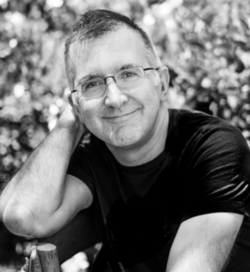
Alex Ross has been the music critic of The New Yorker since 1996. His first book, The Rest Is Noise: Listening to the Twentieth Century, won a National Book Critics Circle Award and was a finalist for the Pulitzer Prize. His second book, Listen to This, is a collection of essays. His latest book is Wagnerism: Art and Politics in the Shadow of Music, an account of Wagner’s vast cultural impact. He has written often about Thomas Mann and the émigré community in L.A. for The New Yorker. He was awarded with a MacArthur Fellowship and the Belmont Prize.
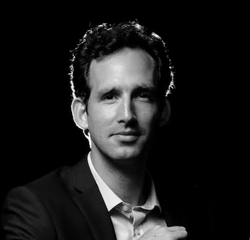
Julius Reder Carlson is Associate Professor of Music and Artistic Director of The Da Camera Society at Mount Saint Mary’s University, Los Angeles and co-founder of the Santa Monica Youth Orchestra (aka Sounds Like LA). His recent publications explore the transnational resonances of the South American Nueva Canción, particularly the work of Cold War-era singer-songwriters Atahualpa Yupanqui and Wolf Biermann.
Partner
This event is a collaboration between the Thomas Mann House Los Angeles and the The Da Camera Society.
Nourishing Justice: Jamiah Hargins & Ciani-Sophia Hoeder on Confronting Ecological Racism through Urban Farming
Thomas Mann House (1550 N San Remo Dr, Pacific Palisades, CA 90272)

Info
Das Thomas Mann House lädt zu einem Gespräch über die Schnittstelle von ökologischem Rassismus, Ernährungsgerechtigkeit und gemeinschaftlichem Empowerment in den Garten ein. Die Journalistin, Autorin und 2024 Thomas Mann Fellow Ciani-Sophia Hoeder diskutiert mit Jamiah Hargins, dem Gründer von „Crop Swap LA“ und Pionier der urbanen BIPOC-Landwirtschaft und Gemeindeentwicklung in Los Angeles.
*Diese Veranstaltung findet in englischer Sprache statt*
Teilnehmer:innen
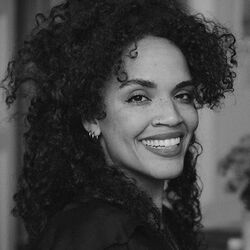
Ciani-Sophia Hoeder is a journalist and author from Berlin. She studied journalism and politics in Berlin and London. In 2019, she founded the online magazine RosaMag, which addresses a variety of challenges faced by Black individuals in German-speaking countries. In her work, Hoeder celebrates Blackness rather than problematizing it. In 2020, RosaMag was nominated for the Grimme Online Award, and in 2021, Hoeder received the Golden Blogger Award. Her debut book Wut & Böse was published with hanserblau in 2021. She is a 2024 Thomas Mann Fellow.

Jamiah Hargins is the Founder and Executive Director of Crop Swap LA. He worked as a stock and options trader in Chicago, where he also participated in a community garden. In Brazil, Hargins managed a social enterprise that leveraged rural agriculture and urban business to sustain an orphanage. Energized by the experience, and seeing first-hand what creative, mission-driven businesses can accomplish, he returned to the U.S. to study public policy at Columbia University and identify opportunities for impact. Along the way, he worked as an executive headhunter in the education field—a position that he says became excellent training for his work at building and managing Crop Swap LA.
Student Council on "Democracy and Vulnerability" – mit Ajuan Mance
Online

Info
Das Wende Museum, dublab radio, und das Thomas Mann House laden Sie ein zur Juni Folge unserer monatlichen Interviewreihe zum Thema „Democracy & Vulnerability.“ Wie sollte eine Demokratie mit ihren eigenen Schwachstellen umgehen? Wie müssen sich Demokratien entwickeln, um erfolgreich mit den weltweit zunehmenden ökologischen Krisen, geopolitischen Spannungen, wirtschaftlichen Ungleichheiten und Kulturkriegen umzugehen? Wie viel Verwundbarkeit kann eine Demokratie ertragen? Der Gast für das Juni-Programm ist Künstlerin Ajuan Mance.
*Diese Veranstaltung findet auf englischer Sprache statt*
The Student Council consists of a team of highly engaged, talented, and diverse undergraduate and graduate students who invite prominent guest speakers to discuss topics relating to society, politics, culture, and art. In conversation with academics, journalists, politicians, and artists, the students will explore the various threats to democratic institutions and principles worldwide, as well as strategies to potentially overcome these threats.
June Speaker
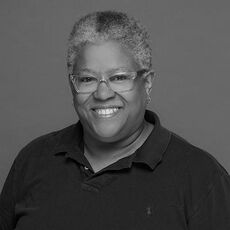
Ajuan Mance is a Professor of African American literature at Mills College in Oakland, California as well as a writer and artist. Throughout her comics and illustrations she uses the elements of humor and bright colors to explore race, gender, and power, and the people and places in which they intersect. Her work has appeared in a number of digital and print media outlets, including most recently The Women’s Review of Books, Blavity.com, BET.com, Transition Magazine, Buzzfeed.com, KQED.org, The San Francisco Chronicle, NYTimes.com, KPIX News, and Publisher’s Weekly.
Watch our May interview with internationally renowned artist and educator Catherine Opie
Der Student Council
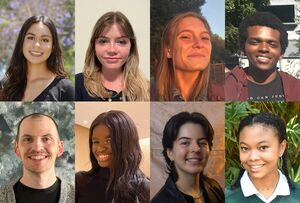
Sara Abrahamsson is a fourth-year student at UCLA studying Art History and French. As a culmination of her artistic and academic interest in political graphics, Sara is currently writing her senior thesis paper on the internationalist poster art of post-revolutionary Cuba. Upon graduating, she plans to continue working in museums before pursuing graduate studies in Art History or Art Conservation.
Amy Cabrales is a First-Generation fourth-year undergraduate student at UCLA, studying Sociology and the Russian Language. She is a Mexican-American, Los Angeles native born in Lynwood, California. Her career interests include cross-cultural education via museum work or language instruction and immigrant resettlement, while her academic interests include immigrant integration and self-identity across immigrant generations. She is anticipating returning to Almaty, Kazakhstan for the 2024-25 academic year to inform these interests and advance her Russian proficiency.
Elsa Coony is a fourth-year student at the University of California, Los Angeles double majoring in Global Studies and German. She has previously worked at the United States Holocaust Memorial Museum as both a docent and translator and is excited to join this year's council. In the future, she hopes to pursue a career in international development.
Biruke Dix is currently a 2nd year student at UCLA studying Applied Mathematics. He joined the Wende Student Council in 2024 and is deeply invested in the ever-changing properties of art as well as social habits. He hopes that he can create language and conversation that promotes the spread of cultural shifts and social justice.
Matthew Jones is a third-year PhD student in Claremont Graduate University’s Cultural Studies and Museum Studies program. His research currently explores how sites connected to authoritarian regimes function as pilgrimage destinations and what strategies states and institutions employ to reduce extremist attachment at these sites. He is thrilled to continue his training with the Wende Museum through this collaboration with the Thomas Mann House.
Emma Larson is a master's student at Columbia University's Harriman Institute of Russian, Eurasian, and Eastern European Studies. There, she focuses on the gender, social, and political history of Central Asia. Before starting at Columbia, Emma taught English in Kazakhstan with the Fulbright Program. She graduated from Williams College with degrees in History and Russian in 2021.
Zora Nelson is a current undergraduate student at New York University, where she is studying Harp Performance and Media, Culture, and Communication. As an east coaster born and raised in Philadelphia, Pennsylvania, she discovered the Wende Museum in the summer of 2022 and is honored to be a part of the council. With a passion for writing, Zora sees a future in storytelling to promote social justice.
Lexi Tooley is a current sophomore at the University of Pennsylvania majoring in Political Science and Art History, minoring in Chinese Language and Culture. She is originally from Los Angeles, California, and attended the Archer School for Girls. Lexi has been working with the Wende Museum for the past 2 years. She looks forward to continuing the search for truth and examining the vulnerability of democracy through this program!
Partner
The event series is a collaboration with the Wende Museum Culver City, dublab and the Thomas Mann House Los Angeles.


Identity and Literature: A Conversation with the authors Julia Franck and Arnon Grunberg, moderated by poet Lynne Thompson
Thomas Mann House (1550 N San Remo Dr, Pacific Palisades, CA 90272)

Info
Das Thomas Mann House Los Angeles lädt zu einem Gespräch zwischen den Autor*innen Julia Franck, Thomas Mann Fellow 2024, und Arnon Grunberg ein, moderiert von der bekannten Dichterin Lynne Thompson aus Los Angeles. Die preisgekrönten Autor*innen sprechen über Fragen der kulturellen Aneignung und Identität in der zeitgenössischen Belletristik und die Komplexität, die mit dem Schreiben von Figuren und Geschichten außerhalb des eigenen kulturellen und identitären Hintergrunds einhergeht.
*Diese Veranstaltung findet in englischer Sprache statt*
How can authors face the challenges of portraying experiences and cultures they have not personally lived, and the importance of avoiding stereotypical portrayals of their fictional characters? Do writers and their works bear responsibility for social conditions? To what extent do literature and literary writers negotiate moral convictions in their characters and stories? Does a writer have to act as a judge of good and evil and right and wrong through the choice of their character’s perspectives? The evening will provide valuable insights into how writers can navigate the delicate balance of respecting and honoring the identities of others while enriching their narratives with diverse perspectives.
Teilnehmer:innen
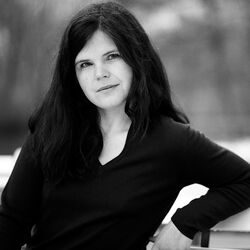
Julia Franck is an author based in Berlin. She studied philosophy, modern German literature, and Ancient American Studies at Freie Universität Berlin. Frank published her first novel, Der Neue Koch, in 1997. Her work has received numerous prizes and awards, including a residency at Villa Massimo in Rome in 2005 and the German Book Prize in 2007. Franck also writes essays on literature, film, and art and is a member of Exil-PEN and PEN Berlin, among others. In 2023 she took the position of editor for Die Andere Bibliothek. Her work has been translated into 40 languages to date. She is a 2024 Thomas Mann Fellow.
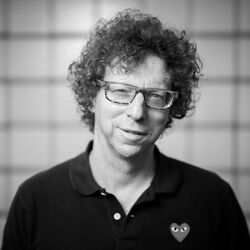
Arnon Grunberg is a Dutch novelist and reporter. After being kicked out of high school, he worked as assistant in a drugstore, as dishwasher, publisher, and playwright for an Amsterdam theater company. In 1994, at age of 23, he made his debut with the internationally acclaimed novel Blue Mondays which won him two awards: for the best and for the bestselling debut novel. Grunberg's work has been translated into thirty different languages. He writes reports, book reviews, columns and essays for Dutch media and regularly publishes essays and stories in literary magazine Hollands Maandblad. He has contributed to The New York Times, The Times of London, The Guardian, Süddeutsche Zeitung, Der Standard, Die Welt, Bookforum, among others.
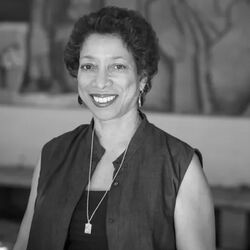
Lynne Thompson served as Los Angeles’ 4th Poet Laureate and received a Poet Laureate Fellowship from the Academy of American Poets. She is the author of four collections of poetry, Beg No Pardon, winner of the Perugia Press Prize and the Great Lakes Colleges New Writers Award; Start With A Small Guitar (What Books Press); Fretwork, winner of the 2019 Marsh Hawk Poetry Prize selected by Jane Hirshfield; and Blue on a Blue Palette, published by BOA Editions in April 2024. A Pushcart Prize and Best of the Net nominee, Thompson is the recipient of multiple awards including the George Drury Smith Award for Outstanding Achievement in Poetry, an Individual Artist Fellowship from the City of Los Angeles, the Tucson Literary Festival Poetry Prize, and the Steven Dunn Poetry Prize.
Exile and Archives in Literature and Music: Evening Reception and Conversation
Thomas Mann House (1550 N San Remo Dr, Pacific Palisades, CA 90272)

Info
Anlässlich des zweitägigen Workshops "Archives in / of Transit: Historical Perspectives from the 1930s to the Present" veranstaltet das Thomas Mann House einen Empfang, gefolgt von einer Diskussion über "Exil und Archive in Literatur und Musik“ mit den 2024 Thomas Mann Fellows und den Workshop-Teilnehmer:innen.
*Diese Veranstaltung findet in englischer Sprache statt*
The workshop "Archives in / of Transit: Historical Perspectives from the 1930s to the Present" explores new ways of thinking about archives, archival records, and other artifacts historians might use as primary sources to gain deeper insight into the history of migrants in transit and the knowledge they possessed, produced, transmitted, or lost. With a starting point in the history of Jewish migration from National Socialist-occupied areas, the workshop broadens out to investigate the experiences of refugees and migrants fleeing genocide, armed conflict, and persecution throughout the twentieth century. Specifically, it uses the idea of “lost knowledge” (Steinberg/Strobl) to ask how migrants who leave their homes try to convey both the sense of loss and the disorientation that accompany the navigation of new lived realities—from the geographical to the socio-cultural, political, and beyond—in correspondence or other materials that capture any aspect of their flight and migration.
The workshop is convened by the German Historical Institute Washington; USC Shoah Foundation; Holocaust Research Institute, Royal Holloway; University of London; Queen Mary, University of London; and the Wiener Holocaust Library, London. Partners of the event are USC Dornsife Center for Advanced Genocide Research; Thomas Mann House, Los Angeles; Villa Aurora, Los Angeles; and Feuchtwanger Memorial Library, University of Southern California, Los Angeles.
The full program of the closed workshop can be found here.
Partner
This event is convened by the German Historical Institute Washington; USC Shoah Foundation; Holocaust Research Institute, Royal Holloway; University of London; Queen Mary, University of London; Wiener Holocaust Library, London.
Student Council on "Democracy and Vulnerability" – mit „Radikale Töchter”
Los Angeles
Info
Der Student Council trifft die Radikalen Töchter zu einem sommerlichen Live-Gespräch am 18. Juli im Thomas Mann House. Seit 2019 inspirieren die Radikalen Töchter, eine Gruppe von Performance-Künstler:innen und Pädagog:innen aus Deutschland, mit ihren interaktiven Workshops zu effektiven, außergewöhnlichen Formen der politischen Beteiligung. Ihr Trainingsplan aus Aktion, Kunst und Politik soll den Funken überspringen lassen - und zeigen, wie einfach es sein kann, aktiv zu werden.
*Diese Veranstaltung findet auf englischer Sprache statt*
Climate crisis, racism, political populisms: In light of such challenges, the world needs radical ideas and new impulses for action to tackle this current political climate. Above all, courage is needed, as well as an invigorated engagement with democratic values. Where are the new visions and practices of political engagement in times of vulnerable democracies? The workshops of “Radical Daughters" offer an introduction to methods and tactics of artistic activism which support fundamental democratic values such as liberty, equality, equity, and solidarity. They propose the so-called “courage muscle training,” which aims at transforming political anger into political courage and action. Their approach encourages to make use of the diverse repertoire of artistic activism to express concerns and discomfort whilst investing in finding new ways to address them. In a conversation with the student council, they will address questions of political education, such as what politics is, how we can make democracies more resilient, and how we can be more courageous.
July Speaker
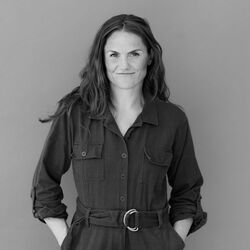
Cesy Leonard is an action artist, speaker, and founder of the “Radikale Töchter” - inspiring people through political art to act and stand up for democracy, freedom, equality, brotherhood, and sisterhood. She studied acting in Berlin and worked in film, television, and theater. Often experiencing what it meant to have to conform to a clichéd image of a woman led her to start directing her own films. Her 2012 film “Guilt - The Barbarism of Europe” awarded her various prizes, such as the Web Video Award. In 2012, she joined the artistic staff of the collective “Center for Political Beauty,” which promotes pressing political issues through their art. Seeing how art, in particular, has the power to mobilize people to act is the inspiration behind the “Radikale Töchter.” Funded by the “Bundeszentrale für politische Bildung” as a model project, the team works to strengthen democracy in the former GDR.
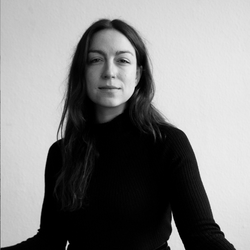
Josephin Haardt studied International Relations and Economics in Erfurt. She has been working as a project manager and managing director of the "Radical Daughters" since April 2019. This is where her interests in democracy, sisterhood, and organizational talent come together.
Vorherige Episoden
Sie können frühere Episoden auf YouTube ansehen, die Aufzeichnungen auf dublab radio anhören oder die Zusammenfassung unserer Studierenden auf dem Blog des Thomas Mann House lesen.
Der Student Council

Sara Abrahamsson studiert im vierten Jahr an der UCLA Kunstgeschichte und Französisch. Als Höhepunkt ihres künstlerischen und akademischen Interesses an politischer Grafik schreibt Sara derzeit ihre Abschlussarbeit über die internationalistische Plakatkunst des nachrevolutionären Kuba. Nach ihrem Abschluss plant sie, weiterhin in Museen zu arbeiten, bevor sie postgraduale Studien in Kunstgeschichte oder Kunstkonservierung aufnimmt.
Amy Cabrales ist eine First-Generation-Studentin im vierten Jahr an der UCLA, die Soziologie und Russisch studiert. Sie ist mexikanisch-amerikanischer Herkunft und wurde in Lynwood, Kalifornien, geboren. Ihre beruflichen Interessen umfassen interkulturelle Bildung durch Museumsarbeit oder Sprachunterricht sowie die Ansiedlung von Einwanderern. Ihre akademischen Interessen liegen in der Integration von Einwanderern und der Selbstidentität über Generationen hinweg. Sie plant, im akademischen Jahr 2024-25 nach Almaty, Kasachstan, zurückzukehren, um diese Interessen zu vertiefen und ihre Russischkenntnisse zu erweitern.
Elsa Coony studiert im vierten Jahr an der University of California, Los Angeles Global Studies und Deutsch. Sie hat bereits im United States Holocaust Memorial Museum als Führerin und Übersetzerin gearbeitet und freut sich darauf, dem diesjährigen Rat beizutreten. In der Zukunft hofft sie, eine Karriere in der internationalen Entwicklung zu verfolgen.
Biruke Dix studiert im zweiten Jahr an der UCLA angewandte Mathematik. Er trat 2024 dem Student Council bei und ist tief in die sich ständig verändernden Eigenschaften der Kunst sowie gesellschaftlicher Gewohnheiten investiert. Er hofft, Gespräche zu schaffen, die die Verbreitung kultureller Veränderungen und sozialer Gerechtigkeit fördern.
Matthew Jones ist ein Doktorand im dritten Jahr im Programm für Kulturwissenschaften und Museumsstudien der Claremont Graduate University. Seine Forschung untersucht derzeit, wie Orte, die mit autoritären Regimen verbunden sind, als Pilgerziele fungieren und welche Strategien Staaten und Institutionen anwenden, um extremistische Bindungen an diesen Orten zu verringern. Er ist begeistert, seine Ausbildung durch diese Zusammenarbeit mit dem Wende Museum fortzusetzen.
Emma Larson ist eine Masterstudentin am Harriman Institute for Russian, Eurasian, and Eastern European Studies der Columbia University. Dort konzentriert sie sich auf die Geschlechter-, Sozial- und Politikgeschichte Zentralasiens. Bevor sie an der Columbia begann, unterrichtete Emma Englisch in Kasachstan im Rahmen des Fulbright-Programms. 2021 schloss sie ihr Studium am Williams College mit Abschlüssen in Geschichte und Russisch ab.
Zora Nelson ist derzeit eine Studentin im Grundstudium an der New York University, wo sie Harfenperformance sowie Medien, Kultur und Kommunikation studiert. Als Künstlerin, die in Philadelphia, Pennsylvania, geboren und aufgewachsen ist, entdeckte sie das Wende Museum im Sommer 2022. Mit einer Leidenschaft für das Schreiben sieht Zora ihre Zukunft im Storytelling, um soziale Gerechtigkeit zu fördern.
Lexi Tooley studiert im zweiten Jahr an der University of Pennsylvania Politikwissenschaft und Kunstgeschichte mit einem Nebenfach in Chinesisch und Kultur. Sie stammt ursprünglich aus Los Angeles, Kalifornien, und besuchte die Archer School for Girls. Lexi arbeitet seit 2 Jahren mit dem Wende Museum zusammen.
Partner
The event series is a collaboration with the Wende Museum Culver City, dublab and the Thomas Mann House Los Angeles.


Mut-Muskel-Training! Zweitägiger Workshop mit „Radikale Töchter"
Los Angeles

Info
Seit 2019 inspirieren die „Radikalen Töchter”, eine Gruppe von Performancekünstler:innen und Pädagog:innen aus Deutschland, in ihren Workshops zu wirksamen, außergewöhnlichen Formen der politischen Beteiligung. Ihr Trainingskonzept aus Aktion, Kunst und Politik soll den Funken überspringen lassen - und zeigen, wie einfach es sein kann, aktiv zu werden. Das Thomas Mann House und das Goethe-Institut Los Angeles laden am 20. & 21. Juli zu einem zweitägigen interaktiven Workshop für Studierende und Organisator:innen!
*Diese Veranstaltung findet auf englischer Sprache statt*
Climate crisis, racism, political populisms: In light of such challenges, the world needs radical ideas and new impulses for action to tackle this current political climate. Above all, courage is needed, as well as an invigorated engagement with democratic values. Where are the new visions and practices of political engagement in times of vulnerable democracies? The workshops of “Radical Daughters" offer an introduction to methods and tactics of artistic activism which support fundamental democratic values such as liberty, equality, equity, and solidarity. They propose the so-called “courage muscle training,” which aims at transforming political anger into political courage and action. Their approach encourages to make use of the diverse repertoire of artistic activism to express concerns and discomfort whilst investing in finding new ways to address them.
Against the backdrop of the Thomas Mann House annual theme “Democracy & Vulnerability,” this workshop will address questions of political education, such as what politics is, how we can make democracies more resilient, and how we can be more courageous. The themes of this interactive dialogue will include the individual interests of the participants and their experiences, without lengthy lectures and seminars but rather by using public interventions, field research, and other creative approaches.
Join the Thomas Mann House and the Goethe-Institut Los Angeles for a political, creative, and activating workshop for those who want to get fitter at standing up for democracy!
Teilnehmer:innen

Cesy Leonard is an action artist, speaker, and founder of the “Radikale Töchter” - inspiring people through political art to act and stand up for democracy, freedom, equality, brotherhood, and sisterhood. She studied acting in Berlin and worked in film, television, and theater. Often experiencing what it meant to have to conform to a clichéd image of a woman led her to start directing her own films. Her 2012 film “Guilt - The Barbarism of Europe” awarded her various prizes, such as the Web Video Award. In 2012, she joined the artistic staff of the collective “Center for Political Beauty,” which promotes pressing political issues through their art. Seeing how art, in particular, has the power to mobilize people to act is the inspiration behind the “Radikale Töchter.” Funded by the “Bundeszentrale für politische Bildung” as a model project, the team works to strengthen democracy in the former GDR.

Josephin Haardt studied International Relations and Economics in Erfurt. She has been working as a project manager and managing director of the "Radical Daughters" since April 2019. This is where her interests in democracy, sisterhood, and organizational talent come together.
Partner


Listening Session & Gespräch mit Aida Baghernejad und Pendarvis Harshaw
San Francisco (657 Howard Street, San Francisco, CA 94105)
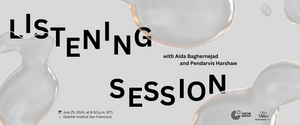
Info
Das Goethe-Institut San Francisco und das Thomas Mann House laden zu einer besonderen Listening Session zwischen der in Berlin lebenden Journalistin und Thomas Mann House Fellow 2024 Aida Baghernejad und dem in Oakland lebenden Journalisten Pendarvis Harshaw, in der sich die beiden über Popkultur und Politik, Hip-Hop und dem Gefängnissystem, den jüngsten und bevorstehenden Wahlen und dem Einfluss ihres städtischen Kontexts auf ihre journalistischen Stimmen austauschen.
Teilnehmer:innen

Aida Baghernejad is a journalist who studied media studies in Berlin, Barcelona, and London. Her work focuses on how cultural products such as music, film, and social media content influence the socio-political state of the world. In addition to numerous contributions for Die Zeit, Der Tagesspiegel, Missy Magazine, and others, she also co-hosts the podcast 55 Voices for Democracy, a collaboration between the Thomas Mann House, the Goethe-Institut, dublab radio, and the Los Angeles Review of Books.
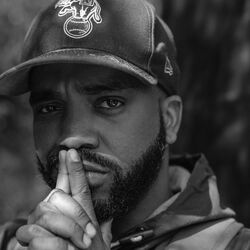
Pendarvis Harshaw is an award-winning journalist from Oakland who writes about prisons, politics, hip-hop and all things impacting his Northern Californian community. He currently works in San Francisco at KQED, where he hosts the Rightnowish podcast and is the co-editor of BayAreaHipHop.com. You can reach him at @ogpenn on all platforms.
Partner

Foreign Correspondent Unplugged: "Pop und Protest" - Aida Baghernejad, August Brown & Annett Scheffel in Conversation
Goethe-Institut Los Angeles

Info
Join us with the Goethe-Institut Los Angeles and the American Council on Germany (ACG Warburg Chapter) for a discussion between music Journalists Aida Baghernejad (2024 Thomas Mann Fellow) and August Brown (LA Times) as they discuss the powerful interplay between pop culture and the politics of protest in a conversation moderated by Annett Scheffel. The panelists will explore how pop culture has become an indispensable arena for political expression and activism, examining the paradigm shifts in music journalism and the dynamic relationship between entertainment and social change. In this discussion the journalists will negotiate how pop culture can act as an agent of hope and its role as a tool for supporting democracies in peril.
The conversation will be recorded and published on the Foreign Correspondent Unplugged podcast and in the Goethe-Institut magazine GEGENÜBER.
Teilnehmer:innen
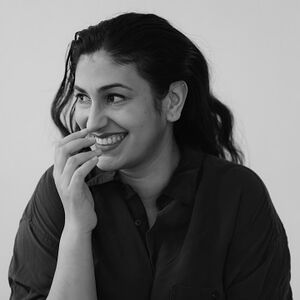
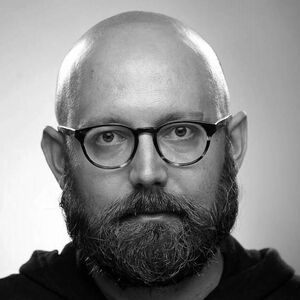
August Brown covers pop music, the music industry and nightlife policy at the Los Angeles Times.

Annett Scheffel is a culture writer, editor, speaker, and presenter based in Los Angeles and Berlin. She thinks, writes, and talks about music, film, feminism, and contemporary culture for the Süddeutsche Zeitung, Spiegel Online, Zeit Online Musikexpress, Dummy Magazin, and Deutschlandfunk — preferably at the intersection between identity, society, and politics.
Partner


Student Council on "Democracy and Vulnerability" – mit Irfan Nooruddin
Online
Info
Wie sollte eine Demokratie mit ihren eigenen Schwachstellen umgehen? Wie müssen sich Demokratien entwickeln, um erfolgreich mit den weltweit zunehmenden ökologischen Krisen, geopolitischen Spannungen, wirtschaftlichen Ungleichheiten und Kulturkriegen umzugehen? Wie viel Verwundbarkeit kann eine Demokratie ertragen?
Der Student Council besteht aus einem Team hochengagierter, talentierter und vielfältiger Bachelor- und Masterstudierender, die prominente Gastredner:innen einladen, um Themen zu Gesellschaft, Politik, Kultur und Kunst zu diskutieren. Im Gespräch mit Akademiker:innen, Journalist:innen, Politiker:innen und Künstler:innen werden die Studierenden die verschiedenen Bedrohungen für demokratische Institutionen und Prinzipien weltweit untersuchen sowie Strategien, um diese Bedrohungen möglicherweise zu überwinden.
August Speaker

Irfan Nooruddin is the Hamad bin Khalifa Al-Thani Professor of Indian Politics at Georgetown University in Washington, D.C. He studies problems of economic development and globalization, democracy and democratization, and civil conflict. His books are Coalition Politics and Economic Development (2011); Elections in Hard Times (2016, with T.E. Flores); and The Everyday Crusade (2022, with E.L. McDaniel and A.F. Shortle), all published by Cambridge University Press. Irfan received a Ph.D. in Political Science from the University of Michigan, and a B.A. in Economics and International Studies from Ohio Wesleyan University.
Vorherige Episoden
Sie können frühere Episoden auf YouTube ansehen, die Aufzeichnungen auf dublab radio anhören oder die Zusammenfassung unserer Studierenden auf dem Blog des Thomas Mann House lesen
Der Student Council

Sara Abrahamsson studiert im vierten Jahr an der UCLA Kunstgeschichte und Französisch. Als Höhepunkt ihres künstlerischen und akademischen Interesses an politischer Grafik schreibt Sara derzeit ihre Abschlussarbeit über die internationalistische Plakatkunst des nachrevolutionären Kuba. Nach ihrem Abschluss plant sie, weiterhin in Museen zu arbeiten, bevor sie postgraduale Studien in Kunstgeschichte oder Kunstkonservierung aufnimmt.
Amy Cabrales ist eine First-Generation-Studentin im vierten Jahr an der UCLA, die Soziologie und Russisch studiert. Sie ist mexikanisch-amerikanischer Herkunft und wurde in Lynwood, Kalifornien, geboren. Ihre beruflichen Interessen umfassen interkulturelle Bildung durch Museumsarbeit oder Sprachunterricht sowie die Ansiedlung von Einwanderern. Ihre akademischen Interessen liegen in der Integration von Einwanderern und der Selbstidentität über Generationen hinweg. Sie plant, im akademischen Jahr 2024-25 nach Almaty, Kasachstan, zurückzukehren, um diese Interessen zu vertiefen und ihre Russischkenntnisse zu erweitern.
Elsa Coony studiert im vierten Jahr an der University of California, Los Angeles Global Studies und Deutsch. Sie hat bereits im United States Holocaust Memorial Museum als Führerin und Übersetzerin gearbeitet und freut sich darauf, dem diesjährigen Rat beizutreten. In der Zukunft hofft sie, eine Karriere in der internationalen Entwicklung zu verfolgen.
Biruke Dix studiert im zweiten Jahr an der UCLA angewandte Mathematik. Er trat 2024 dem Student Council bei und ist tief in die sich ständig verändernden Eigenschaften der Kunst sowie gesellschaftlicher Gewohnheiten investiert. Er hofft, Gespräche zu schaffen, die die Verbreitung kultureller Veränderungen und sozialer Gerechtigkeit fördern.
Matthew Jones ist ein Doktorand im dritten Jahr im Programm für Kulturwissenschaften und Museumsstudien der Claremont Graduate University. Seine Forschung untersucht derzeit, wie Orte, die mit autoritären Regimen verbunden sind, als Pilgerziele fungieren und welche Strategien Staaten und Institutionen anwenden, um extremistische Bindungen an diesen Orten zu verringern. Er ist begeistert, seine Ausbildung durch diese Zusammenarbeit mit dem Wende Museum fortzusetzen.
Emma Larson ist eine Masterstudentin am Harriman Institute for Russian, Eurasian, and Eastern European Studies der Columbia University. Dort konzentriert sie sich auf die Geschlechter-, Sozial- und Politikgeschichte Zentralasiens. Bevor sie an der Columbia begann, unterrichtete Emma Englisch in Kasachstan im Rahmen des Fulbright-Programms. 2021 schloss sie ihr Studium am Williams College mit Abschlüssen in Geschichte und Russisch ab.
Zora Nelson ist derzeit eine Studentin im Grundstudium an der New York University, wo sie Harfenperformance sowie Medien, Kultur und Kommunikation studiert. Als Künstlerin, die in Philadelphia, Pennsylvania, geboren und aufgewachsen ist, entdeckte sie das Wende Museum im Sommer 2022. Mit einer Leidenschaft für das Schreiben sieht Zora ihre Zukunft im Storytelling, um soziale Gerechtigkeit zu fördern.
Lexi Tooley studiert im zweiten Jahr an der University of Pennsylvania Politikwissenschaft und Kunstgeschichte mit einem Nebenfach in Chinesisch und Kultur. Sie stammt ursprünglich aus Los Angeles, Kalifornien, und besuchte die Archer School for Girls. Lexi arbeitet seit 2 Jahren mit dem Wende Museum zusammen.
Partner
The event series is a collaboration with the Wende Museum Culver City, dublab and the Thomas Mann House Los Angeles.


Wanderausstellung „Democracy Will Win!" am Lafayette College
Lafayette College (317 Hamilton St, Easton, PA 18042)
Die Wanderausstellung „Thomas Mann: Democracy Will Win!", die vom Thomas Mann House konzipiert wurde, wird von August bis Oktober in den Lafayette Art Galleries des Lafayette College, Pennsylvania gezeigt.

Join the Lafayette College for the traveling exhibition "Thomas Mann: Democracy Will Win!"
The exhibition commemorates the series of lecture tours that the Nobel Laureate conducted throughout the Unites States from the late 1930s to the mid-1940s. The first of these tours began at Northwestern University, where more than 4000 people came to hear him speak about the fundamental reasons for liberal democracy. “It is a terrible spectacle when the irrational becomes popular,” Mann said in a speech at the Library of Congress in 1943, and he drew on his considerable powers of thought and expression to counter the sources of this spectacle through his confident motto: “Democracy will win.”
The like-named exhibit is divided into two parts: the first charts the changes in Mann’s political views, while the second connects Mann’s lectures tours to current political situations in both Europe and the United States.
The galleries are open Wednesdays to Sundays, 12-5 pm.
Find more information here.
Die Wanderausstellung Thomas Mann: Democracy Will Win! findet in Zusammenarbeit mit dem German Department des Lafayette College statt.
Ein Gespräch zwischen Patty Jenkins, Aida Baghernejad & Tom Zoellner: 55 Voices for Democracy Live am Thomas Mann House
Thomas Mann House (1550 N San Remo Dr, Pacific Palisades, CA 90272)
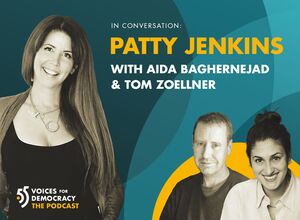
Info
Thomas Mann Fellow Aida Baghernejad und Journalist Tom Zoellner, Co-hosts des 55 Voices for Democracy Podcasts, sprechen mit der preisgekrönten Regisseurin Patty Jenkins live im Thomas Mann House!
Patty Jenkins ist eine renommierte Drehbuchautorin und Regisseurin, die vor allem für die Filme Wonder Woman (2017), Wonder Woman 1984 (2020) und ihren Oscar-prämierten Debütfilm Monster (2003) bekannt geworden ist. Jenkins wurde außerdem für ihre Regiearbeit der Pilotfolge und dem Finale der AMC-Hitserie The Killing mehrfach ausgezeichnet. Der Blockbuster-Film Wonder Woman brach 2017 an den Kinokassen alle Rekorde und wurde seinerzeit zum umsatzstärksten Live-Action-Film unter weiblicher Regie. Sie war auch die erste Frau, die damit ein Filmbudget von über 200 Millionen Dollar verwaltete. Die feministische Journalistin und Aktivistin Gloria Steinem sprach davon, dass der Film Wonder Womans „Amazonen-Ursprungsgeschichte verdeutlichte; sie beendete Krieg, statt ihn fortzusetzen; ihre Stärke war die Kommunikation in 200 Sprachen; und sie erforschte und lernte, ohne ihre Einzigartigkeit aufzugeben“.
Während ihres Fellowships am Thomas Mann House befasst sich Aida Baghernejad mit der Schnittstelle zwischen Popkultur und Politik in Zeiten multipler Krisen. Gemeinsam mit dem New York Times-Bestsellerautor und Journalisten Tom Zoellner, Co-Moderator des Thomas Mann House Podcasts 55 Voices for Democracy spricht sie über Jenkins' bahnbrechende Arbeit für Frauen im Film, Wonder Womans entscheidende Rolle für feministische Superheldenfilme, und wie die deutsche Unterhaltungsindustrie von Hollywood lernen kann.
Das Gespräch wird im Thomas Mann House vor einem Live-Publikum stattfinden. Eine Aufzeichnung des Gesprächs erscheint im Anschluss auf dem Podcast-Feed von 55 Voices for Democracy.
Teilnehmer*innen
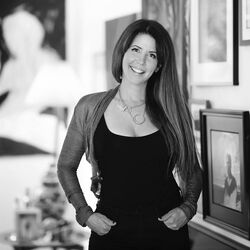
Patty Jenkins ist eine preisgekrönte Drehbuchautorin und Regisseurin, die vor allem für „Wonder Woman“ (2017), „Wonder Woman 1984“ (2020) und ihr Oscar-prämiertes Spielfilmdebüt „Monster“ (2003) bekannt ist. Jenkins führte auch Regie bei der Pilotfolge und dem Finale der AMC-Hitserie „The Killing“, für die sie mehrfach ausgezeichnet wurde. WONDER WOMAN brach Rekorde an den Kinokassen und wurde zum umsatzstärksten Live-Action-Film, bei dem eine Frau Regie führte. Sie war die erste Frau, die einen Film mit einem Budget von über 100 Millionen und über 200 Millionen inszenierte. Als Nächstes wird Jenkins mehrere Projekte selbst entwickeln und eine kleine Reihe an Filmen produzieren.

Aida Baghernejad ist Journalistin und hat in Berlin, Barcelona und London Medien- und Kommunikationswissenschaften studiert. Ihre Arbeit beschäftigt sich insbesondere mit dem Thema, was kulturelle Produkte wie Musik, Film oder Social Media Content über den sozialpolitischen Zustand der Welt berichten. Neben zahlreichen Beiträgen für u. a. Zeit Online, Der Tagesspiegel, Missy Magazin und mehr, ist sie auch Co-Host des Podcasts 55 Voices for Democracy. Aida Baghernejad befasst sich während ihres Aufenthalts in Kalifornien mit der Schnittstelle zwischen Popkultur und Politik in Zeiten multipler Krisen. Sie nimmt dabei Bezug auf die Geschichte des Thomas Mann House, der Emigrant:innen in Los Angeles und deren Echo und Bedeutung in der deutschen und US-amerikanischen Kulturlandschaft.

Tom Zoellner ist Journalist und Autor. Er ist Autor von acht Sachbüchern, darunter Uranium Train und The Heartless Stone, die zu den Bestsellern der New York Times gehören. Zoellner war ehemals Reporter beim San Francisco Chronicle und ist derzeit Politikredakteur für die Los Angeles Review of Books. Er lehrt außerdem an der Chapman University und am Dartmouth College.
Partner
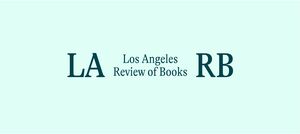
Ausstellungseröffnung: "Thomas Mann: Democracy Will Win!" – mit Eröffnungsrede von Veronika Fuechtner
Easton, Pennsylvania

Info
Open to the public | Weitere Informationen
Unsere Wanderausstellung, Thomas Mann: Democracy Will Win! wird in diesem Herbst am Lafayette College zu sehen sein. Anlässlich der Ausstellungseröffnung wird die Lehrstuhlinhaberin für Vergleichende Literaturwissenschaft und außerordentliche Professorin für Germanistik an der Dartmouth University, Veronika Fuechtner, die Max Kade Distinguished Lecture in German Studies zum Thema „The Migrations of the Mann Family“ halten.
*Die Wanderausstellung sowie Veranstaltungen im Rahmen der Ausstellung werden auf Englisch konzipiert.*
The exhibit explores the trajectory of Mann’s political development in relation to different categories such as personal background, Zeitgeist, his political commitments, actions, and responsibility. Viewers are invited to interrogate their own beliefs and paths alongside those of Thomas Mann. A series of film clips connects these different topics with ongoing debates and critical moments in contemporary history such as the 2017 Charlottesville riot, the Black Lives Matter Movement, climate change mitigation, and the global refugee and immigration crises.
The exhibition will be displayed at Lafayette College from August 28 until October 25, 2024.
Learn more about the exhibition here.
Teilnehmer*innen
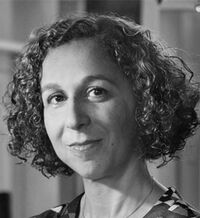
Veronika Fuechtner is Chair of Comparative Literature and Associate Professor of German Studies at Dartmouth College. She also teaches in Jewish Studies, and Women's, Gender, and Sexuality Studies. She is the author of Berlin Psychoanalytic (University of California Press, 2011) and the co-editor of Imagining Germany, Imagining Asia (with Mary Rhiel, Camden House, 2013) and A Global History of Sexual Science 1880-1960 (with Douglas E. Haynes and Ryan Jones, University of California Press, 2017). She is completing a monograph on Thomas and Heinrich Mann's Brazilian mother, Julia Mann, and the Mann family construction of race and "Germanness." Her research interests include the history of psychoanalysis and sexology, the relationship between science and culture, discourses on race and ethnicity, German-language modernism, contemporary culture, German-language film, and global cultural and scientific histories.
Partner
An event by the Max Kade Center for German Studies in collaboration with the Thomas Mann House.


"Denationalize & Kill. On the Expulsion of 'Enemies of the State' from the Democratic Legal Community after 1945“ – A Lecture and Research Tour with Thomas Mann Fellow Dieter Gosewinkel
Georgetown University, Washington DC
German History Seminar | Georgetown University
Im Rahmen seines 2024 Thomas Mann Fellowships unternimmt der Historiker und Jurist Dieter Gosewinkel eine Reise an die Amerikanische Ostküste. Bei Vorträgen und Gesprächen mit Partnern in den USA untersucht er Fragen zur Praxis des Ausschlusses von Staatsfeinden aus der demokratischen Rechtsgemeinschaft, die damit auf eine innere Verwundbarkeit der Demokratie hinweist. Professor Gosewinkel wird Institutionen wie das Queens College (CUNY), die Georgetown University und die New York University besuchen.
*Diese Veranstaltung findet in englischer Sprache statt*

During his Fellowship at the Thomas Mann House, historian Dieter Gosewinkel is conducting academic research in Los Angeles, Washington D.C., and New York for a publication project on the topic of "Denationalize & Kill. On the Expulsion of 'Enemies of the State' from the Democratic Legal Community after 1945.“ In September 2024, he will present and discuss his research with academic partners in the U.S., and conduct in-depth interviews with experts on the subject. His research concerns the vulnerability of democracy from within: the abandonment of its constitutional core in favor of a hoped-for gain in security. To what extent does the commitment to the law distinguish democracies from dictatorships in the fight against "enemies of the state?" The United States, the oldest republican constitutional state, serves as the world's most important model for this.
Attendance
By Invitation only.
Teilnehmer*innen
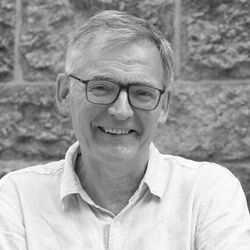
Dieter Gosewinkel ist Historiker und Jurist mit den Forschungsschwerpunkten Moderne Geschichte Europas sowie Geschichte der Staatsbürgerschaft, der Zivilgesellschaft, des Staatsrechts und des Europadenkens. Von 2011 bis 2021 war er Co-Direktor des Forschungsbereichs „Center for Global Constitutionalism” am Wissenschaftszentrum Berlin für Sozialforschung. Er ist aktuell Senior Research Fellow am Hamburger Institut für Sozialforschung. Darüber hinaus war er Fellow u. a. am European University Institute Florence, dem Institut d’Études Avancées de Paris und an der University of Oxford. Er lehrte u. a. an der Freien Universität Berlin und der Sciences Po, Paris.
"Denationalize & Kill. On the Expulsion of 'Enemies of the State' from the Democratic Legal Community after 1945“ – A Lecture and Research Tour with Thomas Mann Fellow Dieter Gosewinkel
Queens College, NY
Queens College | City University of New York
Im Rahmen seines 2024 Thomas Mann Fellowships unternimmt der Historiker und Jurist Dieter Gosewinkel eine Reise an die Amerikanische Ostküste. Bei Vorträgen und Gesprächen mit Partnern in den USA untersucht er Fragen zur Praxis des Ausschlusses von Staatsfeinden aus der demokratischen Rechtsgemeinschaft, die damit auf eine innere Verwundbarkeit der Demokratie hinweist. Professor Gosewinkel wird Institutionen wie das Queens College (CUNY), die Georgetown University und die New York University besuchen.
*Diese Veranstaltung findet in englischer Sprache statt*

During his Fellowship at the Thomas Mann House, historian Dieter Gosewinkel is conducting academic research in Los Angeles, Washington D.C., and New York for a publication project on the topic of "Denationalize & Kill. On the Expulsion of 'Enemies of the State' from the Democratic Legal Community after 1945.“ In September 2024, he will present and discuss his research with academic partners in the U.S., and conduct in-depth interviews with experts on the subject. His research concerns the vulnerability of democracy from within: the abandonment of its constitutional core in favor of a hoped-for gain in security. To what extent does the commitment to the law distinguish democracies from dictatorships in the fight against "enemies of the state?" The United States, the oldest republican constitutional state, serves as the world's most important model for this.
Attendance
By Invitation only.
Teilnehmer*innen

Dieter Gosewinkel ist Historiker und Jurist mit den Forschungsschwerpunkten Moderne Geschichte Europas sowie Geschichte der Staatsbürgerschaft, der Zivilgesellschaft, des Staatsrechts und des Europadenkens. Von 2011 bis 2021 war er Co-Direktor des Forschungsbereichs „Center for Global Constitutionalism” am Wissenschaftszentrum Berlin für Sozialforschung. Er ist aktuell Senior Research Fellow am Hamburger Institut für Sozialforschung. Darüber hinaus war er Fellow u. a. am European University Institute Florence, dem Institut d’Études Avancées de Paris und an der University of Oxford. Er lehrte u. a. an der Freien Universität Berlin und der Sciences Po, Paris.
"Denationalize & Kill. On the Expulsion of 'Enemies of the State' from the Democratic Legal Community after 1945“ – A Lecture and Research Tour with Thomas Mann Fellow Dieter Gosewinkel
New York University
Law School | New York University
Im Rahmen seines 2024 Thomas Mann Fellowships unternimmt der Historiker und Jurist Dieter Gosewinkel eine Reise an die Amerikanische Ostküste. Bei Vorträgen und Gesprächen mit Partnern in den USA untersucht er Fragen zur Praxis des Ausschlusses von Staatsfeinden aus der demokratischen Rechtsgemeinschaft, die damit auf eine innere Verwundbarkeit der Demokratie hinweist. Professor Gosewinkel wird Institutionen wie das Queens College (CUNY), die Georgetown University und die New York University besuchen.
*Diese Veranstaltung findet in englischer Sprache statt*

During his Fellowship at the Thomas Mann House, historian Dieter Gosewinkel is conducting academic research in Los Angeles, Washington D.C., and New York for a publication project on the topic of "Denationalize & Kill. On the Expulsion of 'Enemies of the State' from the Democratic Legal Community after 1945.“ In September 2024, he will present and discuss his research with academic partners in the U.S., and conduct in-depth interviews with experts on the subject. His research concerns the vulnerability of democracy from within: the abandonment of its constitutional core in favor of a hoped-for gain in security. To what extent does the commitment to the law distinguish democracies from dictatorships in the fight against "enemies of the state?" The United States, the oldest republican constitutional state, serves as the world's most important model for this.
Attendance
By Invitation only.
Teilnehmer*innen

Dieter Gosewinkel ist Historiker und Jurist mit den Forschungsschwerpunkten Moderne Geschichte Europas sowie Geschichte der Staatsbürgerschaft, der Zivilgesellschaft, des Staatsrechts und des Europadenkens. Von 2011 bis 2021 war er Co-Direktor des Forschungsbereichs „Center for Global Constitutionalism” am Wissenschaftszentrum Berlin für Sozialforschung. Er ist aktuell Senior Research Fellow am Hamburger Institut für Sozialforschung. Darüber hinaus war er Fellow u. a. am European University Institute Florence, dem Institut d’Études Avancées de Paris und an der University of Oxford. Er lehrte u. a. an der Freien Universität Berlin und der Sciences Po, Paris.
Seminarvortrag mit Johannes Gerschewski an der Tulane University: Murphy Seminar in Political Science
Tulane University (6823 St. Charles Avenue New Orleans, LA 70118)

Info
Room #210, McKeever, LBC | Tulane University
Im Rahmen seines 2024 Thomas Mann Fellowships hält Johannes Geschewski einen Seminarvortrag zu seinem jüngsten Buch, The Two Logics of Autocratic Rule (2023), am Murphy Seminar in Political Science, Tulane University.
*Diese Veranstaltung findet in englischer Sprache statt*
Teilnehmer*innen
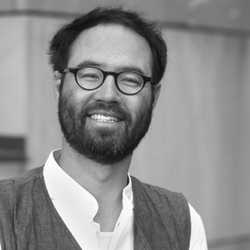
Johannes Gerschewski ist wissenschaftlicher Mitarbeiter am Wissenschaftszentrum Berlin für Sozialforschung und koordiniert die Arbeit des Theorienetzwerks am Exzellenzcluster „Contestations of the Liberal Script (SCRIPTS)“. Seine wissenschaftlichen Arbeiten wurden unter anderem im American Political Science Review, Perspectives on Politics, und Comparative Political Studies publiziert. Sein Buch zu The Two Logics of Autocratic Ruleerschien im April 2023 bei Cambridge University Press.
Partner
Student Council on "Democracy and Vulnerability" – mit John E. Echohawk
Online

Info
Das Wende Museum, dublab radio, und das Thomas Mann House laden Sie ein zur September Folge unserer monatlichen Interviewreihe zum Thema „Democracy & Vulnerability.“ Wie sollte eine Demokratie mit ihren eigenen Schwachstellen umgehen? Wie müssen sich Demokratien entwickeln, um erfolgreich mit den weltweit zunehmenden ökologischen Krisen, geopolitischen Spannungen, wirtschaftlichen Ungleichheiten und Kulturkriegen umzugehen? Wie viel Verwundbarkeit kann eine Demokratie ertragen? Der Gast für das September-Programm ist der Geschäftsführer für die Native American Rights Fund, John E. Echohawk.
September Speaker
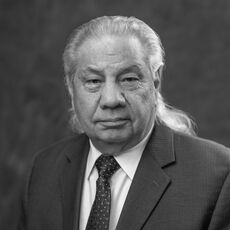
The guest speaker for our September program is John E. Echohawk, Pawnee, the Executive Director of the Native American Rights Fund. He was the first graduate of the University of New Mexico’s special program to train Indian lawyers and was a founding member of the American Indian Law Students Association while in law school. John has been with NARF since its inception in 1970, having served continuously as Executive Director since 1977. He has been recognized as one of the 100 most influential lawyers in America by the National Law Journal and has received numerous service awards and other recognition for his leadership in the Indian law field including the 2023 Thurgood Marshall Award from the American Bar Association. He serves on the Boards of the Association on American Indian Affairs, the Indigenous Language Institute, the Natural Resources Defense Council, the Grand Canyon Trust, the Native Ways Federation, the Water Foundation, the Keystone Policy Center, and the National Center for American Indian Enterprise Development.
Vorherige Episoden
Watch our August interview with Professor of Indian Politics at Georgetown University, Irfan Nooruddin.
You can watch previous episodes on YouTube, listen to the recordings on dublab radio, or read our students' recap on the Thomas Mann House blog.
Meet our 2024 Student Council

Sara Abrahamsson is a fourth-year student at UCLA studying Art History and French. As a culmination of her artistic and academic interest in political graphics, Sara is currently writing her senior thesis paper on the internationalist poster art of post-revolutionary Cuba. Upon graduating, she plans to continue working in museums before pursuing graduate studies in Art History or Art Conservation.
Amy Cabrales is a First-Generation fourth-year undergraduate student at UCLA, studying Sociology and the Russian Language. She is a Mexican-American, Los Angeles native born in Lynwood, California. Her career interests include cross-cultural education via museum work or language instruction and immigrant resettlement, while her academic interests include immigrant integration and self-identity across immigrant generations. She is anticipating returning to Almaty, Kazakhstan for the 2024-25 academic year to inform these interests and advance her Russian proficiency.
Elsa Coony is a fourth-year student at the University of California, Los Angeles double majoring in Global Studies and German. She has previously worked at the United States Holocaust Memorial Museum as both a docent and translator and is excited to join this year's council. In the future, she hopes to pursue a career in international development.
Biruke Dix is currently a 2nd year student at UCLA studying Applied Mathematics. He joined the Wende Student Council in 2024 and is deeply invested in the ever-changing properties of art as well as social habits. He hopes that he can create language and conversation that promotes the spread of cultural shifts and social justice.
Matthew Jones is a third-year PhD student in Claremont Graduate University’s Cultural Studies and Museum Studies program. His research currently explores how sites connected to authoritarian regimes function as pilgrimage destinations and what strategies states and institutions employ to reduce extremist attachment at these sites. He is thrilled to continue his training with the Wende Museum through this collaboration with the Thomas Mann House.
Emma Larson is a master's student at Columbia University's Harriman Institute of Russian, Eurasian, and Eastern European Studies. There, she focuses on the gender, social, and political history of Central Asia. Before starting at Columbia, Emma taught English in Kazakhstan with the Fulbright Program. She graduated from Williams College with degrees in History and Russian in 2021.
Zora Nelson is a current undergraduate student at New York University, where she is studying Harp Performance and Media, Culture, and Communication. As an east coaster born and raised in Philadelphia, Pennsylvania, she discovered the Wende Museum in the summer of 2022 and is honored to be a part of the council. With a passion for writing, Zora sees a future in storytelling to promote social justice.
Lexi Tooley is a current sophomore at the University of Pennsylvania majoring in Political Science and Art History, minoring in Chinese Language and Culture. She is originally from Los Angeles, California, and attended the Archer School for Girls. Lexi has been working with the Wende Museum for the past 2 years. She looks forward to continuing the search for truth and examining the vulnerability of democracy through this program!
Partner
The event series is a collaboration with the Wende Museum Culver City, dublab and the Thomas Mann House Los Angeles.


Xiu Xiu im Gespräch mit Aida Baghernejad
dublab studios (1035 W 24th St, Los Angeles, CA 90007)

Info
Das Thomas Mann House lädt in Zusammenarbeit mit dublab studios zu einer besonderen Listening Session zwischen Jamie Stewart der bekannten Band Xiu Xiu und der Musikjournalistin und Thomas Mann House Fellow 2024 Aida Baghernejad ein.
Xiu Xiu ist eine experimentelle Band, die 2002 von Jamie Stewart in San Jose, Kalifornien, gegründet wurde. Die Musik der Band zeichnet sich durch ihren intensiven emotionalen Inhalt aus und vermischt Elemente von Post-Punk, Noise-Rock, experimentellem Pop und Industriejazz. Xiu Xiu ist bekannt für ihre rohen und oft konfrontativen Texte, die Themen wie Trauma, Verzweiflung, Liebe und Politik behandeln. Der Sound der Band ist einzigartig und umfasst oft unkonventionelle Songstrukturen, dissonante Melodien und eine breite Palette an Instrumentierung, darunter Elektronik, Streicher und Percussion. Ihr Stil lässt sich als herausfordernd und grenzenüberschreitend beschreiben, wobei oft harscher Lärm mit Momenten zarter Schönheit kontrastiert wird. Die Arbeit von Xiu Xiu ist auch durch ihre kollaborative Natur gekennzeichnet, wobei im Laufe der Jahre verschiedene Musiker beigetragen haben, aber Jamie Stewart ist die konstante kreative Kraft hinter dem Projekt geblieben. Die produktive Output der Band umfasst zahlreiche Alben, EPs und Kollaborationen, die ihren sich entwickelnden und experimentellen Ansatz zur Musik widerspiegeln. Derzeit besteht die Besetzung aus den Multiinstrumentalisten Stewart, Angela Seo und dem Perkussionisten David Kendrick. Der Name der Band stammt aus dem chinesischen Film Xiu Xiu: The Sent Down Girl, der laut Stewart den Sound ihrer Musik beeinflusst hat.
Participants

Aida Baghernejad ist Journalistin und hat in Berlin, Barcelona und London Medien- und Kommunikationswissenschaften studiert. Ihre Arbeit beschäftigt sich insbesondere mit dem Thema, was kulturelle Produkte wie Musik, Film oder Social Media Content über den sozialpolitischen Zustand der Welt berichten. Neben zahlreichen Beiträgen für u. a. Zeit Online, Der Tagesspiegel, Missy Magazin und mehr, ist sie auch Co-Host des Podcasts 55 Voices for Democracy, eine Kollaboration zwischen dem Thomas Mann House und Los Angeles Review of Books.
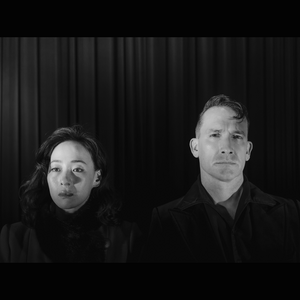
Jamie Stewart ist ein amerikanischer Musiker und Schriftsteller, der vor allem als Hauptautor, Performer und Tontechniker der experimentellen Band Xiu Xiu bekannt ist.
Partner
An event by the Thomas Mann House Los Angeles in Collaboration with dublab studios.

Darius Milhaud: All the Musics of the World
Brown University, Grant Recital Hall (105 Benevolent St, Providence, RI 02906, United States)
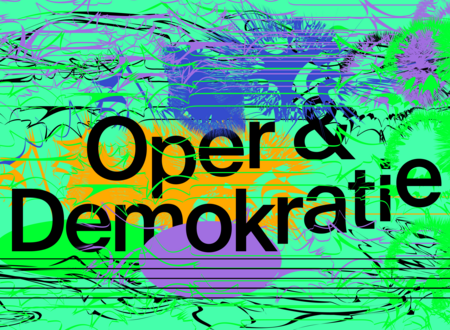
Info
DARIUS MILHAUD: ALL THE MUSICS OF THE WORLD erinnert an den 50. Todestag des Komponisten Darius Milhaud. Gesponsert vom Scheuer Fund for Judaic Studies, Ruth and Joseph Moskow Endowment in Judaic Studies. Zu den Sponsoren gehören das Brown Department of Music and German Studies sowie die Rhode Island School of Design und der Neue Musikverein Berlin. Die Veranstaltung wird co-präsentiert vom Thomas Mann House, Los Angeles, als Teil unserer Gesprächs-und Konzertreihe Oper & Demokratie.
Der Schwerpunkt wird auf der Oper Esther de Carpentras liegen, die auf einem Bühnenstück aus dem 17. Jahrhundert über die biblische Heldin basiert. Die Veranstaltung beginnt mit einer Podiumsdiskussion über Milhauds Musik, Leben und Identität, gefolgt von einer Videoanimation, die Esther de Carpentras interpretiert. Sie endet mit einem Kammermusik-Konzert, das Auszüge aus der Oper sowie andere Kompositionen umfasst.
Programm
The Brown panel discussion features Gayle Murchison (William and Mary College), Edwin Seroussi (Hebrew University of Jerusalem and Dartmouth College), and Samuel Torjman Thomas (City University of New York, Hunter and John Jay Colleges), and is chaired by Katharina Galor (Brown University). Questions of Jewish identity accompany the issue of how Milhaud’s music shaped the musical landscapes of Germany, France, and the USA. It engages questions of antisemitism, racism, and gender; of Esther as a proto-feminist; Weimar Germany’s fertile ground for modernist music; the sudden shift towards outlawing “Jewish” and “Black” music, art, and lives in the context of Nazi Germany; the impact of American jazz and culture on Milhaud; the relationship between liturgical music and Milhaud’s work; the dialogue between Ashkenazi and Sephardi, between European and Middle Eastern liturgies; between Jews and Christians; the parallels between cantorial music and jazz; and finally Milhaud’s musical and artistic legacy internationally.
A short film Stalk by renowned animation artist Steven Subotnick (Rhode Island School of Design) interpreting Esther de Carpentras, has been created especially for the 50th anniversary of Milhaud's death. It examines the opera’s biblical, medieval, and modern heritage from a contemporary perspective. The screening will be introduced by Katharina Galor (Brown University).
Light refreshments will be served.
In collaboration with Brown pianist Saleem Ashkar, and violist Consuelo Sherba (Department of Music, Brown University), Berlin-based pianist Michal Friedländer (Neuer Musikverein Berlin) is in charge of all musical aspects of the production. Performers include mezzo-soprano Hagar Sharvit (Neuer Musikverein Berlin), tenor Daniel McGrew, violinist Lois Finkel (Brown University), violonist Mina Lavcheva (Rhode Island Philharmonic), cellist Daniel Harp (Brown University), and pianist Angeline Sun (Brown University). The program includes La Creation du Monde, excerpts from Milhaud's Esther de Carpentras, and his famous Scaramouche.
Partner
Eine Veranstaltung des Programms für Judaistische Studien an der Brown University, die gemeinsam mit dem Thomas Mann Haus in Los Angeles präsentiert wird. Gesponsert vom Scheuer Fund for Judaic Studies und der Ruth And Joseph Moskow Endowment in Judaic Studies an der Brown University. Mitveranstaltet von der Abteilung für Musik, dem Center for Middle East Studies, der Abteilung für Germanistik, der Abteilung für Französisch und Frankophone Studien, der Abteilung für Religionswissenschaften, dem Büro der Seelsorger und des religiösen Lebens an der Brown University, der Rhode Island School of Design, dem Neuer Musikverein Berlin, der Association des amis de Darius Milhaud und den amis de la synagogue de Cavaillon.

Spatial Hour series mit Ulrike Klinger: Generative AI, Social Media, and the Super Election Year of 2024
University of California, Santa Barbara (Phelps 3512, CA 93106-4060)

Info
Öffentlich zugängliche Werkzeuge wie ChatGPT, Dall.E oder Midjourney ermöglichen es Internetnutzern, Texte und Bilder aus Eingabeaufforderungen zu erstellen, ohne Programmierkenntnisse oder Expertenwissen zu haben. Sie erweitern auch das strategische Arsenal politischer Kampagnen, indem sie beispielsweise günstige visuelle Inhalte ohne Urheberrechtsprobleme bereitstellen. In einer zunehmend visuellen Kampagnenumgebung auf Plattformen wie Instagram oder TikTok nutzen Politiker und politische Parteien diese Bilder, um ihre Ideologien zu veranschaulichen – und möglicherweise, um Desinformation zu erzeugen und zu verbreiten.
Wie bei vielen Technologien zuvor wird der Aufstieg der generativen KI von heftigen öffentlichen Debatten begleitet, die sich zwischen „Glanz“ und „Untergang“ bewegen, mit verschiedenen dichotomischen Vorhersagen, die von existenziellen Ängsten bis hin zu praktischen Bedenken reichen. In Bezug auf Wahlkampagnen kommt die KI in Zeiten des demokratischen Rückschritts und einer epistemischen Krise, was Sorgen über die Zukunft öffentlicher Sphären und die Wahrnehmung einer gemeinsamen Realität durch die Bürger schürt.
Können die weit verbreiteten KI-Tools, in Kombination mit der (bisher) nahezu unregulierten Verteilungsmacht der sozialen Medien, den perfekten Sturm entfachen – besonders in einem Jahr, in dem mehr als die Hälfte der Weltbevölkerung zu Wahlen in über 60 Ländern aufgerufen wurde?
Teilnehmerin
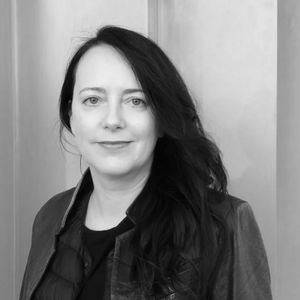
Ulrike Klinger ist Kommunikationswissenschaftlerin und seit 2020 Inhaberin des Lehrstuhls für Digitale Demokratie sowie Direktoriumsmitglied der European New School of Digital Studies an der Europa-Universität Viadrina in Frankfurt/Oder. Sie ist assoziierte Forscherin am Weizenbaum Institut für die Vernetzte Gesellschaft in Berlin, an dem sie bis 2020 die Forschungsgruppe „Nachrichten, Kampagnen und die Rationalität öffentlicher Diskurse“ leitete. Sie forscht zu digitaler politischer Kommunikation, Technologie und Macht und der Transformation digitaler Öffentlichkeiten.
Partner
Elections 2024: Freedoms and Flashpoints - Elections Around the Globe in 2024
Bunche Hall, UCLA (11282 Portola Plaza, Los Angeles, CA 90095, USA)

Info
Im Rahmen der Democracy, Freedom and Truth Series des UCLA International Institute findet anlässlich der Wahlen 2024 die Paneldiskussion Freedoms and Flashpoints: Elections Around the Globe in 2024 statt, an der Thomas Mann Fellow Ulrike Klinger als Panelist teilnimmt.
Vier Podiumsteilnehmer werden jeweils kurz über wichtige Wahlen in Indien, Mexiko, Lateinamerika und der Europäischen Union sprechen und die Themen, die diese Wahlen in den Vordergrund gerückt haben. Anschließend wird das Publikum eingeladen, an einer größeren Diskussion teilzunehmen und zu überlegen, was diese und andere Wahlherde über die derzeitige Verschiebung der Weltordnung im Vorfeld der US-Präsidentschaftswahl im November 2024 offenbaren.
Teilnehmer:innen
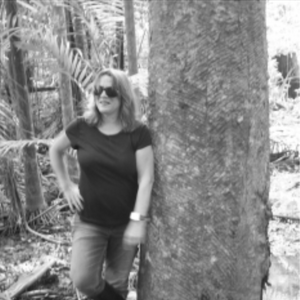
Susanna Hecht hat akademische Rollen an der Luskin School of Public Affairs und dem Institute of the Environment and Sustainability an der UCLA. Sie ist außerdem Direktorin des Centers for Brazilian Studies am Latin American Institute. Sie spricht mehrere Sprachen und ihre Veröffentlichungen konzentrieren sich auf weitreichende Themen wie Migration, Urbanisierung, den Amazonas und natürliche Ressourcen in Südamerika.

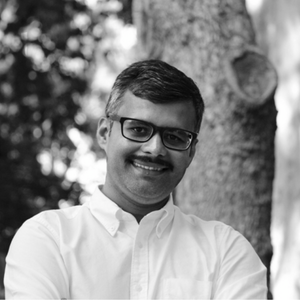
Tejas Parasher, Assistant Professor für politische Theorie, hat eine gemeinsame Professur im Department of Political Science und dem International Institute an der UCLA. Er ist Autor von Radical Democracy in Modern Indian Political Thought (Cambridge, 2023). Seine Forschung untersucht die politische Philosophie der kollektiven Selbstbestimmung, politische Repräsentation und Staatsbürgerschaft.

Gaspar Rivera-Salgado ist Direktor des UCLA Center for Mexican Studies und Projektleiter am UCLA Labor Center, wo er Mitglied der Kernfakultät im UCLA-Programm für Arbeitsstudien ist. Er leitet die Global Labor Initiative mit einem Schwerpunkt auf grenzüberschreitenden, arbeiter-zu-arbeiter Kooperationen zwischen den USA, Mexiko und Kanada.
Partner
Die Veranstaltung ist eine Zusammenarbeit von dem UCLA International Institute und dem UCLA Department of Education & Information Science

Rethinking Democracy: Megatrends and Their Challenges in Germany and Beyond
Online

Info
Anlässlich der Ausstellung Thomas Mann: Democracy Will Win! am Lafayette College wird Thomas Mann Fellow 2024, Politikwissenschaftlerin Andrea Römmele, einen Vortrag über Demokratie, Megatrends und ihre Herausforderungen aus transatlantischer Sicht halten.
Megatrends prägen unsere Gesellschaften: Klimawandel, Urbanisierung, Digitalisierung und Migration, um nur einige zu nennen. Welche Herausforderungen stellen diese Megatrends für die heutigen Demokratien dar? Wie können demokratische Regierungen ihnen begegnen? Andrea Römmele konzentriert sich auf Deutschland, um zu analysieren, wie die aktuellen politischen Parteien mit diesen Herausforderungen umgehen. Wie lässt sich die wachsende Unterstützung für die rechtspopulistische Alternative für Deutschland (AfD) erklären, und gibt es Parallelen zu den Vereinigten Staaten?
Teilnehmerin

Andrea Römmele ist Professorin für politische Kommunikation sowie Dekanin und Vizepräsidentin an der Hertie School in Berlin. Sie hat einen Master-Abschluss der San Francisco State University, wurde in Heidelberg promoviert und an der Freien Universität Berlin habilitiert. Ihre Forschungsinteressen liegen im Bereich der digitalen Demokratie, Wahlen sowie Wahlkämpfe und Parteien. Eines ihrer zentralen Anliegen ist die Vermittlung zwischen Wissenschaft und Praxis. Eines ihrer aktuellen Projekte hierzu ist die gemeinsam mit der ARD entwickelte „Demokratie-Reportage”, die sie selbst moderiert.
Partner
Oper & Demokratie: bauhaus music 2024
the temporary bauhaus-archiv (Knesebeckstraße 1, 10623 Berlin)

Info
Freiheit – diesem hochaktuellen Thema widmet sich „Bauhaus Music 2024“. Mit dem Schwerpunkt auf Exil erkundet das dreitägige Festival die künstlerischen und politischen Haltungen oder Ausdrucksformen von damals bis heute. In moderierten Konzerten sind dabei unter anderem Werke von Arnold Schönberg, Kurt Schwitters, Johann Sebastian Bach, Béla Bartók, Alban Berg, Stefan Wolpe, Cathy Milliken und auch Ruth Crawford Seeger zu hören. Zahlreiche Künstler*innen, darunter die bekannten Solist*innen Claudia Barainsky, Kolja Blacher, Gunnar Brandt-Sigurdsson oder Jocelyn B. Smith, und das Deutsche Kammerorchester Berlin kommen an drei Tagen zusammen, um gemeinsam dem musikalischen Leben und Schaffen am Bauhaus nachzuspüren.
Programm
Klavier: Michal Friedländer
Bariton: Noam Heinz
Sopran: Alma Sadé
Klavier: Cathy Milliken
Gesang: Jocelyn B. Smith
Leitung: PD Dr. Kai Hinrich Müller
Moderation: Cathy Milliken, Kai Hinrich Müller, Karl-Heinz Steffens
Partner
Eine Veranstaltung in Kooperation mit dem bauhaus-archiv
What Moves an Electorate? Political Narratives in a Polarized World
UCLA School of Law (385 Charles E Young Drive East, Los Angeles, CA 90095)
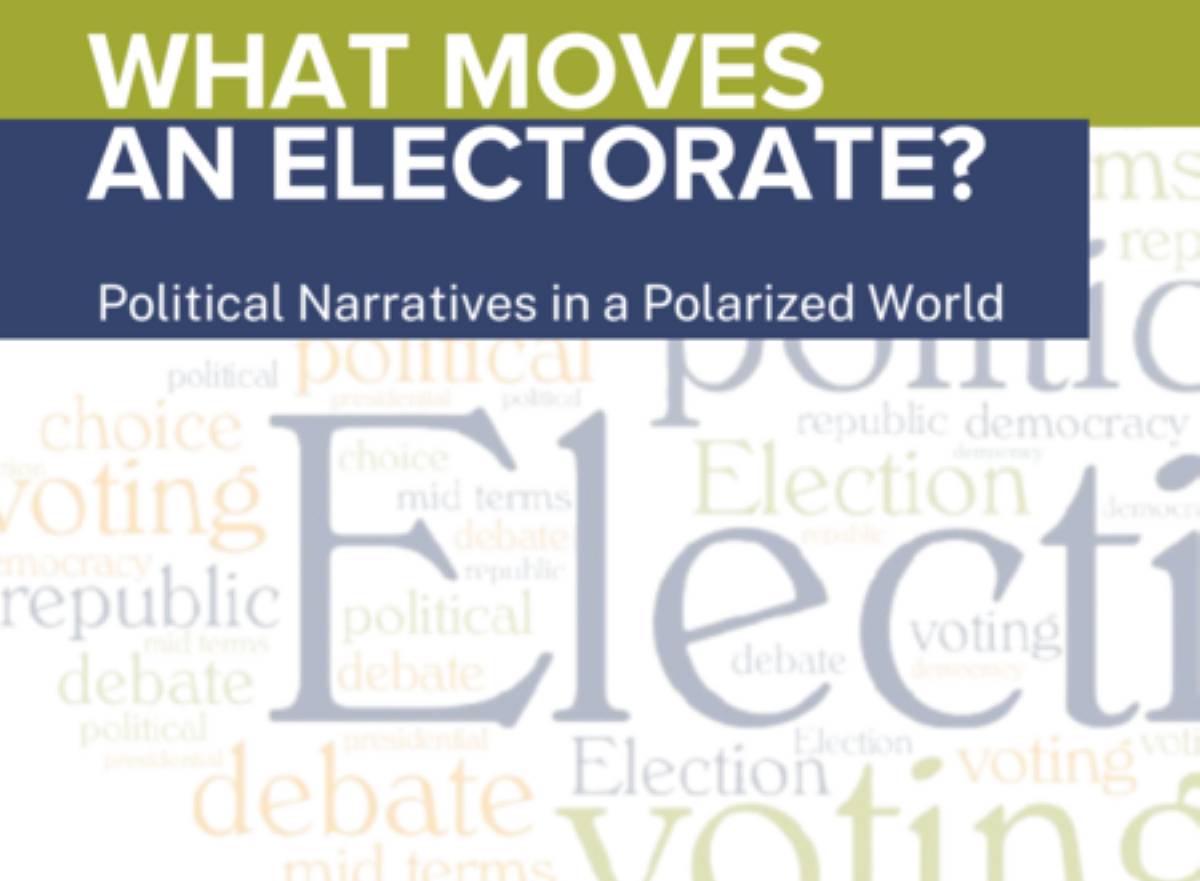
Info
In einem Gespräch diskutieren Thomas Mann Fellow, Politikwissenschaftlerin Andrea Römmele und Lynn Vavreck, Professorin für Amerikanische Politik und Public Policy an der UCLA, über den Einfluss von Medien, öffentlichen Endorsements bekannter Persönlichkeiten und Wahlkampagnen auf die Präsidentschaftswahlen 2024. Moderiert wird die Veranstaltung von Alexandra Lieben, stellvertretende Direktorin des Ronald W. Burkle Center for International Relations.
Wahlen haben gezeigt, dass Wähler:innen zwischen Kandidat:innen wechseln können, aber auch überhaupt zur Wahl gehen. Wissen wir, welche Art von politischer Botschaft eine Wählerschaft bewegt, was ankommt, was überzeugt? Es ist eine uralte Frage, die seit Beginn politischer Wahlkämpfe Kampagnen- und Kommunikationsstrateg:innen, Politiker:innen, politische Berater:innen und Medienexpert:innen unter anderem beschäftigt hat. Prominente Unterstützung wird oft gesucht und stets dankbar angenommen. Aber inwieweit können Unterstützungsbekundungen von Prominenten wie Taylor Swift, Dick Cheney oder Liz Cheney tatsächlich etwas bewegen?
In einer Umgebung, in der die Politik erstarrt scheint, Kommunikation durch Fehlinformationen und extreme Polarisierung erschwert wird und Themen in Fragen der Identität und persönlichen Werte verpackt sind, die notorisch schwer zu verändern sind – was kann den Unterschied machen? Gibt es etwas, das wir von jüngsten Wahlen anderswo, zum Beispiel in Europa, lernen können? Was sehen wir nicht, was verstehen wir nicht?
Teilnehmer:innen

Andrea Römmele ist Professorin für politische Kommunikation sowie Dekanin und Vizepräsidentin an der Hertie School in Berlin. Sie hat einen Master-Abschluss der San Francisco State University, wurde in Heidelberg promoviert und an der Freien Universität Berlin habilitiert. Ihre Forschungsinteressen liegen im Bereich der digitalen Demokratie, Wahlen sowie Wahlkämpfe und Parteien. Eines ihrer zentralen Anliegen ist die Vermittlung zwischen Wissenschaft und Praxis. Eines ihrer aktuellen Projekte hierzu ist die gemeinsam mit der ARD entwickelte „Demokratie-Reportage”, die sie selbst moderiert. Ihr neustes Buch Demokratie Neu Denken wurde im September 2024 veröffentlicht.
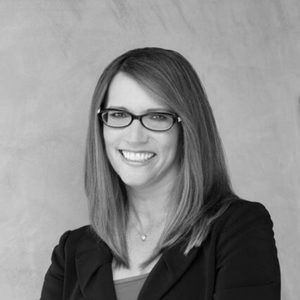
Lynn Vavreck, Marvin Hoffenberg Professor of American Politics and Public Policy an der UCLA, ist Expertin für Kampagnen, Wahlen und die öffentliche Meinung und beschäftigt sich mit Wahlwerbung, Umfragemethoden, Politik und Medien sowie dem Einfluss der Wirtschaftslage auf Wahlen. Vavreck ist Mitautorin von The Bitter End: The 2020 Presidential Campaign and the Challenge to American Democracy, in dem sie die Nachbeben des Wahlkampfs untersuchte. Sie ist außerdem Mitautorin von Identity Crisis: The 2016 Presidential Campaign and the Battle for the Meaning of America. Beide Bücher stützen sich auf Beobachtungen und Erkenntnisse von Nationscape, einer umfassenden wöchentlichen Meinungsumfrage unter den amerikanischen Wählern, für die Vavreck als Hauptforscherin tätig ist.
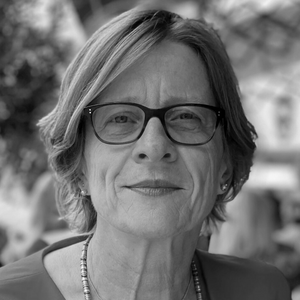
Alexandra Lieben ist stellvertretende Direktorin des Ronald W. Burkle Center for International Relations und Dozentin an der UCLA Luskin School of Public Affairs. Sie war Beraterin der Fakultät des Applied Management Research Program der UCLA Anderson School und ist Fakultätsmitglied des Promise Institute for Human Rights an der UCLA School of Law. Als zertifizierte Mediatorin unterrichtet sie an der UCLA Student:innen u. a. in konstruktiver Kommunikation und alternativer Streitbeilegung. Für Führungskräfte und Mitarbeiter:innen von Behörden der öffentlichen Sicherheit und des öffentlichen Sektors hält sie in diesem Bereich Seminare.
Partner
Threats to Democracies – Media and the 2024 Elections in Transatlantic Perspective | Workshop
University of North Carolina at Chapel Hill (Manning Hall, 216 Lenoir Dr Suite 100, Chapel Hill, NC 27599)

Info
Vom 23. bis 24. Oktober veranstaltet das Center for Information, Technology, and Public Life der University of North Carolina at Chapel Hill die zweitägige Veranstaltung Threats to Democracies: A Transatlantic Workshop on Media and the 2024 Elections in Zusammenarbeit mit UNC Global Affairs, Thomas Mann House Los Angeles und dem UNC Center for European Studies und unter Mitwirkung der UNC School of Information and Library Science. Zur Veranstaltung mit dem Fokus auf Medien, Technologie und Wahlen kommen renommierte Expert*innen zusammen, um kritische Herausforderungen für die Demokratien in den USA und Europa zu erörtern.
Wir befinden uns an einem Wendepunkt für globale Demokratien. Seit Beginn des 20. Jahrhunderts haben konsolidierte Demokratien in Europa und Nordamerika — und weit darüber hinaus — keine ernsthaften Bedrohungen ihrer Legitimität durch externe und interne Akteure mehr erfahren. Extern umfasst dies Informationskriegsführung von nicht-demokratischen Mächten, die versuchen, den demokratischen und liberalen Konsens durch Propaganda sowie Fehlinformationen und Desinformation zu untergraben. Intern, in Ländern von den Vereinigten Staaten und Italien bis hin zu Deutschland und Frankreich, umfasst es den Aufstieg antidemokratischer Führer, Parteien und Bewegungen, die oft auf nativistischen, ausschließenden identitätspolitischen Positionen beruhen, als Reaktion auf Migration und Fortschritte hin zu mehr Gleichberechtigung für historisch nicht dominante rassische, ethnische und religiöse Gruppen.
Bis heute haben zwei weitgehend getrennte akademische Forschungsbereiche diese Dynamiken analysiert — und Interventionen entwickelt, um ihnen entgegenzuwirken. Einerseits studieren Politikwissenschaftler und Politische Psychologen Parteien, Koalitionen und öffentliche Meinung, oft unter Anwendung vergleichender Methoden, wobei sie jedoch häufig die schnellen Veränderungen in den Medien im Kontext des demokratischen Abbaus nicht berücksichtigen. Andererseits haben Kommunikations- und Medienwissenschaftler Medien und digitale Propaganda, Fehlinformationen/Desinformation, Polarisierung in sozialen Medien und vernetzte, rechtsextreme Bewegungen intensiv untersucht, dabei jedoch selten diese Themen mit politischen Institutionen in Verbindung gebracht.
Ziel dieser Initiative ist es, diese unterschiedlichen Forschungsstränge zusammenzuführen, um Bedrohungen für die Demokratie umfassender zu verstehen und zu analysieren — und in die politischen Institutionen zu investieren, auf die Demokratien angewiesen sind. Vor allem möchten wir öffentlich zugängliche Forschung entwickeln, die die öffentliche Debatte, Medien- und Plattformrichtlinien sowie Interventionen von zivilgesellschaftlichen Akteuren und politischen Entscheidungsträgern informiert.
Bitte beachten Sie: Der Workshop findet in geschlossenem Rahmen statt. Für den offenen Fireside Chat am Donnerstag um 17 Uhr finden Sie hier mehr Informationen.
Programm
Mittwoch, 23. Oktober
This panel explores the new challenges democracies on both sides of the Atlantic face from media and technological changes, with an emphasis on elections.
Moderator:
- Daniel Kreiss, Principal Investigator, CITAP & Professor, UNC Hussman School of Journalism and Media
Panelists:
-
Francesca Tripodi, Principal Investigator, CITAP & Associate Professor, UNC School of Information and Library Science
-
Guido Zurstiege, Professor for Media Studies, University of Tübingen
-
Tobias Wilke, Assistant Professor of German, UNC Department of Germanic & Slavic Languages & Literatures
-
Gregor Asmolov, Lecturer in Digital Entrepreneurship and Marketing, King's College London
-
Jianing Li, Assistant Professor of Communication, Rutgers University Department of Communication.
This panel focuses on how social cleavages around race, ethnicity, religion, and immigration are weaponized in political narratives and elections.
Moderator:
- Ulrike Klinger, Professor for Digital Democracy, European New School of Digital Studies
Panelists:
-
Meredith Clark, Principal Investigator, CITAP & Associate Professor, UNC Hussman School of Journalism and Media
-
Jen Schradie, Associate Professor, Center for Research on Social Inequalities, Sciences Po
-
Priscilla Layne, Director of the UNC Center for European Studies & Professor of German, UNC Department of Germanic & Slavic Languages & Literatures
-
Sarah J. Jackson, Associate Professor, Annenberg School for Communication, University of Pennsylvania & Co-Director, Media, Inequality & Change Center
-
Frank Baumgartner, Professor of Political Science, UNC Department of Political Science
-
Robert Jenkins, Teaching Professor, UNC Department of Political Science
Donnerstag, 24. Oktober
This panel examines the resurgence of authoritarianism and anti-democratic politics, with a focus on how media and technology facilitate these trends.
Moderator:
- Ulrike Klinger, Professor for Digital Democracy, European New School of Digital Studies
Panelists:
-
Alice Marwick, Director of Research, Data & Society
-
Johannes Gerschweski, Research Fellow, Department of Global Governance, WZB Berlin Social Science Center
-
Jakob Norberg, Professor of German Studies, Duke University
-
Christiane Lemke, Emerita Professor of Political Science and International Relations, UNC Department of Political Science
-
Annett Heft, Research Project Lead, Institute for Media and Communication Studies, Freie Universität Berlin
This panel addresses the role of media in increasing polarization, disinformation, and division during election campaigns.
Moderator:
- Daniel Kreiss, Principal Investigator, CITAP & Professor, UNC Hussman School of Journalism and Media
Panelists:
-
Shannon McGregor, Principal Investigator, CITAP & Associate Professor, UNC Hussman School of Journalism and Media
-
Frank Esser, Professor of International & Comparative Media Research, Universität Zürich.
-
Pola Lehmann, Research Fellow, Center for Civil Society Research, WZB Berlin Social Science Center
-
Stanislav Shvabrin, Russian Program Director & Associate Professor of Russian, UNC Department of Germanic & Slavic Languages & Literatures
-
Radik Lapushin, Associate Professor of Russian Literature, UNC Department of Germanic & Slavic Languages & Literatures
-
Chad Bryant, Professor, UNC Department of History
Freedom Forum Conference Center, Carroll Hall
A fireside chat on “Media Coverage of the 2024 U.S. Presidential Election: The View from Germany and the United States”.
With:
-
Tressie McMillan Cottom, a New York Times columnist, Principal Investigator, CITAP & Associate Professor, UNC School of Information and Library Science
-
Juliane Schäuble, U.S. Correspondent, Tagesspiegel Newspaper
Moderated by:
- Daniel Kreiss, Principal Investigator, CITAP & Professor, UNC Hussman School of Journalism and Media
RSVP here!
Student Council on "Democracy and Vulnerability"
Wende Museum (10808 Culver Blvd Culver City CA 90230)
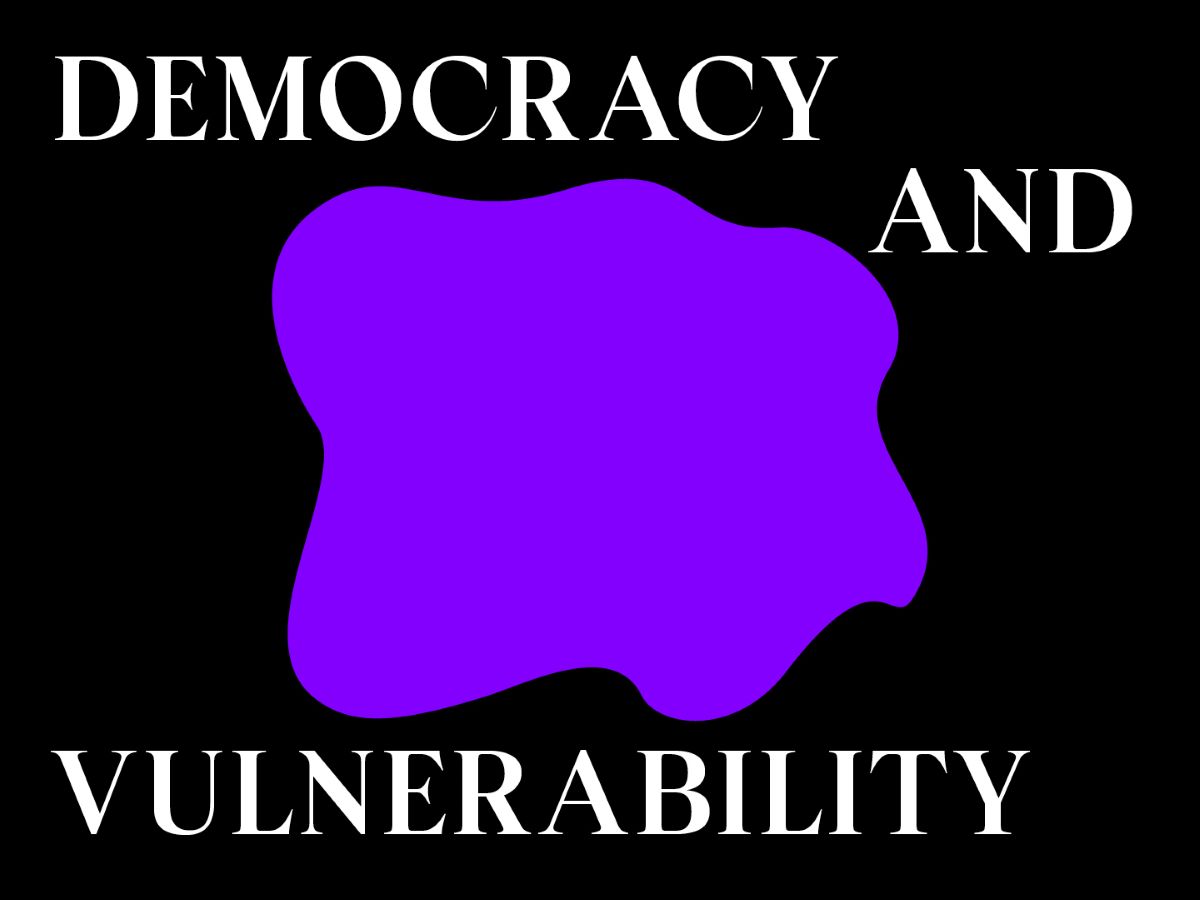
Info
Das Wende Museum, dublab radio, und das Thomas Mann House laden Sie zu dem Live-Gespräch unserer monatlichen Interviewreihe zum Thema Democracy & Vulnerability am 26. Oktober in das neue A-Frame Theater des Wende Museums ein. Wie sollte eine Demokratie mit ihren eigenen Schwachstellen umgehen? Wie müssen sich Demokratien entwickeln, um erfolgreich mit den weltweit zunehmenden ökologischen Krisen, geopolitischen Spannungen, wirtschaftlichen Ungleichheiten und Kulturkriegen umzugehen? Wie viel Verwundbarkeit kann eine Demokratie ertragen? Das Oktober-Programm der Reihe beschäftigt sich vor der US-Wahl mit dem globalen Aufstieg des Rechtspopulismus, zu dem Politikwissenschaftler Jonathan Homola und Historikerin Marla Stone sprechen werden.
Der Student Council besteht aus einem Team hochengagierter, talentierter und vielfältiger Bachelor- und Masterstudierender, die prominente Gastredner:innen einladen, um Themen zu Gesellschaft, Politik, Kultur und Kunst zu diskutieren. Im Gespräch mit Akademiker:innen, Journalist:innen, Politiker:innen und Künstler:innen werden die Studierenden die verschiedenen Bedrohungen für demokratische Institutionen und Prinzipien weltweit untersuchen sowie Strategien, um diese Bedrohungen möglicherweise zu überwinden.
Oktober Speakers
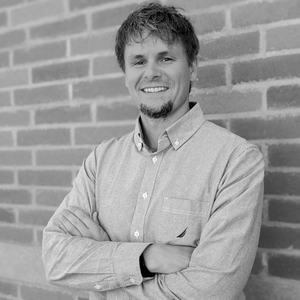
Jonathan Homola ist Assistenzprofessor an der Abteilung für Politikwissenschaft an der University of California, Los Angeles. Ein Großteil seiner Forschung beschäftigt sich mit Fragen der Repräsentation und der Wählerpräferenzen in westlichen Demokratien. Zu seinen Hauptinteressen gehören Xenophobie und die Unterstützung für rechtsextremistische Strömungen.
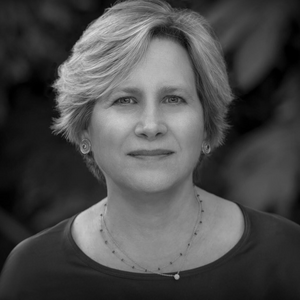
Marla Stone ist Professorin für Geschichte am Occidental College und spezialisiert auf die Geschichte des Faschismus sowie auf Fragen der Diktatur und des Völkermords in der Moderne. Stones Arbeiten betonen die Beziehung zwischen Kultur, Politik und dem Staat im 20. Jahrhundert. Sie hat zu verschiedenen Themen der europäischen Geschichte veröffentlicht, darunter die Kulturpolitik des italienischen Faschismus, Antikommunismus, die zeitgenössische extreme Rechte in Europa, die Erinnerungskultur zum Holocaust in Italien sowie die Kontinuitäten und Brüche zwischen historischem Faschismus und seinen zeitgenössischen Manifestationen. Sie lehrt am Occidental College seit 1994 und erhielt ihren M.A. und Ph.D. von der Princeton University.
Vorherige Episoden
Sie können frühere Episoden auf YouTube ansehen, die Aufzeichnungen auf dublab radio anhören oder die Zusammenfassung unserer Studierenden auf dem Blog des Thomas Mann House lesen
Das Student Council

Sara Abrahamsson studiert im vierten Jahr an der UCLA Kunstgeschichte und Französisch. Als Höhepunkt ihres künstlerischen und akademischen Interesses an politischer Grafik schreibt Sara derzeit ihre Abschlussarbeit über die internationalistische Plakatkunst des nachrevolutionären Kuba. Nach ihrem Abschluss plant sie, weiterhin in Museen zu arbeiten, bevor sie postgraduale Studien in Kunstgeschichte oder Kunstkonservierung aufnimmt.
Amy Cabrales ist eine First-Generation-Studentin im vierten Jahr an der UCLA, die Soziologie und Russisch studiert. Sie ist mexikanisch-amerikanischer Herkunft und wurde in Lynwood, Kalifornien, geboren. Ihre beruflichen Interessen umfassen interkulturelle Bildung durch Museumsarbeit oder Sprachunterricht sowie die Ansiedlung von Einwanderern. Ihre akademischen Interessen liegen in der Integration von Einwanderern und der Selbstidentität über Generationen hinweg. Sie plant, im akademischen Jahr 2024-25 nach Almaty, Kasachstan, zurückzukehren, um diese Interessen zu vertiefen und ihre Russischkenntnisse zu erweitern.
Elsa Coony studiert im vierten Jahr an der University of California, Los Angeles Global Studies und Deutsch. Sie hat bereits im United States Holocaust Memorial Museum als Führerin und Übersetzerin gearbeitet und freut sich darauf, dem diesjährigen Rat beizutreten. In der Zukunft hofft sie, eine Karriere in der internationalen Entwicklung zu verfolgen.
Biruke Dix studiert im zweiten Jahr an der UCLA angewandte Mathematik. Er trat 2024 dem Student Council bei und ist tief in die sich ständig verändernden Eigenschaften der Kunst sowie gesellschaftlicher Gewohnheiten investiert. Er hofft, Gespräche zu schaffen, die die Verbreitung kultureller Veränderungen und sozialer Gerechtigkeit fördern.
Matthew Jones ist ein Doktorand im dritten Jahr im Programm für Kulturwissenschaften und Museumsstudien der Claremont Graduate University. Seine Forschung untersucht derzeit, wie Orte, die mit autoritären Regimen verbunden sind, als Pilgerziele fungieren und welche Strategien Staaten und Institutionen anwenden, um extremistische Bindungen an diesen Orten zu verringern. Er ist begeistert, seine Ausbildung durch diese Zusammenarbeit mit dem Wende Museum fortzusetzen.
Emma Larson ist eine Masterstudentin am Harriman Institute for Russian, Eurasian, and Eastern European Studies der Columbia University. Dort konzentriert sie sich auf die Geschlechter-, Sozial- und Politikgeschichte Zentralasiens. Bevor sie an der Columbia begann, unterrichtete Emma Englisch in Kasachstan im Rahmen des Fulbright-Programms. 2021 schloss sie ihr Studium am Williams College mit Abschlüssen in Geschichte und Russisch ab.
Zora Nelson ist derzeit eine Studentin im Grundstudium an der New York University, wo sie Harfenperformance sowie Medien, Kultur und Kommunikation studiert. Als Künstlerin, die in Philadelphia, Pennsylvania, geboren und aufgewachsen ist, entdeckte sie das Wende Museum im Sommer 2022. Mit einer Leidenschaft für das Schreiben sieht Zora ihre Zukunft im Storytelling, um soziale Gerechtigkeit zu fördern.
Lexi Tooley studiert im zweiten Jahr an der University of Pennsylvania Politikwissenschaft und Kunstgeschichte mit einem Nebenfach in Chinesisch und Kultur. Sie stammt ursprünglich aus Los Angeles, Kalifornien, und besuchte die Archer School for Girls. Lexi arbeitet seit 2 Jahren mit dem Wende Museum zusammen.
Solidarity and Compromise
Goethe-Institut Chicago (150 N Michigan Ave, Suite 420, Chicago IL 60601)
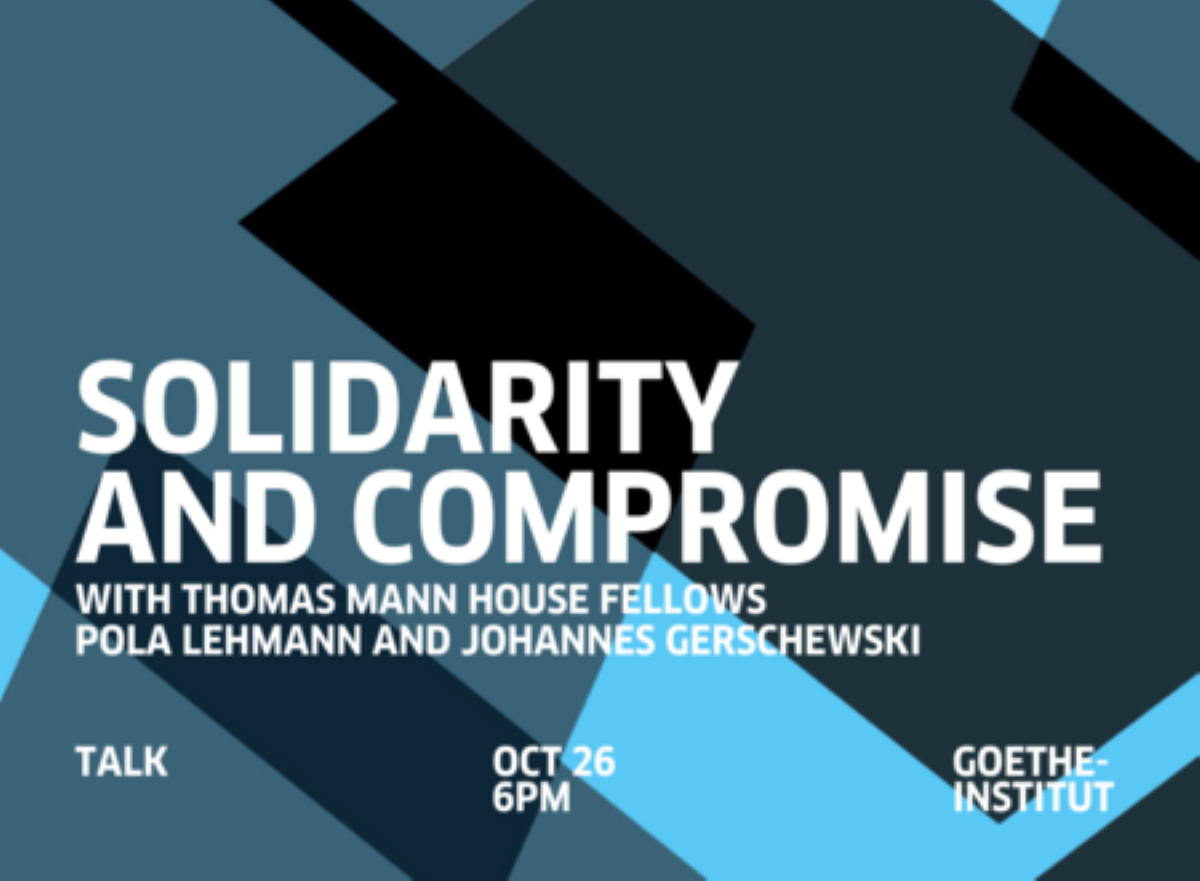
Info
Viele Demokratien stehen heute unter Druck, sowohl in Ländern mit lang etablierten Demokratien wie den Vereinigten Staaten als auch in neuen Demokratien wie Ungarn und Polen. Ein sehr offensichtliches Symptom dieses Drucks spiegelt sich in der Art und Weise wider, wie politische Debatten heute geführt werden. Sie werden immer hitziger und unversöhnlicher, wobei die andere Seite als legitimer Gegner in der Debatte nicht anerkannt wird. Diskussionen werden dadurch angeheizt, dass die verschiedenen Seiten als Vertreter der richtigen oder falschen Antwort dargestellt werden, anstatt unterschiedliche, aber legitime Ansichten zu dem jeweiligen Thema zu präsentieren. Was kann Gesellschaften in diesen Zeiten zusammenhalten und den sozialen Zusammenhalt stärken? Solidarität könnte eine Antwort auf diese Frage sein.
Solidarität mit der Sache eines anderen zu zeigen, kann Verbindungen zwischen verschiedenen Gruppen in der Gesellschaft aufbauen. Aber Solidarität ist auch sehr anspruchsvoll; sie erfordert nicht nur, die Sache als legitim zu betrachten, sondern auch als würdig. Eine weniger anspruchsvolle Lösung bietet der politische Kompromiss. Kompromiss erfordert ebenfalls, die andere Seite als legitimen Vertreter anzuerkennen, aber es ist nicht notwendig, daraus eine gemeinsame Sache zu machen. Die verschiedenen Seiten können sich immer noch über die beste Lösung für ein gegebenes Problem uneinig sein, aber sie respektieren die Ansichten des jeweils anderen und handeln in dem festen Glauben, dass es besser ist, einen Kompromiss zwischen den verschiedenen Ansichten zu finden, auch wenn dies für beide Seiten einen Verlust bedeutet, als keinen Kompromiss zu schließen. Aber wie können Gesellschaften in solch hitzigen Umfeldern, wie wir sie heute finden, eine Atmosphäre des gegenseitigen Respekts und der Legitimität für die Sache der anderen Seite schaffen?
Teilnehmer:innen
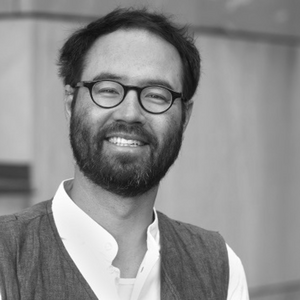
Johannes Gerschewski ist wissenschaftlicher Mitarbeiter am Wissenschaftszentrum Berlin für Sozialforschung und koordiniert die Arbeit des Theorienetzwerks am Exzellenzcluster „Contestations of the Liberal Script (SCRIPTS)“. Seine wissenschaftlichen Arbeiten wurden unter anderem im American Political Science Review, Perspectives on Politics, und Comparative Political Studies publiziert. Sein Buch zu The Two Logics of Autocratic Rule erschien im April 2023 bei Cambridge University Press.
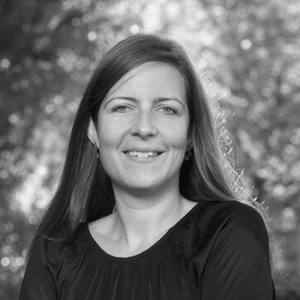
Pola Lehmann ist wissenschaftliche Mitarbeiterin am Wissenschaftszentrum Berlin für Sozialforschung und Co-Leiterin des Manifesto Projekts. Sie studierte Verwaltungswissenschaften an der Universität Potsdam und Kopenhagen. Ihre Forschungsschwerpunkte sind Demokratie und politische Repräsentation, politische Parteien und Wahlen sowie maschinelles Lernen. In ihrer Dissertation, die mit dem Leibniz Promotionspreis 2021 ausgezeichnet wurde, untersuchte sie politische Repräsentation und Kompromisse im Deutschen Bundestag.
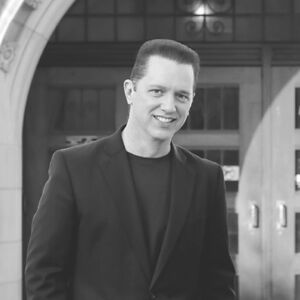
Jeffrey Winters ist Professor und Direktor des Programms für Gleichheit, Entwicklung und Globalisierungsstudien (EDGS) sowie ehemaliger Vorsitzender der Abteilung für Politikwissenschaft an der Northwestern University. Prof. Winters ist auf Oligarchen und Eliten sowie auf die Rolle von Wohlstand, Macht und extremer wirtschaftlicher Ungleichheit in verschiedenen politischen Systemen spezialisiert. Sein bevorstehendes Buch Domination through Democracy: Why Oligarchs Win wird von Penguin Random House veröffentlicht. Sein früheres Buch Oligarchy (Cambridge 2011) gewann den Gregory M. Luebbert Award der APSA 2012 für das beste Buch in der vergleichenden Politikwissenschaft. Prof. Winters untersucht außerdem Menschenrechte, Autoritarismus und demokratische Übergänge in postkolonialen Staaten. Er hat umfangreiche Forschungen in der Region Südostasien durchgeführt.
Partner
Diese Veranstaltung wird vom Goethe-Institut Chicago in Zusammenarbeit mit dem American Council on Germany organisiert.

"Citizenship As Political Membership: A Fundamental Strand of 20th and 21st Century European History"
Scripps College, Hampton Room (1030 Columbia Avenue Claremont, CA 91711)

Info
Im Rahmen seines 2024 Thomas Mann Fellowships spricht der Historiker und Jurist Dieter Gosewinkel am Scripps College darüber, wie die Staatsbürgerschaft im 20. Jahrhundert zur wichtigsten Form der politischen Zugehörigkeit in Europa wurde und warum sie trotz moderner Entwicklungen wie Globalisierung und Europäisierung weiterhin zentral bleibt.
In diesem Vortrag erörtert Dieter Gosewinkel die Bedeutung der Staatsbürgerschaft als Schlüsselform der politischen Zugehörigkeit im Europa des 20. Jahrhunderts und wie sie trotz moderner Trends wie Globalisierung und Europäisierung zentral bleibt. Die Bedeutung, die der Staatsbürgerschaft beigemessen wird, unterscheidet das 20. Jahrhundert von früheren historischen Perioden und anderen Formen der politischen Zugehörigkeit (Religion, Partei, Ethnie, Nationalstaat und soziale Klasse). Mit der Demokratisierung der politischen Systeme, der Ausweitung der Mitwirkungsrechte, der Entwicklung von Sozialrechten und der zunehmenden Abschottung der Staaten voneinander gewann die Staatsbürgerschaft für den*die Einzelne*n immer mehr an Bedeutung. Auch die gegenwärtigen Prozesse der Transnationalisierung, Europäisierung und Globalisierung können die Vorrangstellung der Staatsbürgerschaft nur allmählich und unwesentlich verändern. Die Abgrenzung der politischen Zugehörigkeit und die Unterscheidung von der Nicht-Zugehörigkeit bleiben die primären Funktionen des Staates, auch wenn dieser zunehmend seinen nationalstaatlichen Charakter verliert.
Teilnehmer
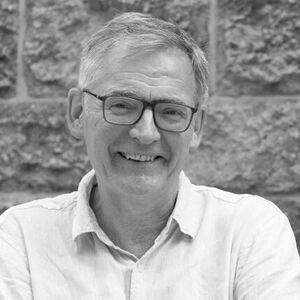
Dieter Gosewinkel ist Historiker und Jurist mit den Forschungsschwerpunkten Moderne Geschichte Europas sowie Geschichte der Staatsbürgerschaft, der Zivilgesellschaft, des Staatsrechts und des Europadenkens. Von 2011 bis 2021 war er Co-Direktor des Forschungsbereichs „Center for Global Constitutionalism” am Wissenschaftszentrum Berlin für Sozialforschung. Er ist aktuell Senior Research Fellow am Hamburger Institut für Sozialforschung. Darüber hinaus war er Fellow u. a. am European University Institute Florence, dem Institut d’Études Avancées de Paris und an der University of Oxford. Er lehrte u. a. an der Freien Universität Berlin und der Sciences Po, Paris.
Partner
Die Vortragsreise ist eine Zusammenarbeit mit dem European Union Center of California des Scripps College.
"Citizenship As Political Membership: A Fundamental Strand of 20th and 21st Century European History"
UCLA Department of Sociology (264 Haines Hall 375 Portola Plaza Los Angeles, CA 90095-1551)
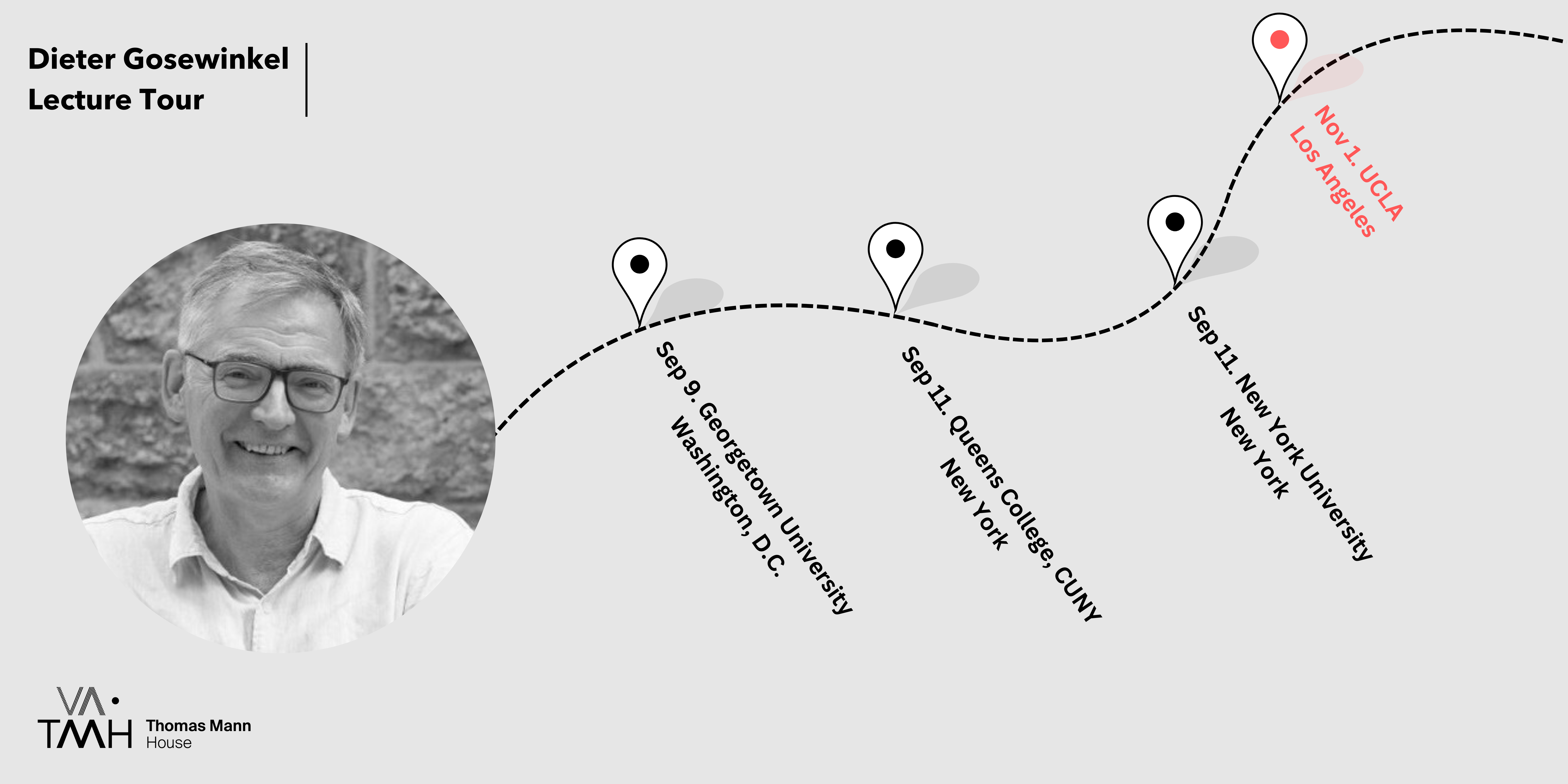
Info
Im Rahmen seines 2024 Thomas Mann Fellowships spricht der Historiker und Jurist Dieter Gosewinkel über die Staatsbürgerschaft im 20. Jahrhundert als wichtigste Form der politischen Zugehörigkeit in Europa und warum sie trotz moderner Entwicklungen wie Globalisierung und Europäisierung weiterhin zentral bleibt. Professor Gosewinkel hat bereits Institutionen wie das Queens College (CUNY), die Georgetown University, die New York University und UCLA besucht.
In diesem Vortrag erörtert Thomas Mann Fellow Dieter Gosewinkel die Bedeutung der Staatsbürgerschaft als Schlüsselform der politischen Zugehörigkeit im Europa des 20. Jahrhunderts und wie sie trotz moderner Trends wie Globalisierung und Europäisierung zentral bleibt. Die Bedeutung, die der Staatsbürgerschaft beigemessen wird, unterscheidet das 20. Jahrhundert von früheren historischen Perioden und anderen Formen der politischen Zugehörigkeit (Religion, Partei, Ethnie, Nationalstaat und soziale Klasse). Mit der Demokratisierung der politischen Systeme, der Ausweitung der Mitwirkungsrechte, der Entwicklung von Sozialrechten und der zunehmenden Abschottung der Staaten voneinander gewann die Staatsbürgerschaft für den*die Einzelne*n immer mehr an Bedeutung. Auch die gegenwärtigen Prozesse der Transnationalisierung, Europäisierung und Globalisierung können die Vorrangstellung der Staatsbürgerschaft nur allmählich und unwesentlich verändern. Die Abgrenzung der politischen Zugehörigkeit und die Unterscheidung von der Nicht-Zugehörigkeit bleiben die primären Funktionen des Staates, auch wenn dieser zunehmend seinen nationalstaatlichen Charakter verliert.
Teilnehmer

Dieter Gosewinkel ist Historiker und Jurist mit den Forschungsschwerpunkten Moderne Geschichte Europas sowie Geschichte der Staatsbürgerschaft, der Zivilgesellschaft, des Staatsrechts und des Europadenkens. Von 2011 bis 2021 war er Co-Direktor des Forschungsbereichs „Center for Global Constitutionalism” am Wissenschaftszentrum Berlin für Sozialforschung. Er ist aktuell Senior Research Fellow am Hamburger Institut für Sozialforschung. Darüber hinaus war er Fellow u. a. am European University Institute Florence, dem Institut d’Études Avancées de Paris und an der University of Oxford. Er lehrte u. a. an der Freien Universität Berlin und der Sciences Po, Paris.
Partner
Diese Vortragsreise findet in Kooperation mit Queens College (CUNY), Georgetown University, New York University, und UCLA statt.
Media, Artificial Intelligence and the Vulnerabilities of Democracy
Thomas Mann House Los Angeles (1550 N San Remo Drive, Pacific Palisades, CA 90272)
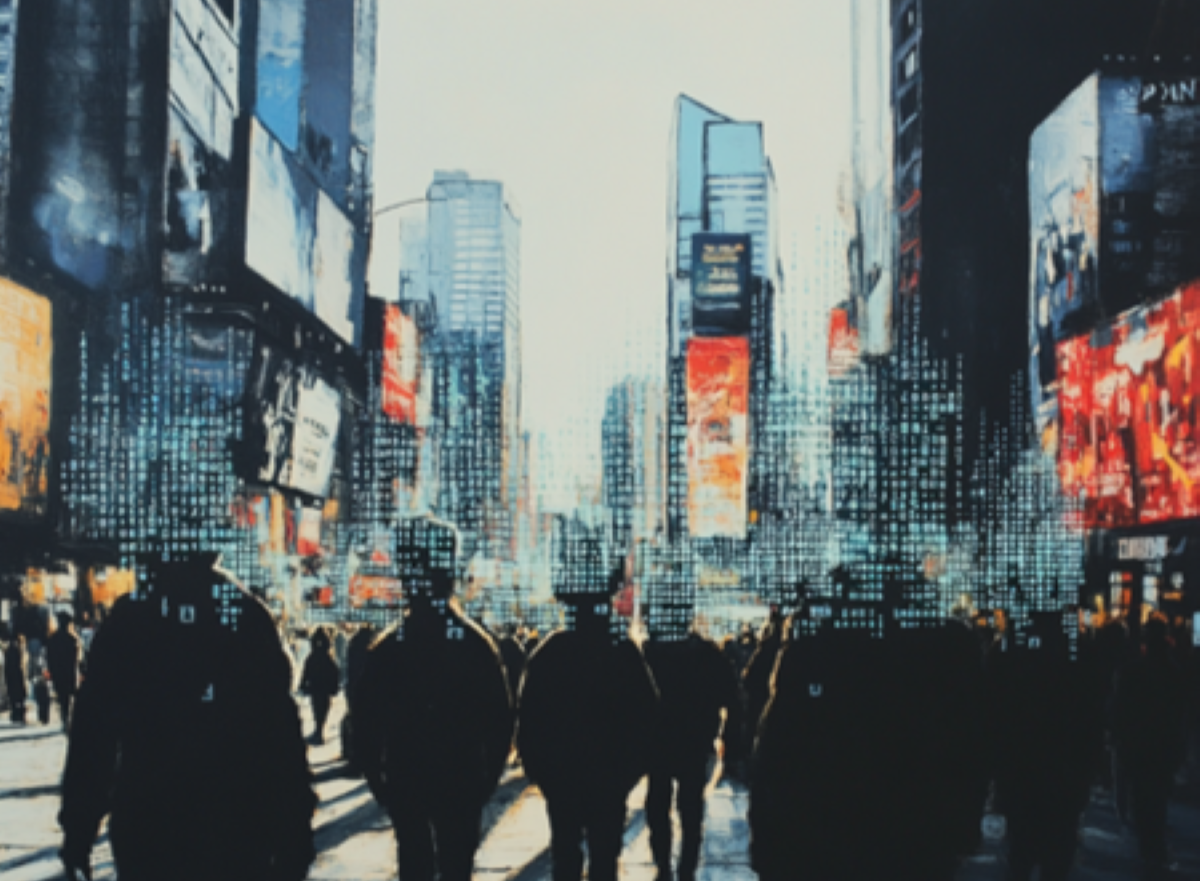
Info
Mit der Einführung von ChatGPT, Midjourney und Dall.E wurde künstliche Intelligenz für den täglichen Gebrauch verfügbar. Heute kann jede und jeder mithilfe generativer KI Texte oder Bilder erstellen – ohne technisches Fachwissen und auf gewöhnlichen Alltagsgeräten. Journalist:innen nutzen schon länger automatisierte Textproduktion und wir sehen zunehmend auch KI-generierte Inhalte in politischen Kampagnen. Wie verändert dies die Art und Weise, wie Bürger Informationen erhalten, den Medien vertrauen und Realität wahrnehmen? Wird KI eine Welle von Desinformation und Deepfakes auslösen oder dazu beitragen, „Fake News“ und Hassreden zu bekämpfen? Kann KI die politische Polarisierung und die Erosion der Autorität demokratischer Institutionen vertiefen? Welche Rolle hat KI im Superwahljahr 2024 mit Wahlen in über 60 Ländern weltweit gespielt?
Die Expert:innen auf dem Podium werden über positive und negative Auswirkungen der künstlichen Intelligenz, die Rolle von Informationen in der Demokratie und die Regulierung von Kommunikationstechnologien in demokratischen Gesellschaften diskutieren. Wer handelt durch KI und wer ist für ihre Auswirkungen auf die Demokratie verantwortlich? Aus transatlantischer Perspektive und auf der Grundlage aktueller akademischer Forschung stellen sie die Frage: Ist die Demokratie bereit für KI?
Teilnehmer:innen
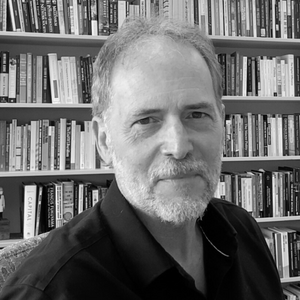
Bruce Bimber is Distinguished Professor of Political Science at UC Santa Barbara, where he studies how democracy is affected by computing and media environments. He has written extensively about how the Internet facilitates the formation of political groups both within the mainstream and at the extremes. In recent years, he has turned to the study of democratic erosion, focusing on the role of social media use in people's belief in conspiracy theories and in the spread of populist and illiberal attitudes. He is a Fellow of the American Association for the Advancement of Science and of the International Communication Association, and a past Fellow of the Center for Advanced Study in the Behavioral Sciences. He is currently working on the use of AI to analyze conspiracy theories and endorsements of political violence in social media.
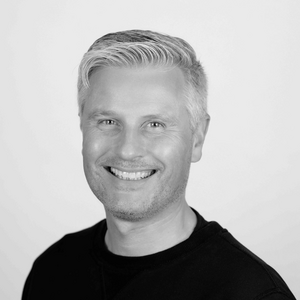
Claes H. de Vreese is Distinguished University Professor of Artificial Intelligence and Society, with a special focus on media and democracy at the University of Amsterdam. He also holds the Chair in political communication at the Amsterdam School of Communication Research ASCoR. His research interests include the role of automation, algorithms, and artificial intelligence in democratic processes. This includes microtargeting, news recommenders, social media platforms, disinformation, comparative journalism research, the effects of news, and public opinion. He has published a dozen books and more than 250 articles. He is the recipient of the Swanson Career Achievement Award, the NeFCA Career Award, and he is an elected Fellow of the Royal Dutch Academy of Sciences, the International Communication Association, and the Royal Holland Society of Sciences.

Ulrike Klinger is Professor for Digital Democracy and member of the Board of Directors of the European New School of Digital Studies at the European University Viadrina in Frankfurt/Oder. She is an associate researcher at the Weizenbaum Institute for the Networked Society in Berlin, where she led the research group “News, Campaigns, and the Rationality of Public Discourse” until 2020. She researches digital political communication, technology and power, and the transformation of digital publics.
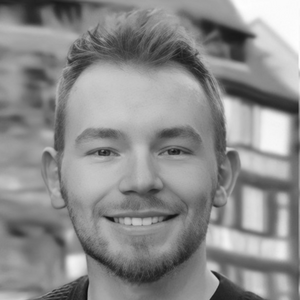
Julien Labarre is an Assistant Professor of Political Science at California State University Dominguez Hills and an affiliate of the International Panel on the Information Environment, a research initiative launched at the 2023 Nobel Prize Summit. He is also the former administrator of the Center for Information Technology & Society. His research focuses on mass media, epistemic problems, extremism, and pathologies of democracy, primarily in the US and France.
Artificial Intelligence, Epistemic Vulnerability, and Democracy
Thomas Mann House Los Angeles (1550 N San Remo Drive, Pacific Palisades, CA 90272)

Info
Nach einer Einführung in das theoretische Konzept der epistemischen Vulnerabilität durch Julien Labarre (2024) werden führende Wissenschaftler:innen aus dem Großraum Los Angeles zusammen mit Thomas Mann Fellows tiefer in die aktuelle Entwicklung der generativen KI und ihre Auswirkungen auf die Demokratie eintauchen. Epistemische Vulnerabilität geht davon aus, dass der fast ausschließliche Fokus auf Täuschung die Rolle anderer epistemischer Probleme herunterspielt, wie z. B. das Misstrauen gegenüber den Medien und die weit verbreitete Orientierungslosigkeit der Bürger:innen als Reaktion auf minderwertige Informationen und Medien, die sie als nicht vertrauenswürdig empfinden. Epistemische Vulnerabilität ist nicht überall und für alle gleich. Studien zeigen, dass nordeuropäische Länder widerstandsfähiger zu sein scheinen als die USA oder osteuropäische Länder. Die Workshop-Teilnehmer:innen analysieren diese Resilienzfaktoren und die Lehren, die wir daraus im transatlantischen Vergleich ziehen können.
In zwei Sessions steht im Fokus, wie KI die Auswirkungen epistemischer Verwundbarkeit mildern und verstärken kann, wie die Idee einer ethischen oder verantwortungsvollen KI damit zusammenhängt und wie Wissenschaftler*innen diese Entwicklungen empirisch untersuchen können – in Texten, Bildern und Videos. Dies steht im Zusammenhang mit Problemen der empirischen Forschung, wie dem Datenzugang und Angriffen auf Wissenschaftler*innen im Bereich der Desinformationsforschung.
Teilnehmer:innen

Bruce Bimber is Distinguished Professor of Political Science at UC Santa Barbara, where he studies how democracy is affected by computing and media environments. He has written extensively about how the Internet facilitates the formation of political groups both within the mainstream and at the extremes. In recent years, he has turned to the study of democratic erosion, focusing on the role of social media use in people's belief in conspiracy theories and in the spread of populist and illiberal attitudes. He is a Fellow of the American Association for the Advancement of Science and of the International Communication Association, and a past Fellow of the Center for Advanced Study in the Behavioral Sciences. He is currently working on the use of AI to analyze conspiracy theories and endorsements of political violence in social media.

Claes H. de Vreese is Distinguished University Professor of Artificial Intelligence and Society, with a special focus on media and democracy at the University of Amsterdam. He also holds the Chair in political communication at the Amsterdam School of Communication Research ASCoR. His research interests include the role of automation, algorithms, and artificial intelligence in democratic processes. This includes microtargeting, news recommenders, social media platforms, disinformation, comparative journalism research, the effects of news, and public opinion. He has published a dozen books and more than 250 articles. He is the recipient of the Swanson Career Achievement Award, the NeFCA Career Award, and he is an elected Fellow of the Royal Dutch Academy of Sciences, the International Communication Association, and the Royal Holland Society of Sciences.

Ulrike Klinger is Professor for Digital Democracy and member of the Board of Directors of the European New School of Digital Studies at the European University Viadrina in Frankfurt/Oder. She is an associate researcher at the Weizenbaum Institute for the Networked Society in Berlin, where she led the research group “News, Campaigns, and the Rationality of Public Discourse” until 2020. She researches digital political communication, technology and power, and the transformation of digital publics.

Julien Labarre is an Assistant Professor of Political Science at California State University Dominguez Hills and an affiliate of the International Panel on the Information Environment, a research initiative launched at the 2023 Nobel Prize Summit. He is also the former administrator of the Center for Information Technology & Society. His research focuses on mass media, epistemic problems, extremism, and pathologies of democracy, primarily in the US and France.
The Virtue and Limits of Political Compromise in Liberal Democracies
Thomas Mann House Los Angeles (1550 N San Remo Drive, Pacific Palisades, CA 90272)

Info
Zusammen mit den Thomas Mann Fellows Pola Lehmann und Johannes Gerschewski veranstaltet das Thomas Mann House einen Workshop über den Wert politischer Kompromisse in der Demokratie aus einer transatlantischen Perspektive mit Expert:innen aus der Politikwissenschaft und dem politischen Aktivismus.
Der Workshop bringt Politikwissenschaftler:innen und politische Aktivist:innen zusammen, um die Ambivalenz politischer Kompromisse in Zeiten zunehmender Polarisierung zu erörtern. Der Fokus liegt auf verschiedenen Aspekten politischer Kompromisse für liberale Demokratien:
(1) Was sind die Voraussetzungen für politische Kompromisse?
(2) Was kann durch Kompromisse gewonnen werden, und was sind auch die Grenzen des Kompromisses?
(3) Und schließlich, wie können Institutionen und Einzelpersonen ein Umfeld schaffen, das förderlich für Kompromisse ist?
Programm
Donnerstag, 21. November
Why and when should we engage in compromise?
The first session clarifies what a political compromise is, what the main features of a compromise look like, and why the ability to compromise might (or might not) lie at the heart of liberal democracies. In heterogeneous and pluralistic societies, compromise is not only a necessary feature of political life, but it can be argued that the acceptance of political rivals as having legitimate interests leads to a self-reinforcing dynamic that underpins democratic processes.
Freitag, 22. November
When should we not engage in compromise?
The second session looks at the limits of compromise, exploring the proverbial “rotten” compromise to ask when we should shy away from forging compromises. This includes reflections on the question of freedom of speech, and to what extent populism impedes our ability to find compromise.
How do the United States and Germany deal with compromise and polarization?
The third session explores the differing way in which political compromise is built into the different political systems of the United States and Germany, comparing two different ways these political systems react and maybe even produce societal polarization.
How to create a conducive environment for political compromise?
The last session discusses what conducive environments could look like that foster political compromise. What makes political compromise more likely? What hinders it?
Teilnehmer:innen
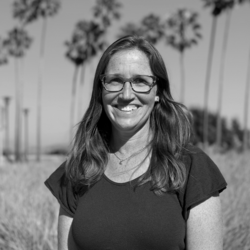
Sarah E. Anderson is a Professor and Acting Dean at the Bren School of Environmental Science & Management at the University of California, Santa Barbara. She studies how the public and politics influences policy. In her 2020 book Rejecting Compromise: Legislators’ Fear of Primary Voters, she focuses on how the public drives inequity and inefficiency in agencies’ wildfire prevention and why legislators reject compromise. In her research, teaching, and service, she works with students, staff, faculty, communities, and leaders to overcome social and political barriers to solving environmental problems and to work toward equity in the environmental field.

Pola Lehmann is a research fellow at the WZB Berlin Social Science Center and co-director of the Manifesto Project. She studied administrative sciences at the Universities of Potsdam and Copenhagen. Her research focuses on democracy and political representation, political parties and elections, and machine learning. In her dissertation, which won the Leibniz Dissertation Award in 2021, she investigated political representation and compromise in the German Bundestag.

Alexandra Lieben is the Deputy Director of the Ronald W. Burkle Center for International Relations and an affiliated faculty member of the Promise Institute for Human Rights at the UCLA School of Law. A certified mediator, she teaches constructive communication, alternative dispute resolution, public dialogue, cultural competency, international conflict resolution, and community and economic development to undergraduate and graduate students at UCLA.

Johannes Gerschewski is a research fellow at the WZB Berlin Social Science Center and coordinates the work of the Theory Network at the Cluster of Excellence “Contestations of the Liberal Script (SCRIPTS).” He has published in academic journals including American Political Science Review, Perspectives on Politics, and Comparative Political Studies. His book on The Two Logics of Autocratic Rule was published in April 2023 by Cambridge University Press.
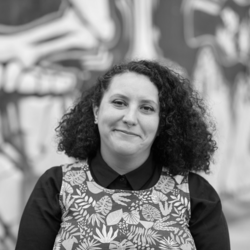
Natalie M. Godinez is an educator and artist raised in Tijuana, México. Godinez has collaborated with AMBOS since 2017, performing artist interventions, leading education projects, and coordinating humanitarian aid efforts. Currently, she is the Community Engagement & Youth Programs Manager at Self Help Graphics and Art, working on advocacy, youth programming, and cultural organizing. In her personal art practice, she explores memories, identity, and relationships to places and language through textiles, printmaking, and collaboration. She holds a Bachelor's degree in Applied Design from San Diego State University.

Allison Lee serves as PEN America’s Los Angeles Director. She was the Chief Development Officer for TIME’S UP, a non-profit organization dedicated to promoting gender equity and ending sexual violence in the workplace. She has previously served as Vice President of External Affairs at Bet Tzedek Legal Services, where she worked, among other things, to launch their Rapid Response Family Immigration Project and Transgender Advocacy Program. Prior to that, Allison served for eight years as the founding Executive Director of American Jewish World Service – Southern California. Allison received her B.A. in Political Science and American Studies from Tufts University.
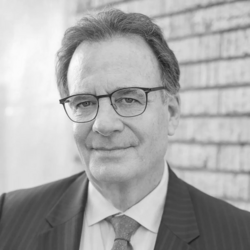
Jonathan Parfrey is the founder and Executive Director of Climate Resolve, and has served as a commissioner at the Los Angeles Department of Water and Power (2008-2013). Parfrey is a member of the LA28 Olympics and Paralympic Games Sustainability Working Group. He is a founder and board member of CicLAvia, the popular street event, as well as a founder of the statewide Alliance of Regional Collaboratives for Climate Adaptation. He served as director of the GREEN LA Coalition (2007-2011). Prior to that, he founded and directed the Orange County Catholic Worker (1987-1993). He was appointed to Governor Schwarzenegger’s Environmental Policy Team in 2003.
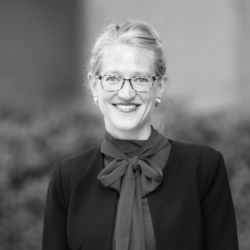
Danielle M. Thomsen is Associate Professor of Political Science at the University of California, Irvine, with a focus on American politics, Congress, elections, campaign finance, and gender and politics. Thomsen’s first book Opting Out of Congress: Partisan Polarization and the Decline of Moderate Candidates was published in 2017, and her second publication The Money Signal: How Fundraising Matters in American Politics is forthcoming with the University of Chicago Press in Spring 2025. Her research has been published in the American Political Science Review, Journal of Politics, Legislative Studies Quarterly, Perspectives on Politics, among others.
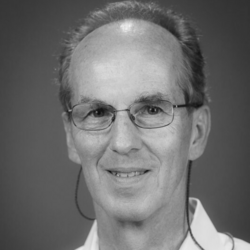
Kurt Weyland is Professor of Government and Mike Hogg Professor in Liberal Arts at the University of Texas at Austin. Based on research conducted in Argentina, Bolivia, Brazil, Chile, Costa Rica, Peru, and Venezuela, he has published many journal articles and book chapters, as well as seven books, most recently Assault on Democracy: Communism, Fascism, and Authoritarianism during the Interwar Years (Cambridge, 2021); and Democracy’s Resilience to Populism’s Threat (Cambridge, 2024).

Thomas Aujero Small is the CEO of Culver City Forward, Chair of LA METRO Sustainability Council and member of the Mobility Committee of the Urban Land Institute Los Angeles. He served as Mayor of Culver City from 2018-2019, during his four-year term as a Culver City Council Member (2016-2020). He is also on the Transportation Policy Committee of the Southern California Association of Governments (SCAG). On the Culver City Council, he served on several Subcommittees, including: the General Plan Update; Economic Development; Mobility, Traffic and Parking; Financial Planning and Budget; and the Ballona Creek Revitalization Task Force.
Populists and the Forgotten Value of Compromise
Thomas Mann House Los Angeles (1550 N San Remo Drive, Pacific Palisades, CA 90272)

Info
Die US-Wahlen haben eine polarisiert Gesellschaft hinterlassen. Unabhängig von persönlichen Meinungen zum Ergebnis haben die Wahlkämpfe die gesellschaftlichen Spaltungen erheblich vertieft. In den letzten Jahren sind öffentliche Debatten über die Covid-19-Pandemie, Einwanderung oder soziale Ungleichheit zunehmend polarisiert geworden. Politische Positionen sind unversöhnlich gegensätzlich und werden immer hitziger und unerbittlicher. Diskussionen werden durch die Darstellung unterschiedlicher Seiten als Vertreter von „richtigen“ oder „falschen“ Antworten angeheizt. Haben wir den Wert des Kompromisses aus den Augen verloren?
Sicherlich ist eine der größten Stärken der Demokratie die Fähigkeit, politische Kompromisse zu erreichen. In heterogenen Gesellschaften ist Kompromiss notwendig. Dennoch hat die Fähigkeit, Vereinbarungen zu treffen und Zugeständnisse bei den drängendsten gesellschaftlichen Fragen zu machen, in den letzten Jahren abgenommen. Jede Seite leugnet der anderen legitime Opposition und unterschiedliche Ansichten zu den strittigen Themen. Populisten spielen mit der Vorstellung, dass es nur einen „Willen des Volkes“ gibt und dass sie die einzigen sind, die diesen Willen vertreten können. Stattdessen werden Kompromisse als Zeichen der Schwäche gesehen. Dies stellt ein großes Achillesferse für heterogene und pluralistische Gesellschaften dar, sowohl in den Vereinigten Staaten als auch in Deutschland.
Natürlich ist der Kompromissfindungsprozess kein Allheilmittel für alle Arten von Problemen. Während er eine Technik zur friedlichen Konfliktlösung darstellt, die pragmatisch den Status quo vorantreibt, gibt es auch Grenzen, die berücksichtigt werden sollten, insbesondere wenn autoritäre Populisten die Demokratie unter Druck setzen. Wann erreichen wir die Grenzen des Kompromisses und wann sollten wir lieber standhaft an liberalen und demokratischen Prinzipien festhalten? Wann schlägt der Kompromiss sogar zurück und legitimiert eine widerlegbare politische Position?
Diese Podiumsdiskussion versammelt Politikwissenschaftler:innen und politische Aktivist:innen, um die Ambivalenz politischer Kompromisse in Zeiten zunehmender Polarisierung zu erörtern. Sie beleuchtet die aktuellen Herausforderungen, die Populisten den Demokratien auferlegen, und diskutiert, wie Populisten Kompromisse verhindern, während sie auch darüber debattiert, wann und wo liberale Demokratien eine Grenze ziehen und Kompromisse einschränken sollten.
Teilnehmer:innen

Pola Lehmann is a research fellow at the WZB Berlin Social Science Center and co-director of the Manifesto Project. She studied administrative sciences at the Universities of Potsdam and Copenhagen. Her research focuses on democracy and political representation, political parties and elections, and machine learning. In her dissertation, which won the Leibniz Dissertation Award in 2021, she investigated political representation and compromise in the German Bundestag.

Johannes Gerschewski is a research fellow at the WZB Berlin Social Science Center and coordinates the work of the Theory Network at the Cluster of Excellence “Contestations of the Liberal Script (SCRIPTS).” He has published in academic journals including American Political Science Review, Perspectives on Politics, and Comparative Political Studies. His book on The Two Logics of Autocratic Rule was published in April 2023 by Cambridge University Press.

Allison Lee serves as PEN America’s Los Angeles Director. She was the Chief Development Officer for TIME’S UP, a non-profit organization dedicated to promoting gender equity and ending sexual violence in the workplace. She has previously served as Vice President of External Affairs at Bet Tzedek Legal Services, where she worked, among other things, to launch their Rapid Response Family Immigration Project and Transgender Advocacy Program. Prior to that, Allison served for eight years as the founding Executive Director of American Jewish World Service – Southern California. Allison received her B.A. in Political Science and American Studies from Tufts University.

Kurt Weyland is Professor of Government and Mike Hogg Professor in Liberal Arts at the University of Texas at Austin. Based on research conducted in Argentina, Bolivia, Brazil, Chile, Costa Rica, Peru, and Venezuela, he has published many journal articles and book chapters, as well as seven books, most recently Assault on Democracy: Communism, Fascism, and Authoritarianism during the Interwar Years (Cambridge, 2021); and Democracy’s Resilience to Populism’s Threat (Cambridge, 2024).

Thomas Aujero Small is the CEO of Culver City Forward, Chair of LA METRO Sustainability Council and member of the Mobility Committee of the Urban Land Institute Los Angeles. He served as Mayor of Culver City from 2018-2019, during his four-year term as a Culver City Council Member (2016-2020). He is also on the Transportation Policy Committee of the Southern California Association of Governments (SCAG). On the Culver City Council, he served on several Subcommittees, including: the General Plan Update; Economic Development; Mobility, Traffic and Parking; Financial Planning and Budget; and the Ballona Creek Revitalization Task Force.
Realignment & Resilience
Thomas Mann House (1550 N San Remo Drive, CA 90272)
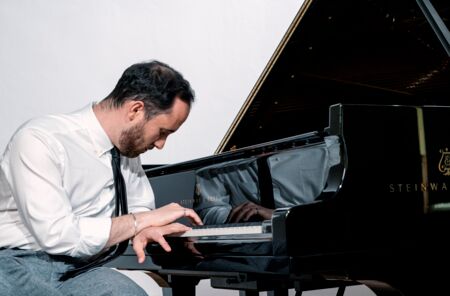
Teilnahme nur auf Einladung
Info
"In times of crisis, we must all decide again and again whom we love."
- Frank O'Hara, Meditations in an Emergency
Und was nun? In diesen Zeiten der Krise, an wen wenden wir uns, und worauf richten wir unseren Blick? Wen lieben wir, wer sind noch unsere Freund:innen?
In einem weitreichenden Gespräch, unterbrochen von musikalischen Intermezzi, wird Thomas Mann Hononrary Fellow Igor Levit, angeregt durch die Fragen und Zitate von Paul Holdengraber, erörtern, inwiefern die um uns herum zerfallende Welt in den Konzertsaal und auf die schwarz-weißen Tasten des Klaviers Einzug hält.
Schützt oder mildert ein Leben, das der Kunst gewidmet ist – das Leben eines weltberühmten Pianisten – die Krise, die um uns herum zu spüren ist? Bietet das Klavierspiel Trost, Zuflucht, eine Neuausrichtung des Chaos da draußen? In diesen unsicheren Zeiten bringt Levit seine Zweifel, Ängste, zerbrochenen Ideale und die Sehnsucht nach Freude ins Spiel im Thomas Mann House.
Teilnehmer
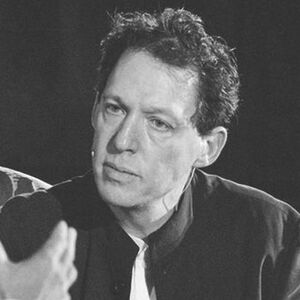
Paul Holdengraber ist ein Interviewer, Kurator für öffentliche Neugier und war der Gründende Geschäftsführer von Onassis Los Angeles (OLA). Zuvor war er Gründer und Direktor der kulturellen Reihe „LIVE from the NYPL“ der New York Public Library, in der er über 600 Veranstaltungen moderierte, darunter Interviews mit Patti Smith, Wes Anderson, Mike Tyson, Werner Herzog und vielen weiteren. Vor seiner Zeit in der Bibliothek war er Gründer und Direktor des Institute for Art & Cultures am LACMA. Er hat einen Ph.D. in Vergleichender Literaturwissenschaft von der Princeton University. 2003 ernannte ihn die französische Regierung zum Chevalier des Arts et des Lettres und beförderte ihn 2012 zum Rang eines Commandeur des Arts et des Lettres. 2010 verlieh ihm der Präsident von Österreich das Österreichische Ehrenkreuz für Wissenschaft und Kunst.
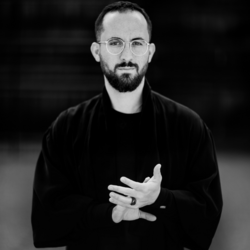
Igor Levit, in Nischni Nowgorod geboren, siedelte im Alter von acht Jahren mit seiner Familie nach Deutschland um. Sein Klavierstudium absolvierte er an der Hochschule für Musik, Theater und Medien Hannover. Im Frühjahr 2019 erfolgte der Ruf als Professor für Klavier an seine Alma Mater. Seit dem Frühjahr 2022 ist Igor Levit Co-Künstlerischer Leiter des Internationalen Musikfestivals Heidelberger Frühling. Die New York Times beschreibt Igor Levit als einen der „bedeutendsten Künstler seiner Generation“, die Süddeutsche Zeitung als „Glücksfall“ für das heutige Konzertgeschehen. Für die Hauskonzerte als Zeichen der Hoffnung und des Gemeinsinns sowie für sein Engagement gegen Antisemitismus wurde Igor Levit im Herbst 2020 der Verdienstorden der Bundesrepublik Deutschland verliehen. Igor Levit ist gemeinsam mit Geord Diez Honorary Fellow am Thomas Mann House.
How to Survive the 21st Century: An Explorative Discussion
Goethe-Institut Los Angeles (1901 W 7th St Suite A/B, Los Angeles, CA 90057)
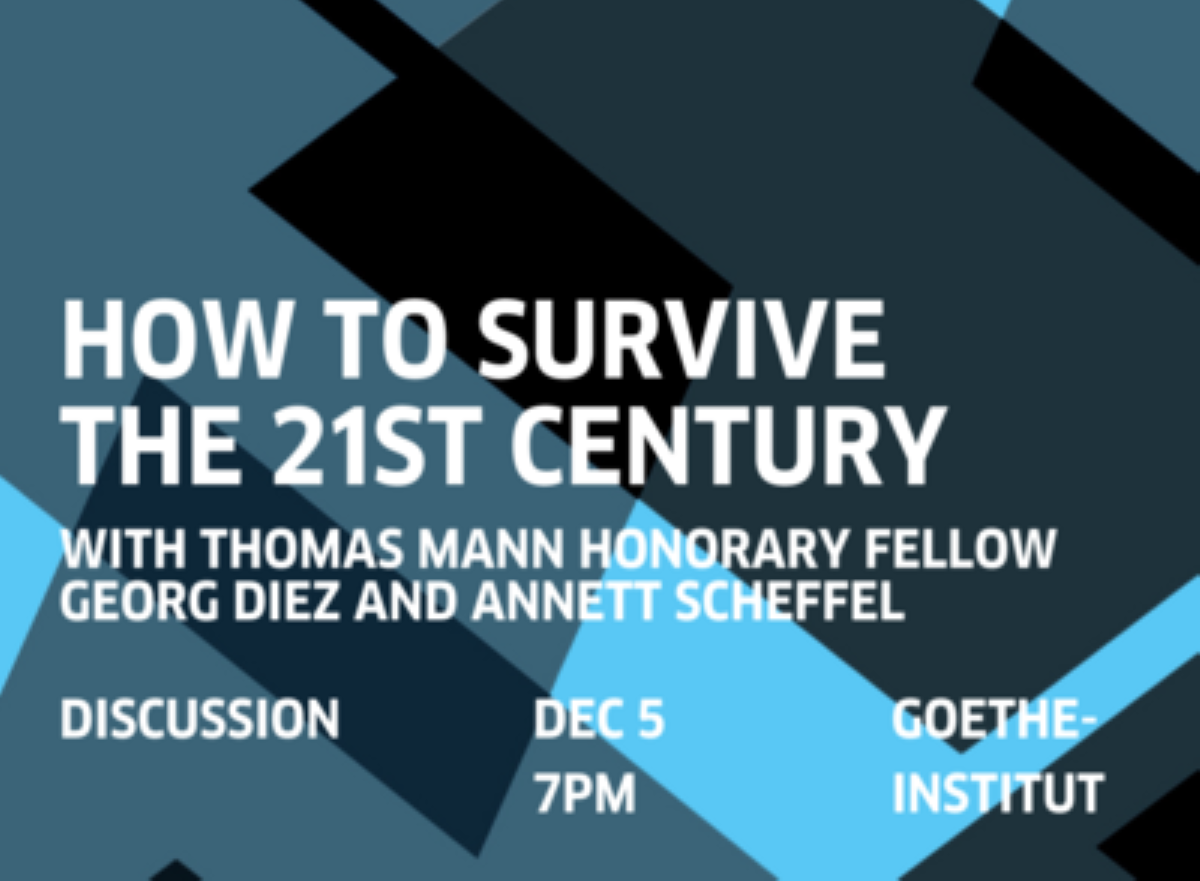
Info
Moderiert von Annett Scheffel, bringt diese explorative Diskussion eine vielfältige Gruppe von Akteurinnen und Akteuren zusammen, die führend in transformierenden Prozessen sind und ihre eigenen Erfahrungen einbringen. Gemeinsam mit Ihnen, dem Publikum, wollen wir ein neues Vokabular für die Demokratie im 21. Jahrhundert erkunden und gemeinsame Verständnisse für die Grundlagen unseres gemeinsamen Daseins auf dem Planeten Erde finden.
Kommen Sie zu einer offenen Diskussion, teilen Sie Ihre Gedanken und lassen Sie uns sehen, wohin uns das führt!
Diese Veranstaltung ist Teil des Projekts Double Exposure, einer Reihe von Vorträgen und Diskussionen, die sich mit der Frage beschäftigen, was die Idee der Solidarität in verschiedenen Kontexten bedeutet. Was ist wichtiger: Gemeinschaft oder Gesellschaft? Individuelle Freiheit oder Solidarität? Diese Fragen sind von großer Dringlichkeit in unserer heutigen Zeit. Polarisierung und Spaltung scheinen die erprobten Mittel politischer Diskussion zu sein. Die weltweite Migration intensiviert die Diskussion darüber, wer gegenüber wem welche Pflichten hat, wer wem Solidarität zeigen sollte und wem Solidarität verweigert werden kann.
Teilnehmer:innen
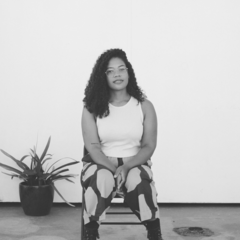
Ashley Blakeney ist eine in Los Angeles ansässige Kunstheilungs-Fazilitatorin und kulturelle Führungspersönlichkeit mit mehr als einem Jahrzehnt Erfahrung in der Arbeit mit Kunstorganisationen und in der Bildung. Seit 2021 ist Blakeney die Geschäftsführerin des Crenshaw Dairy Mart und setzt sich dafür ein, Communities of Color dabei zu unterstützen, neue Systeme für eine gerechtere Welt zu erdenken. An der Schnittstelle von Abolitionismus und Heilung arbeitend, liegt Blakeneys beruflicher und persönlicher Fokus darauf, sichere Räume für kreative Ausdrucksformen zu schaffen.
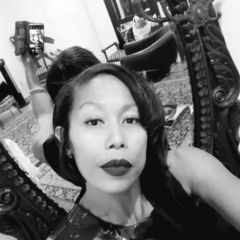
Pauletta Pierce ist die Gründerin des rein schwarzen und PoC-Bike-Kollektivs „Date with the Night“ und die Schöpferin von „Vibing with Cultural Leafs“ – einem 10-wöchigen Curriculum, das darauf abzielt, kritische Denker*innen unter den Jugendlichen von Los Angeles durch Bildungsworkshops und Kunst zu fördern. Ihre aktuellen kulturellen Aktivitäten umfassen auch die Tätigkeit als Direktorin für kreative Entwicklung bei der East Wind Foundation, einer Jugendorganisation im L.A. Chinatown.
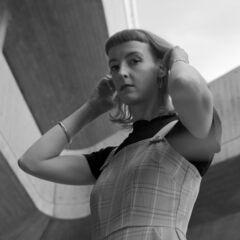
Annett Scheffel ist Kulturautorin, Redakteurin, Sprecherin und Moderatorin mit Sitz in Los Angeles und Berlin. Sie denkt, schreibt und spricht über Musik, Film, Feminismus und zeitgenössische Kultur für die Süddeutsche Zeitung, Spiegel Online, Zeit Online, Musikexpress, Dummy Magazin und Deutschlandfunk – vorzugsweise an der Schnittstelle zwischen Identität, Gesellschaft und Politik.

Georg Diez ist Autor und Journalist und derzeit Fellow am Max-Planck-Institut Göttingen sowie bei ProjectTogether in Berlin, wo er zum Thema demokratischer Innovation forscht. Zuvor arbeitete er als Chefredakteur von The New Institute, als Kolumnist für Spiegel Online sowie für die Feuilletons Der Zeit, der Frankfurter Allgemeinen Sonntagszeitung und der Süddeutschen Zeitung. Für 2024 bereitet er eine Ausstellung in den Hamburger Deichtorhallen mit dem Titel Survival in the 21st Century vor. Georg Diez lebt in Berlin und Stockholm. Gemeinsam mit Igor Levit ist Georg Diez Honorary Fellow am Thomas Mann House.
Are we still living in the nineties?!
Thomas Mann House (1550 N San Remo Drive, CA 90272)
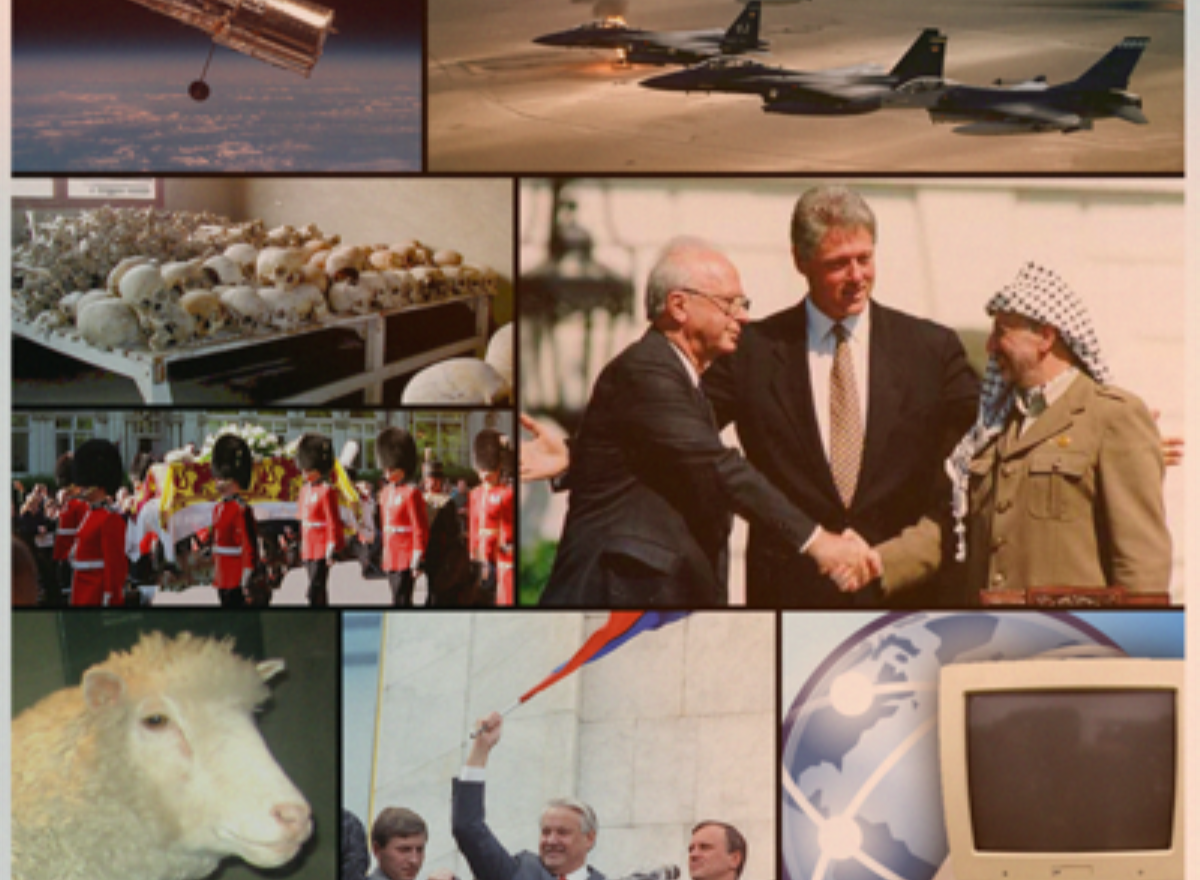
Teilnahme nur auf Einladung
Info
Die 1990er Jahre endeten, so sagen einige, im Jahr 2016 mit der ersten Wahl von Donald Trump – was bedeutet, dass wir seitdem in einem Interregnum leben. Um den aktuellen Bruch zu begreifen, müssen wir die Kräfte verstehen, die die letzte politische Ordnung geprägt haben, oder wie der Historiker Gary Gerstle sie nennt, die „neoliberale Ordnung“: die 1990er Jahre mit ihrer Kombination aus Freihandel, Deregulierung, einer technologischen Revolution und dem Versprechen, „alle Boote anzuheben“.
Die Wahlergebnisse von 2024 können als noch kräftigere Gegenwehr gegen diese Ordnung gelesen werden. Aber was hat diese Gegenwehr ausgelöst? Was hat diese illiberale Energie entfesselt und die Ungleichheit geschaffen, die im Zentrum vieler politischer Entwicklungen heute steht? Wie genau hängt das mit den 1990er Jahren zusammen, diesem Jahrzehnt, das immer noch als eine „Hochzeitsreise mit der Geschichte“ wahrgenommen wird, bis etwas schrecklich schiefging? Die Geschichte der 1990er Jahre, wie sich herausstellt, basiert auf vielen falschen Annahmen, absichtlichem Vergessen und einer strategischen Naivität, die nun direkt vor unseren Augen zusammenbricht.
In einer Podiumsdiskussion, die von Honorary Fellow Georg Diez moderiert wird, werden die Gäste über die Rolle und die gescheiterten Versprechungen der 1990er Jahre bei der Gestaltung unserer politischen Gegenwart diskutieren und darüber, wie die zentrale Idee der 90er Jahre – dass Märkte an erster Stelle kommen und Demokratie an zweiter – schließlich zu einem demokratischen Rückgang und dem Verlust des Gefühls von Handlungsfähigkeit unter einer Bevölkerung führen würde, die bereit ist, diese zurückzuerobern. Oder etwa doch nicht?
Teilnehmer:innen

Georg Diez ist Autor und Journalist und derzeit Fellow am Max-Planck-Institut Göttingen sowie bei ProjectTogether in Berlin, wo er zum Thema demokratischer Innovation forscht. Zuvor arbeitete er als Chefredakteur von The New Institute, als Kolumnist für Spiegel Online sowie für die Feuilletons Die Zeit, der Frankfurter Allgemeinen Sonntagszeitung und der Süddeutschen Zeitung. Für 2024 bereitet er eine Ausstellung in den Hamburger Deichtorhallen mit dem Titel Survival in the 21st Century vor. Georg Diez lebt in Berlin und Stockholm. Gemeinsam mit Igor Levit ist Georg Diez Honorary Fellow am Thomas Mann House.

Lily Geismer ist Professorin für Geschichte am Claremont McKenna College. Geismers Forschung und Lehre konzentrieren sich auf die politische und urbane Geschichte des 20. Jahrhunderts in den Vereinigten Staaten, insbesondere auf den Liberalismus und die Demokratische Partei. Sie ist Autorin von Left Behind: The Democrats’ Failed Attempt to Solve Inequality (PublicAffairs, 2022) und Don’t Blame Us: Suburban Liberals and the Transformation of the Democratic Party (Princeton University Press, 2015). Sie ist zudem Mitherausgeberin von Shaped by the State: Toward a New Political History of the Twentieth Century (University of Chicago Press, 2019) und ihre Arbeiten sind unter anderem im Journal of American History und in der New York Times erschienen.
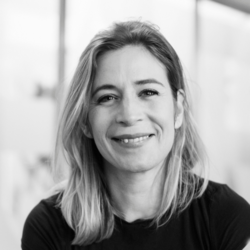
Karin Pettersson ist die Kulturredakteurin der Aftonbladet, Skandinaviens größter Tageszeitung, und eine der bekanntesten Journalistinnen Schwedens. Sie hat einen langen Hintergrund in Journalismus und Politik, da sie das führende Nachrichtenmagazin Fokus gegründet hat und außerdem im Finanzministerium als politische Beraterin gearbeitet hat. Sie ist ausgebildete Ökonomin mit einem Master of Science von der Stockholm School of Economics und eine Nieman Fellow von 2017 der Harvard University.
Student Council on "Democracy and Vulnerability"
Online

Info
Wie sollte eine Demokratie mit ihren eigenen Schwachstellen umgehen? Wie müssen sich Demokratien entwickeln, um erfolgreich mit den weltweit zunehmenden ökologischen Krisen, geopolitischen Spannungen, wirtschaftlichen Ungleichheiten und Kulturkriegen umzugehen? Wie viel Verwundbarkeit kann eine Demokratie ertragen?
Der Student Council besteht aus einem Team hochengagierter, talentierter und vielfältiger Bachelor- und Masterstudierender, die prominente Gastredner:innen einladen, um Themen zu Gesellschaft, Politik, Kultur und Kunst zu diskutieren. Im Gespräch mit Akademiker:innen, Journalist:innen, Politiker:innen und Künstler:innen werden die Studierenden die verschiedenen Bedrohungen für demokratische Institutionen und Prinzipien weltweit untersuchen sowie Strategien, um diese Bedrohungen möglicherweise zu überwinden.
Dezember Speaker
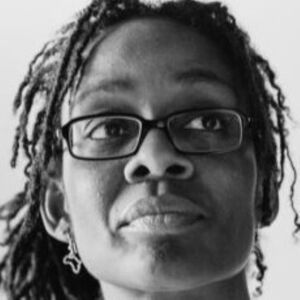
Sharon Dodua Otoo ist Schriftstellerin und politische Aktivistin. Mit dem Text Herr Gröttrup setzt sich hin gewann Otoo 2016 den Ingeborg-Bachmann-Preis. Ihr erster Roman Adas Raum erschien 2021 beim S. Fischer Verlag und wurde in mehreren Sprachen übersetzt. In Zusammenarbeit mit den Ruhrfestspielen kuratiert sie das Schwarze Internationale Literaturfestival „Resonanzen“. Otoo ist derzeit Honorary Fellow an der Villa Aurora in Los Angeles.
Vorherige Episoden
Sie können frühere Episoden auf YouTube ansehen, die Aufzeichnungen auf dublab radio anhören oder die Zusammenfassung unserer Studierenden auf dem Blog des Thomas Mann House lesen
Der Student Council

Sara Abrahamsson studiert im vierten Jahr an der UCLA Kunstgeschichte und Französisch. Als Höhepunkt ihres künstlerischen und akademischen Interesses an politischer Grafik schreibt Sara derzeit ihre Abschlussarbeit über die internationalistische Plakatkunst des nachrevolutionären Kuba. Nach ihrem Abschluss plant sie, weiterhin in Museen zu arbeiten, bevor sie postgraduale Studien in Kunstgeschichte oder Kunstkonservierung aufnimmt.
Amy Cabrales ist eine First-Generation-Studentin im vierten Jahr an der UCLA, die Soziologie und Russisch studiert. Sie ist mexikanisch-amerikanischer Herkunft und wurde in Lynwood, Kalifornien, geboren. Ihre beruflichen Interessen umfassen interkulturelle Bildung durch Museumsarbeit oder Sprachunterricht sowie die Ansiedlung von Einwanderern. Ihre akademischen Interessen liegen in der Integration von Einwanderern und der Selbstidentität über Generationen hinweg. Sie plant, im akademischen Jahr 2024-25 nach Almaty, Kasachstan, zurückzukehren, um diese Interessen zu vertiefen und ihre Russischkenntnisse zu erweitern.
Elsa Coony studiert im vierten Jahr an der University of California, Los Angeles Global Studies und Deutsch. Sie hat bereits im United States Holocaust Memorial Museum als Führerin und Übersetzerin gearbeitet und freut sich darauf, dem diesjährigen Rat beizutreten. In der Zukunft hofft sie, eine Karriere in der internationalen Entwicklung zu verfolgen.
Biruke Dix studiert im zweiten Jahr an der UCLA angewandte Mathematik. Er trat 2024 dem Student Council bei und ist tief in die sich ständig verändernden Eigenschaften der Kunst sowie gesellschaftlicher Gewohnheiten investiert. Er hofft, Gespräche zu schaffen, die die Verbreitung kultureller Veränderungen und sozialer Gerechtigkeit fördern.
Matthew Jones ist ein Doktorand im dritten Jahr im Programm für Kulturwissenschaften und Museumsstudien der Claremont Graduate University. Seine Forschung untersucht derzeit, wie Orte, die mit autoritären Regimen verbunden sind, als Pilgerziele fungieren und welche Strategien Staaten und Institutionen anwenden, um extremistische Bindungen an diesen Orten zu verringern. Er ist begeistert, seine Ausbildung durch diese Zusammenarbeit mit dem Wende Museum fortzusetzen.
Emma Larson ist eine Masterstudentin am Harriman Institute for Russian, Eurasian, and Eastern European Studies der Columbia University. Dort konzentriert sie sich auf die Geschlechter-, Sozial- und Politikgeschichte Zentralasiens. Bevor sie an der Columbia begann, unterrichtete Emma Englisch in Kasachstan im Rahmen des Fulbright-Programms. 2021 schloss sie ihr Studium am Williams College mit Abschlüssen in Geschichte und Russisch ab.
Zora Nelson ist derzeit eine Studentin im Grundstudium an der New York University, wo sie Harfenperformance sowie Medien, Kultur und Kommunikation studiert. Als Künstlerin, die in Philadelphia, Pennsylvania, geboren und aufgewachsen ist, entdeckte sie das Wende Museum im Sommer 2022. Mit einer Leidenschaft für das Schreiben sieht Zora ihre Zukunft im Storytelling, um soziale Gerechtigkeit zu fördern.
Lexi Tooley studiert im zweiten Jahr an der University of Pennsylvania Politikwissenschaft und Kunstgeschichte mit einem Nebenfach in Chinesisch und Kultur. Sie stammt ursprünglich aus Los Angeles, Kalifornien, und besuchte die Archer School for Girls. Lexi arbeitet seit 2 Jahren mit dem Wende Museum zusammen.






















